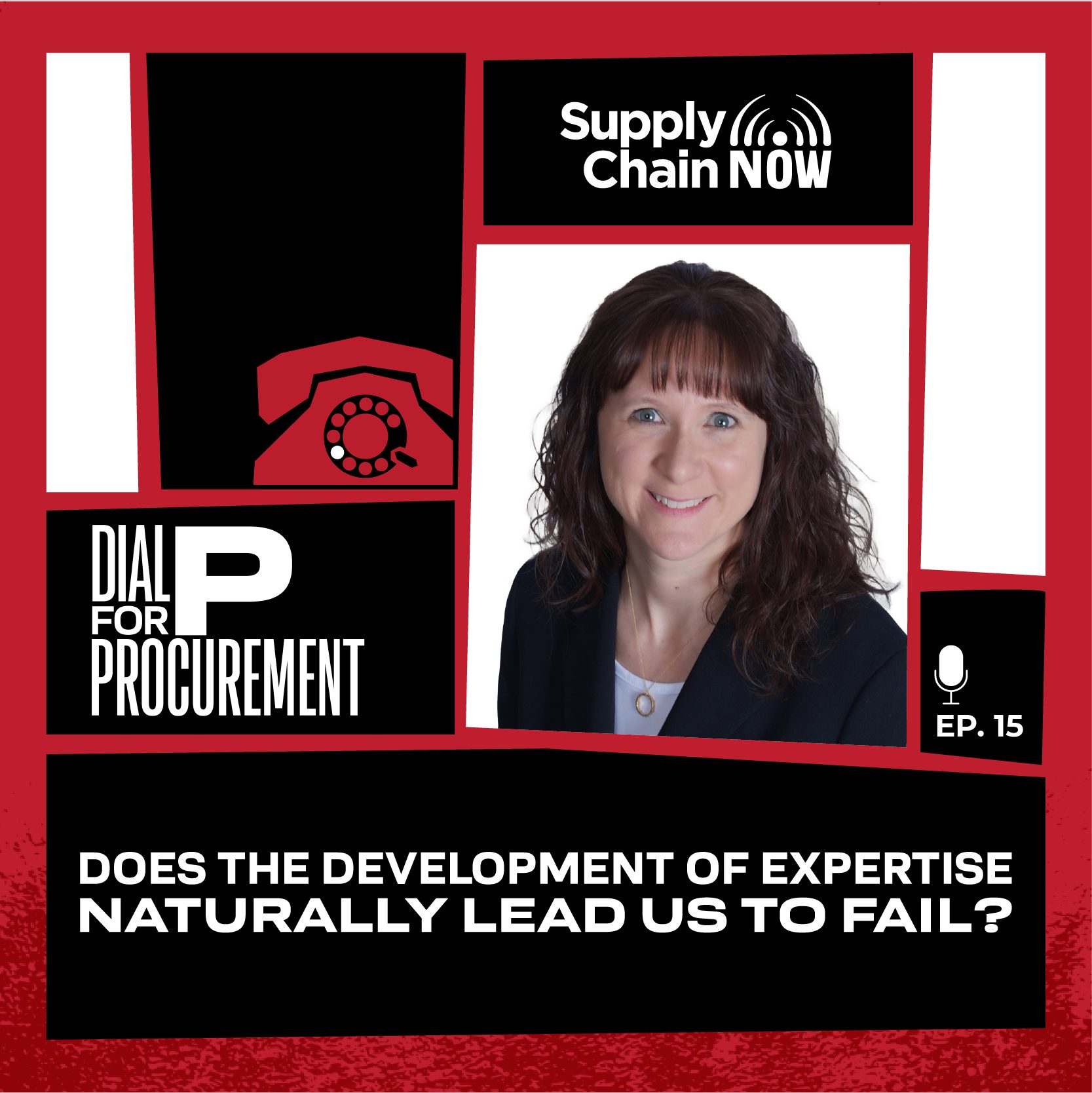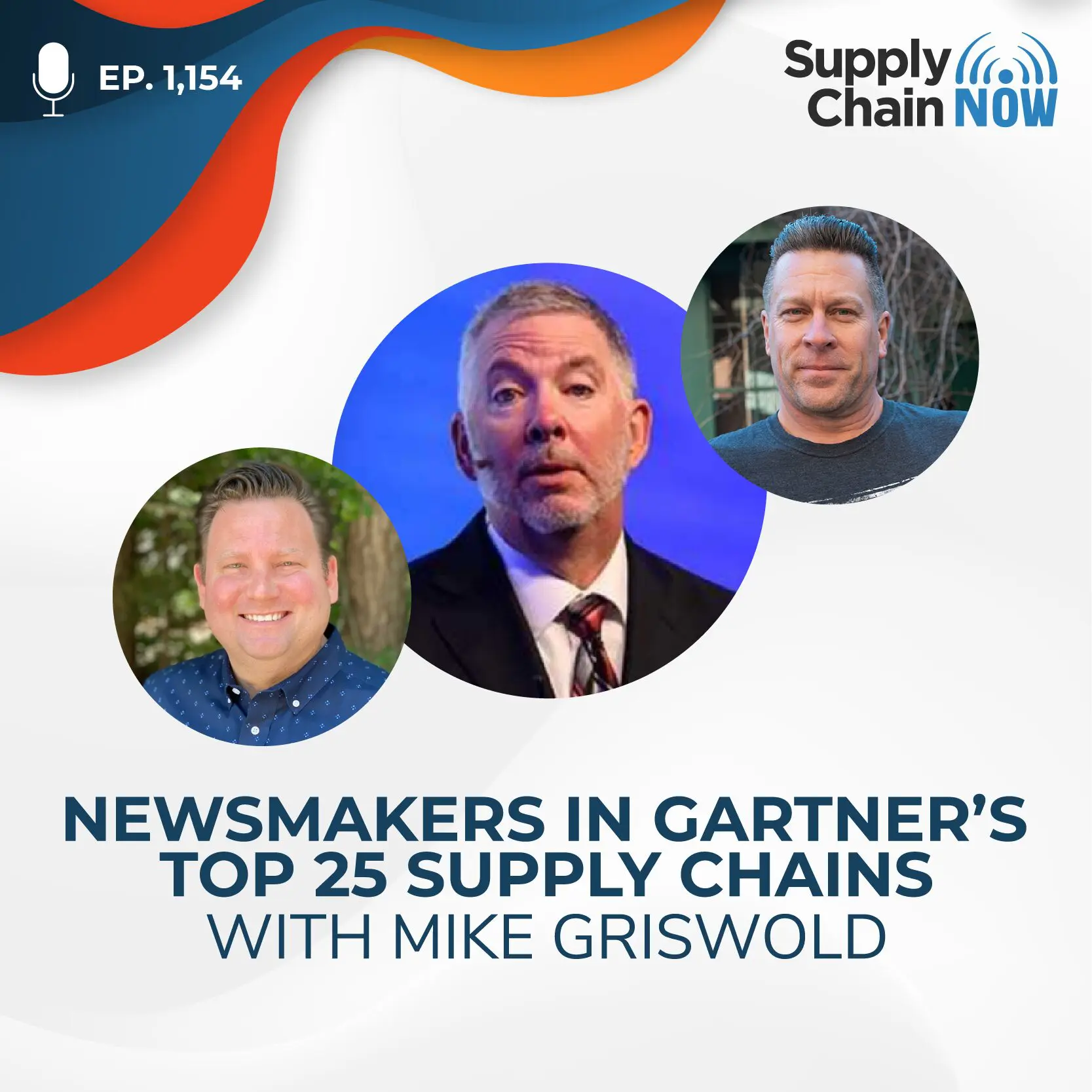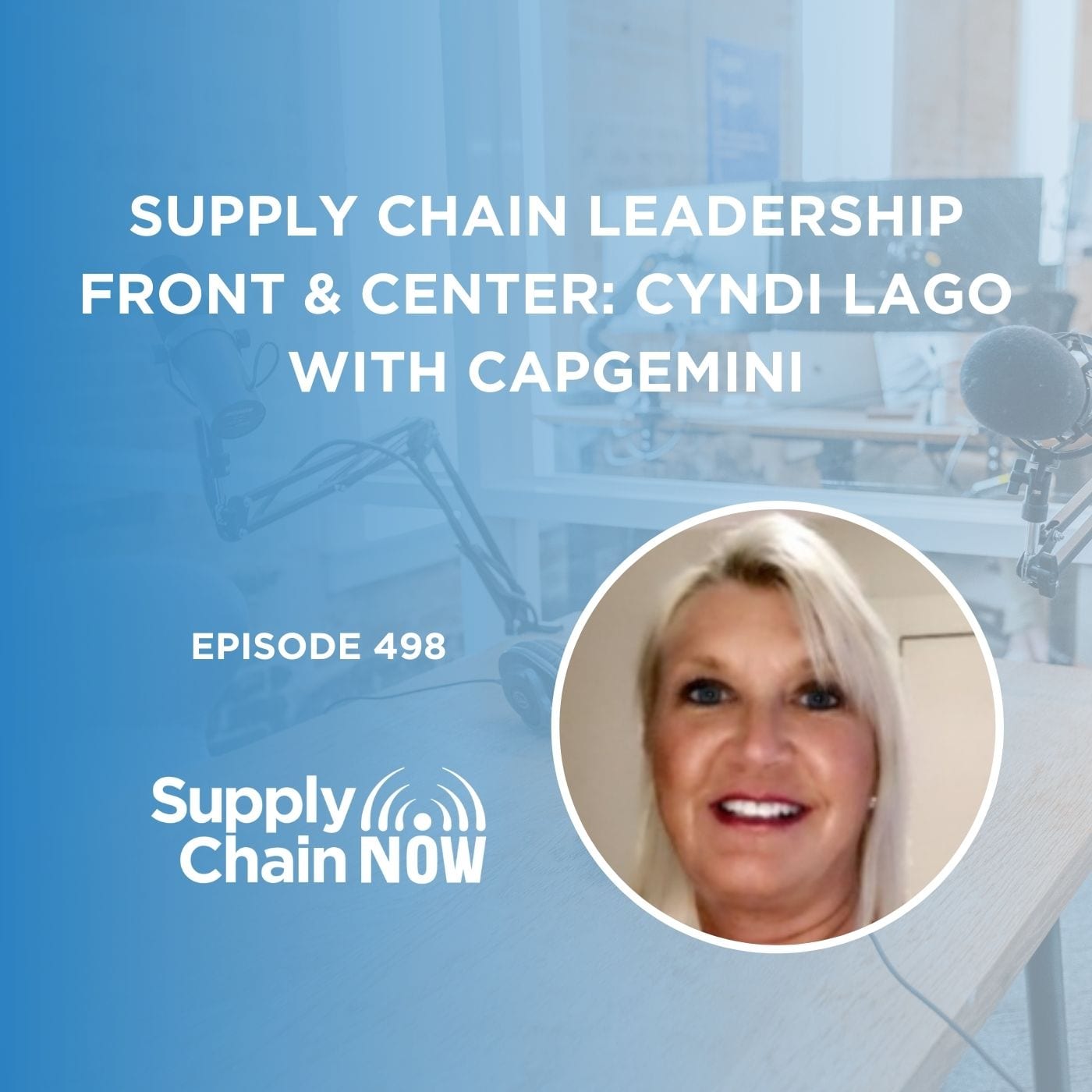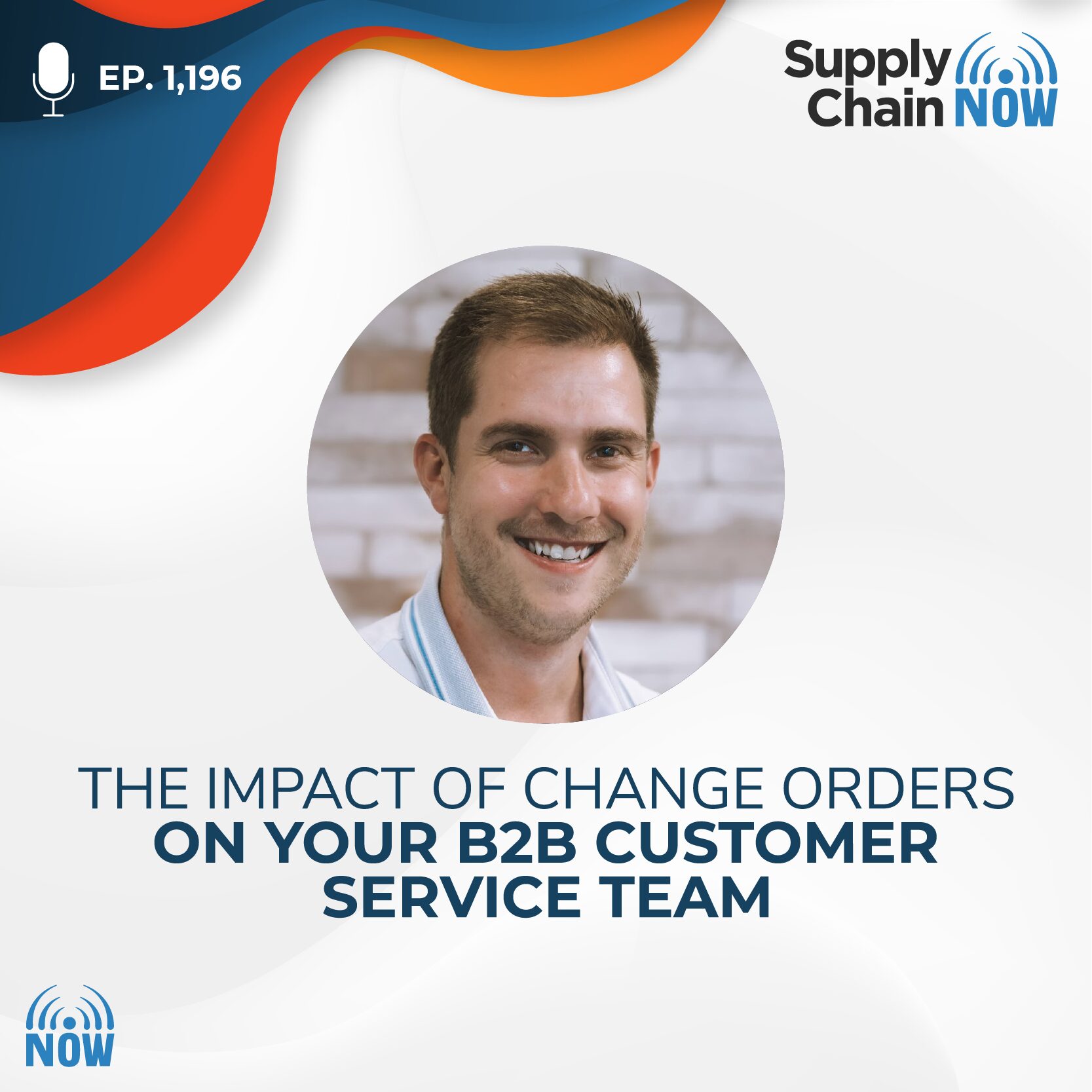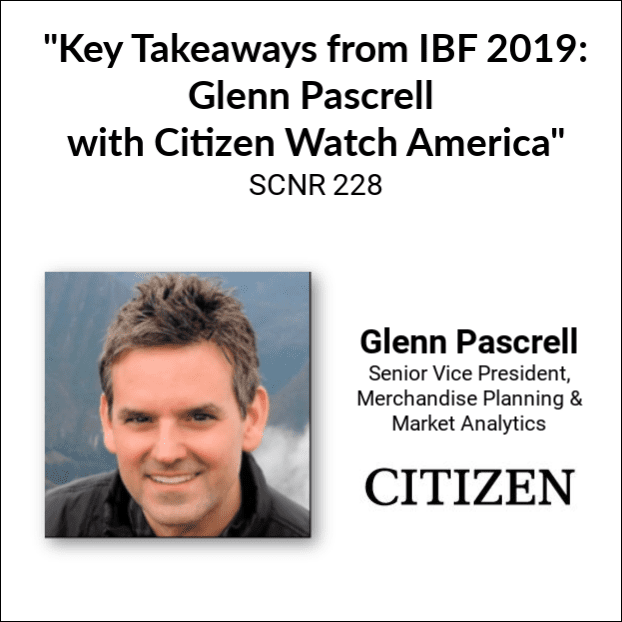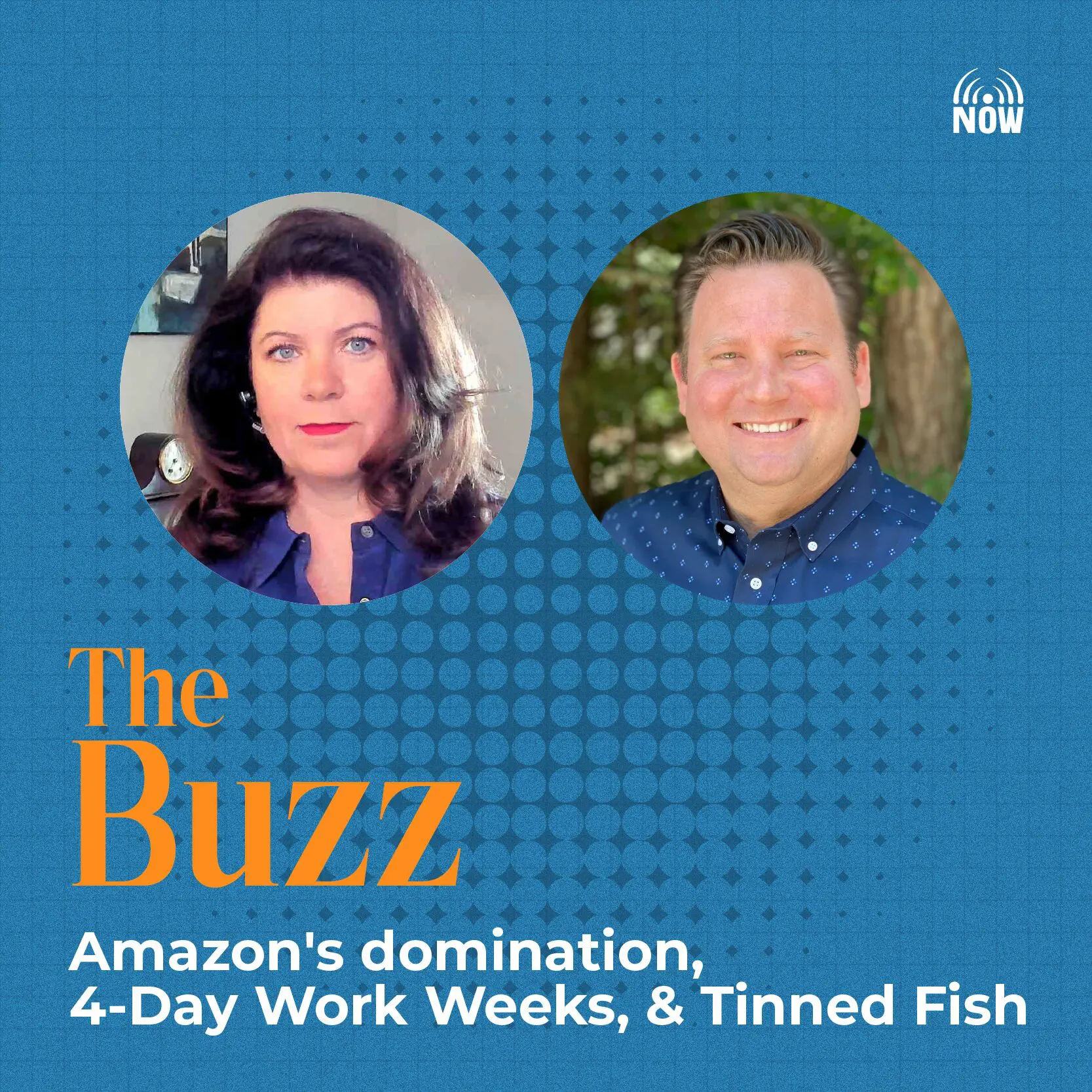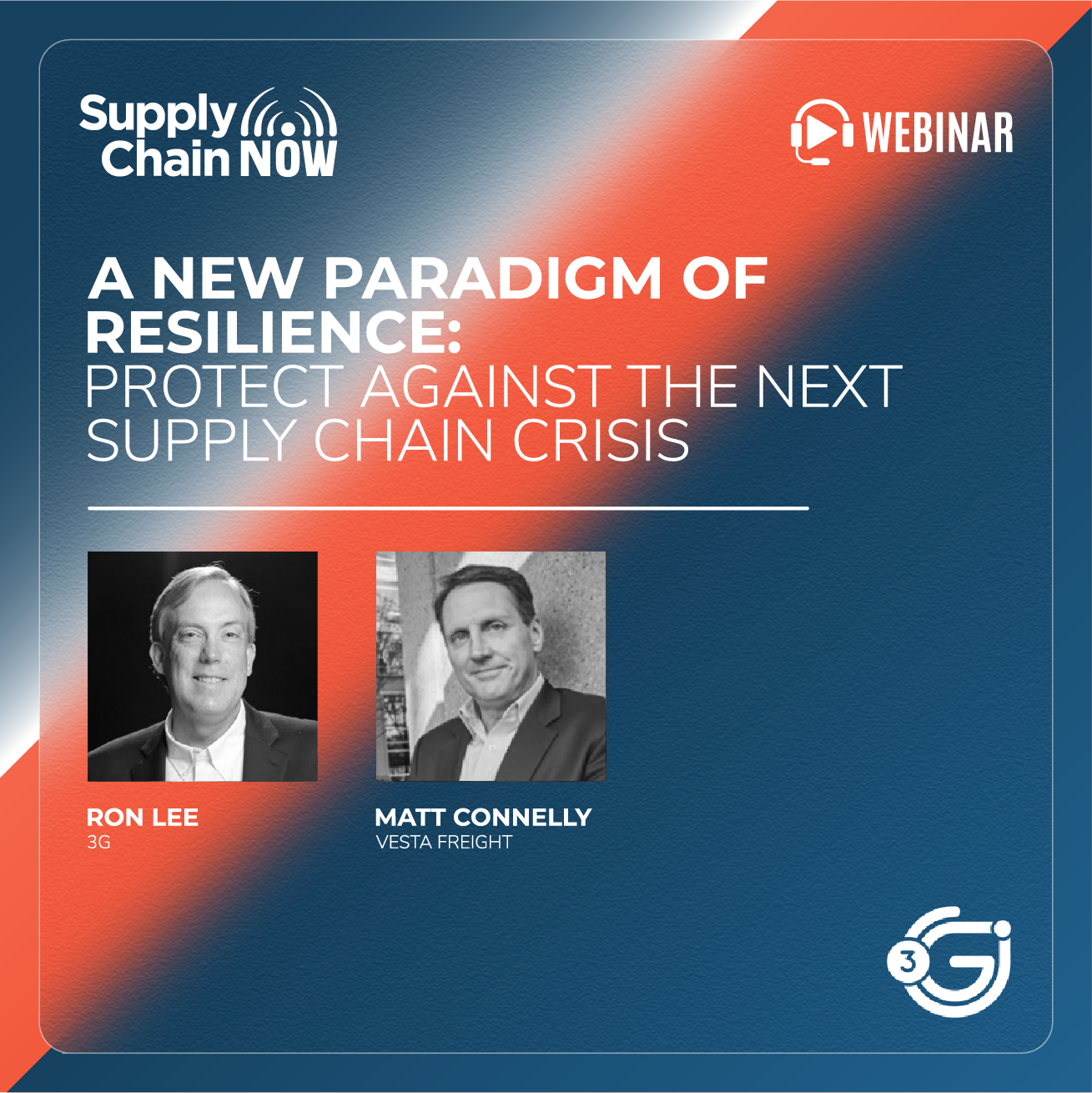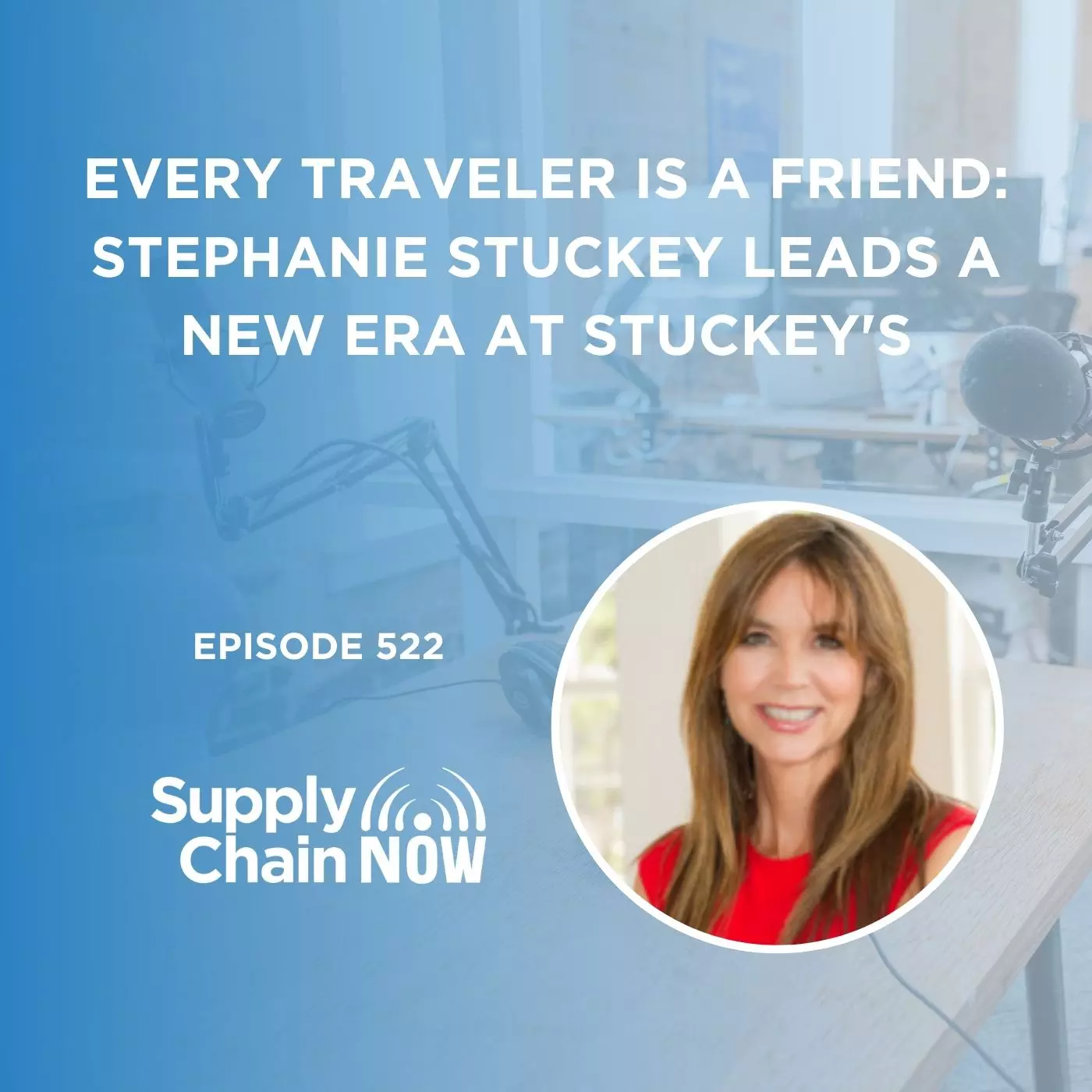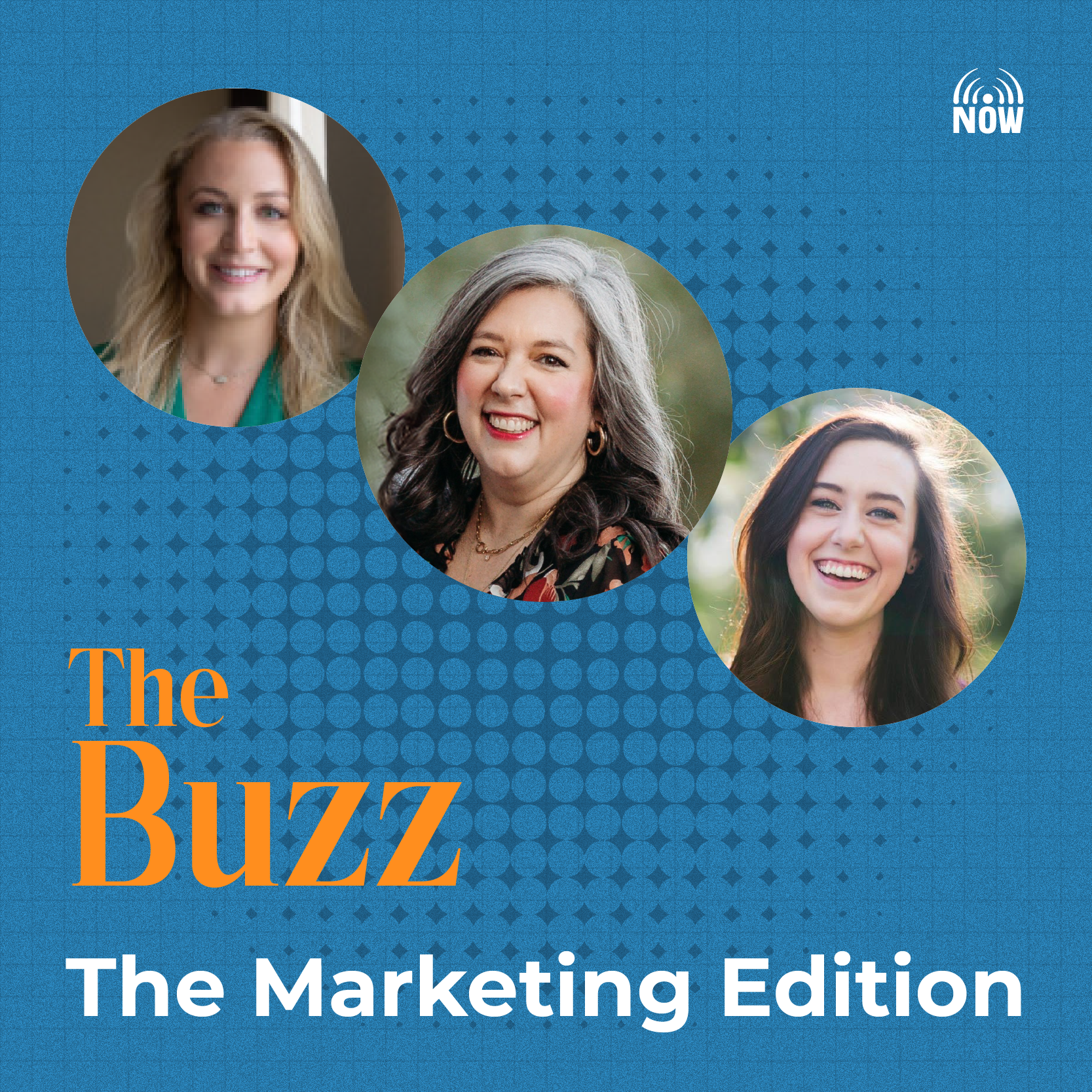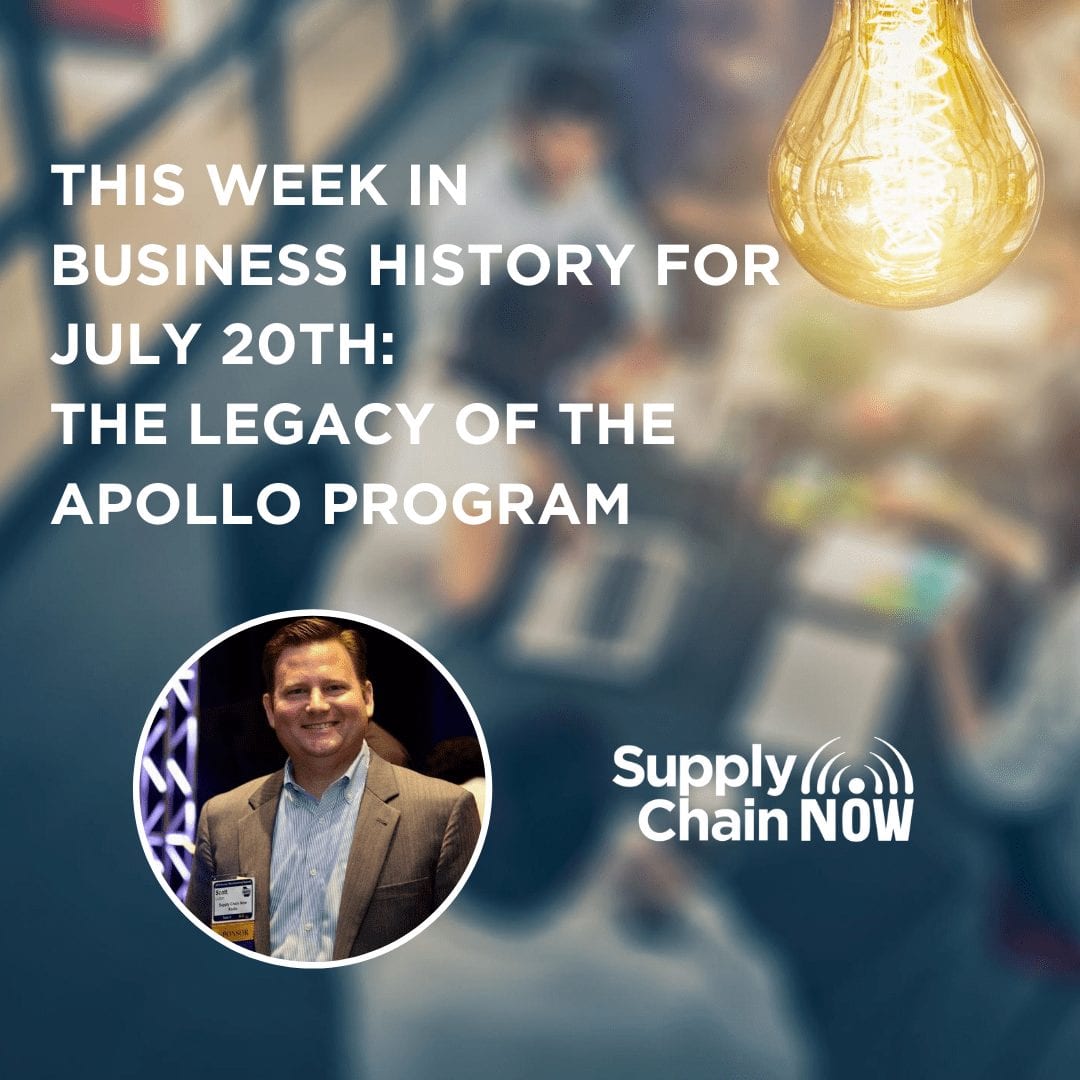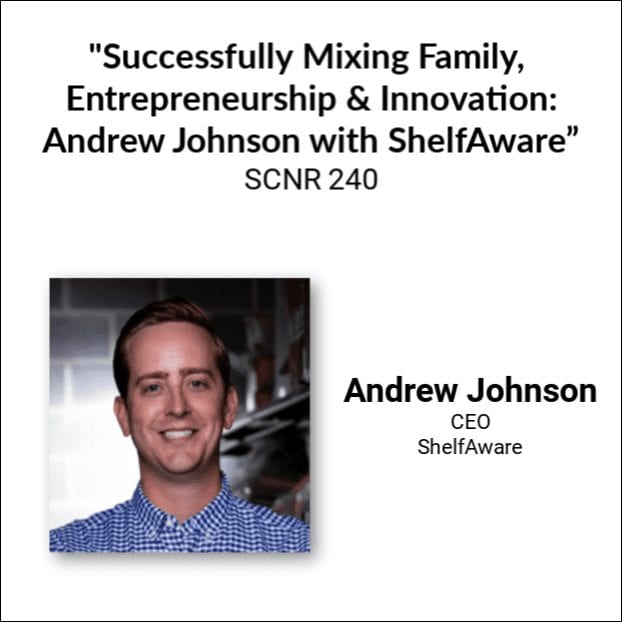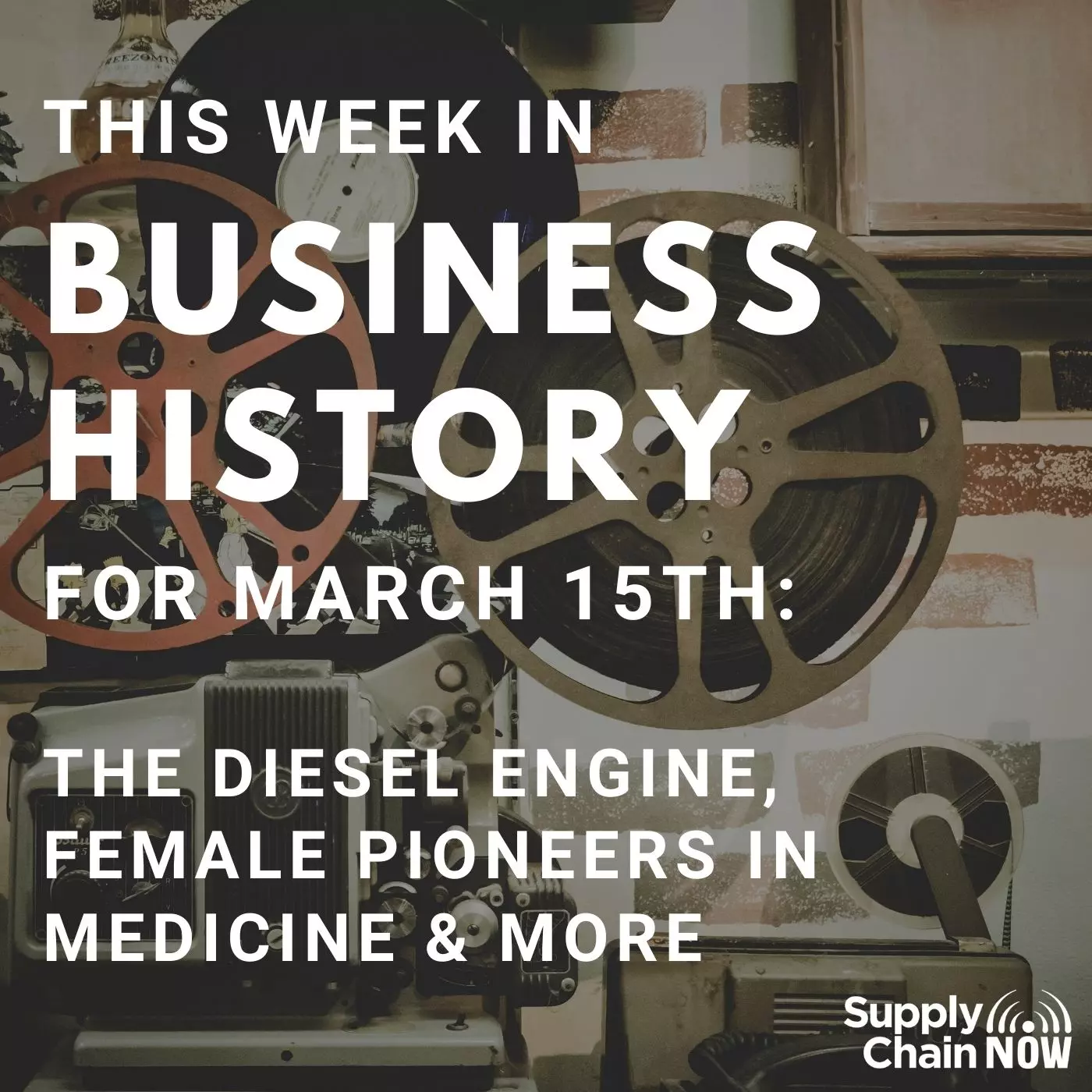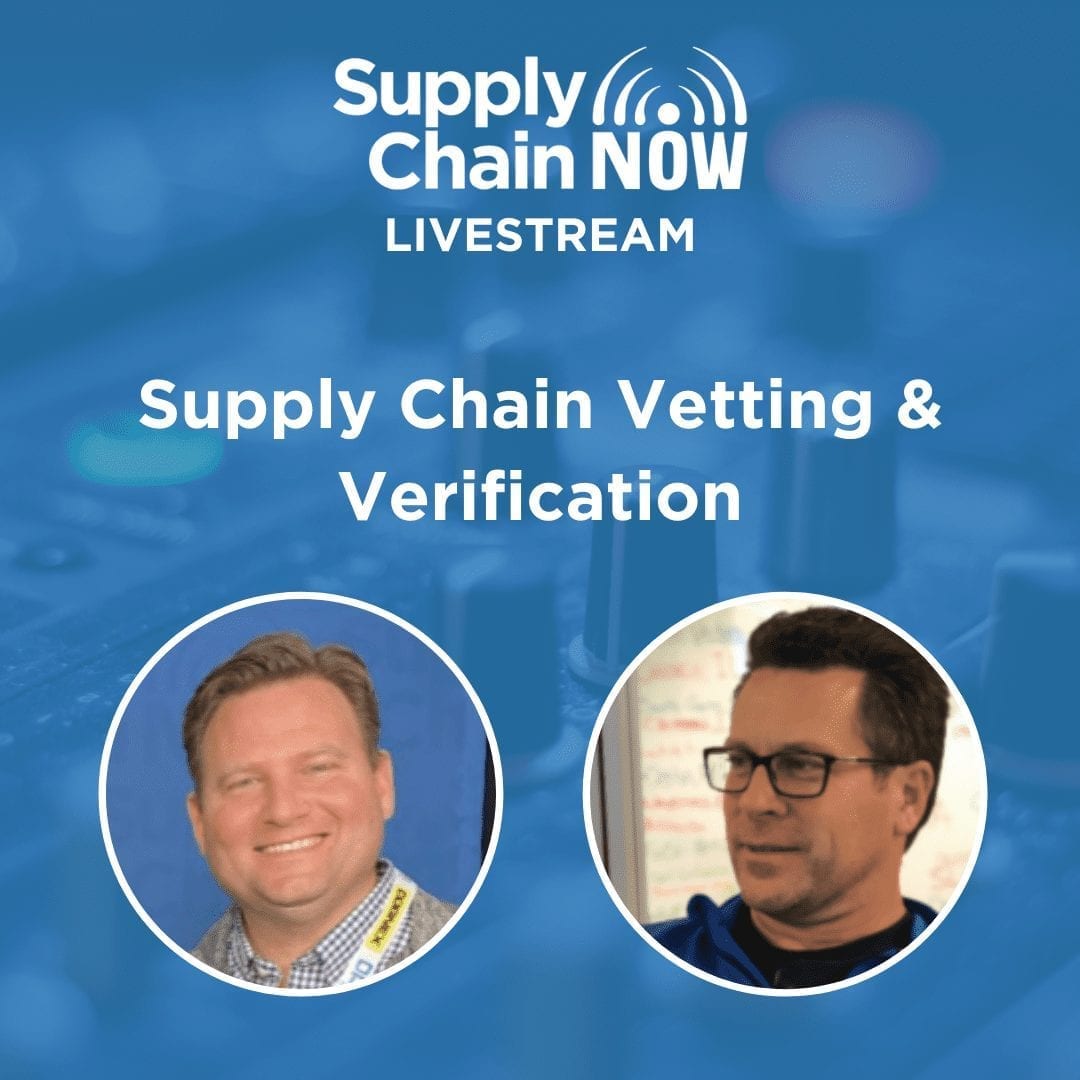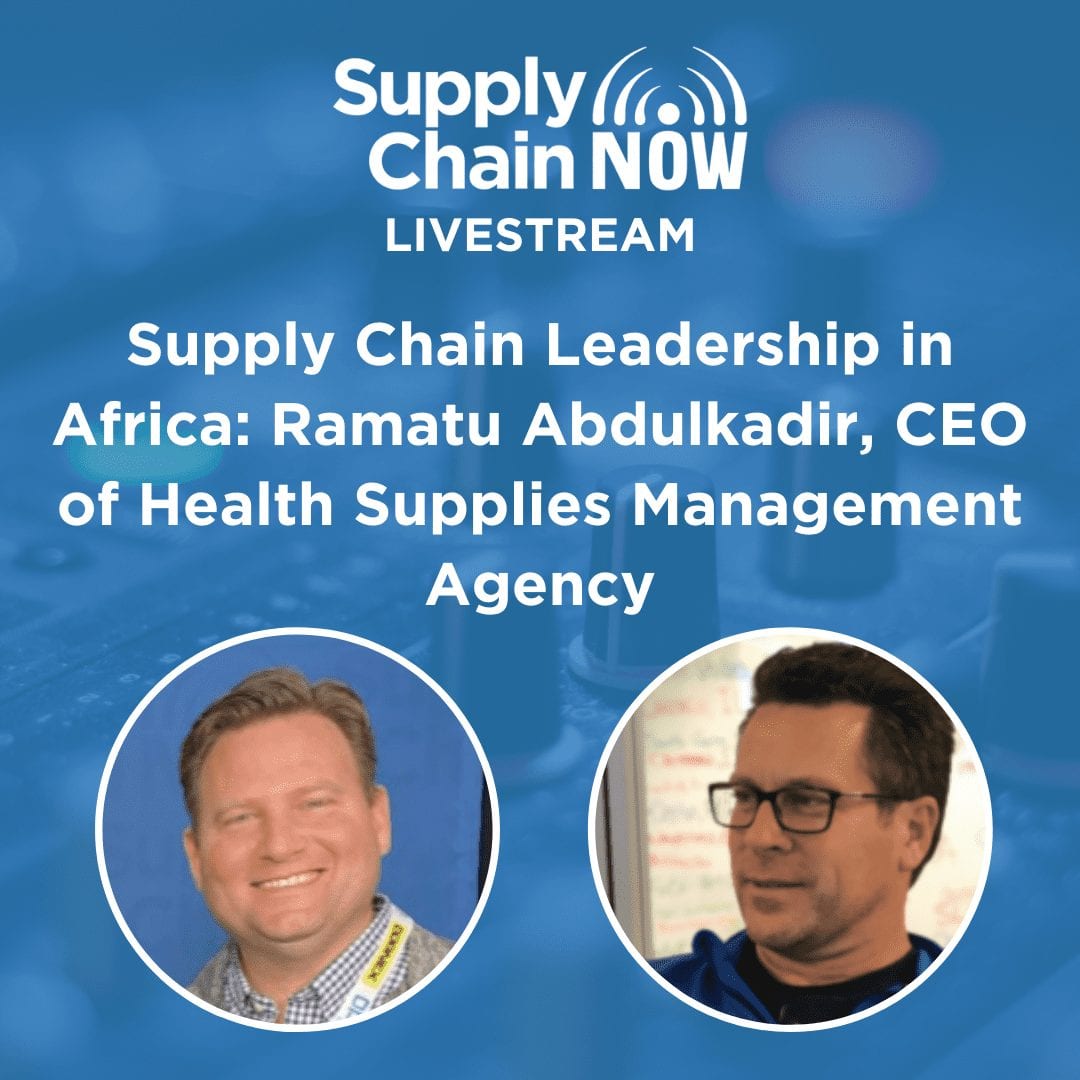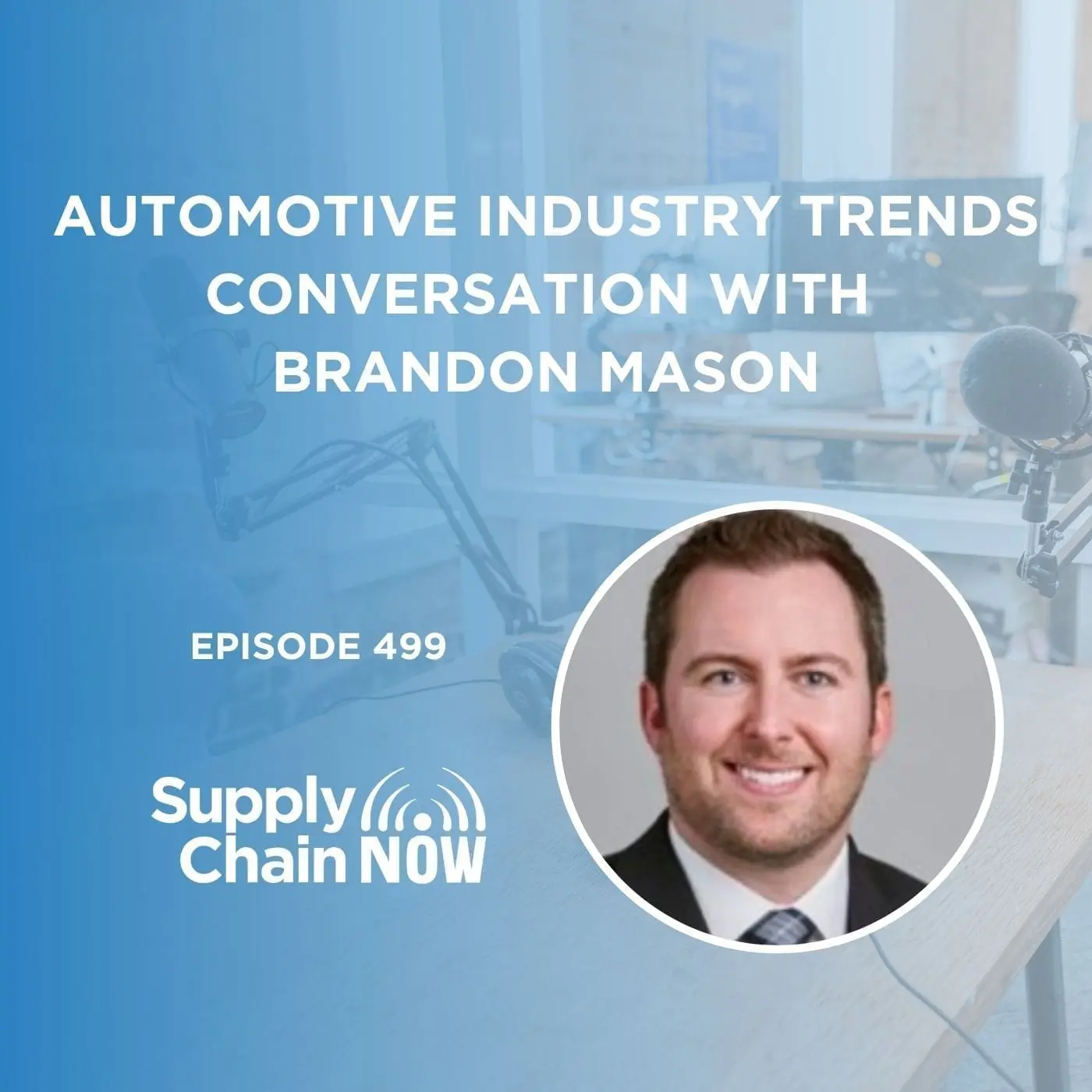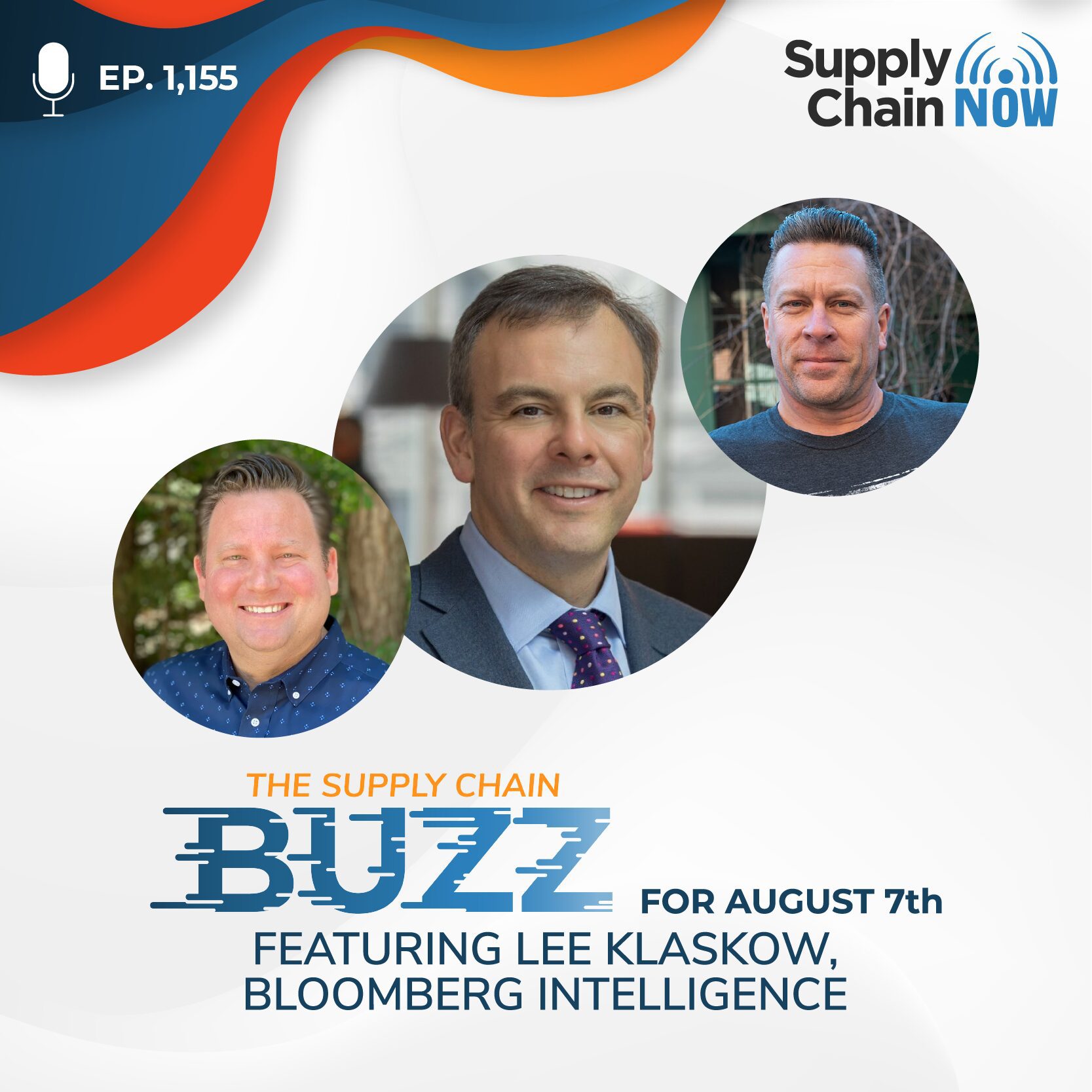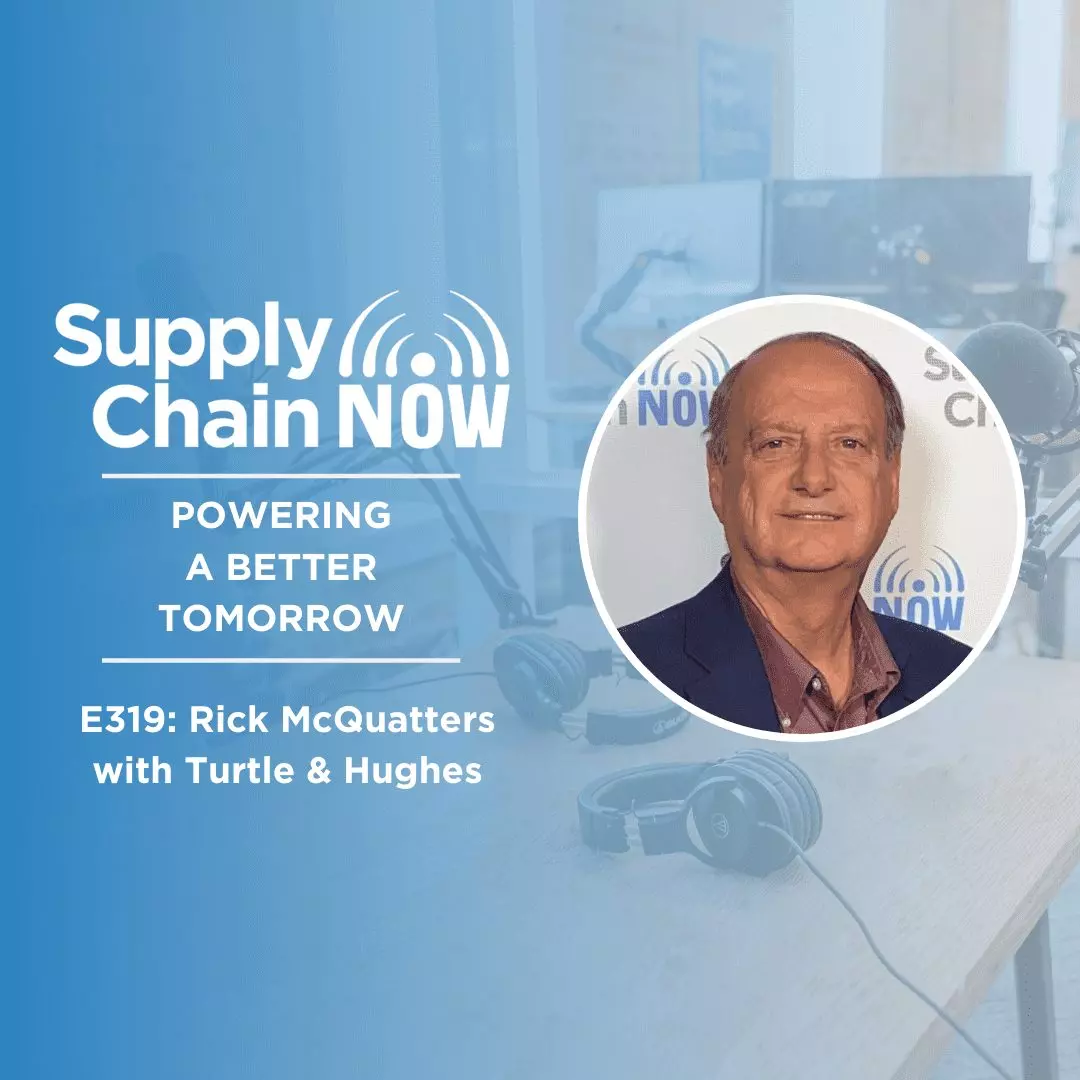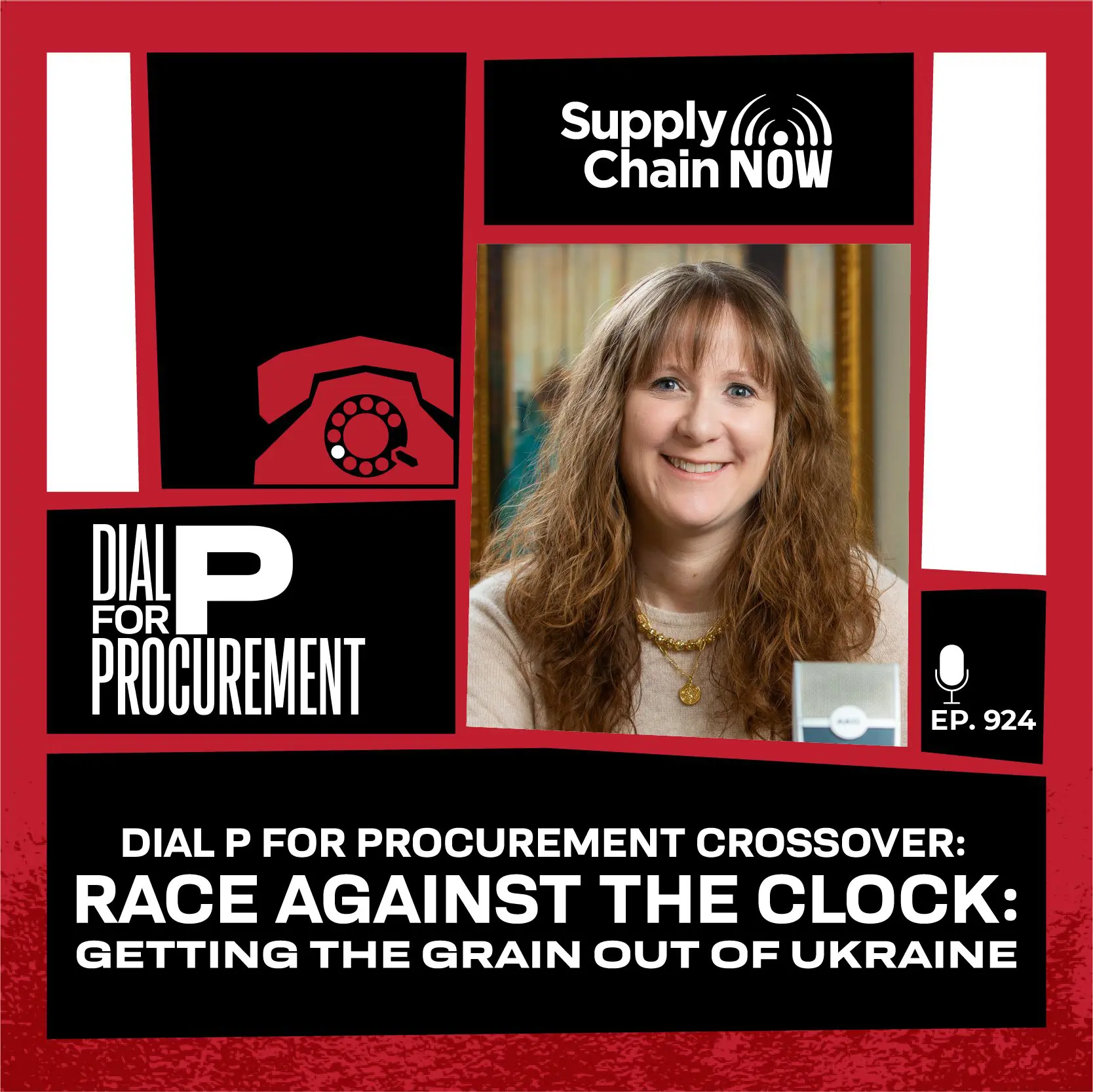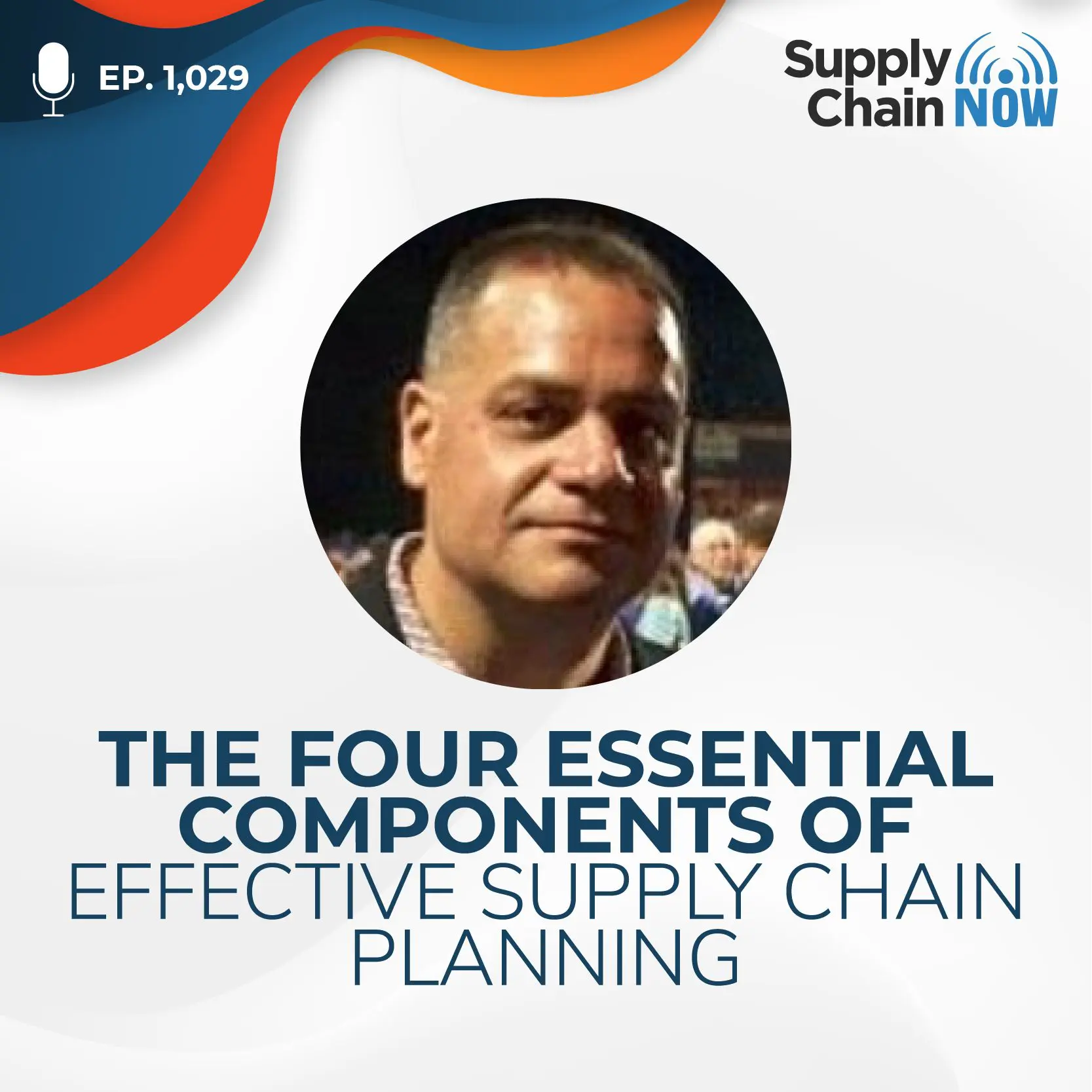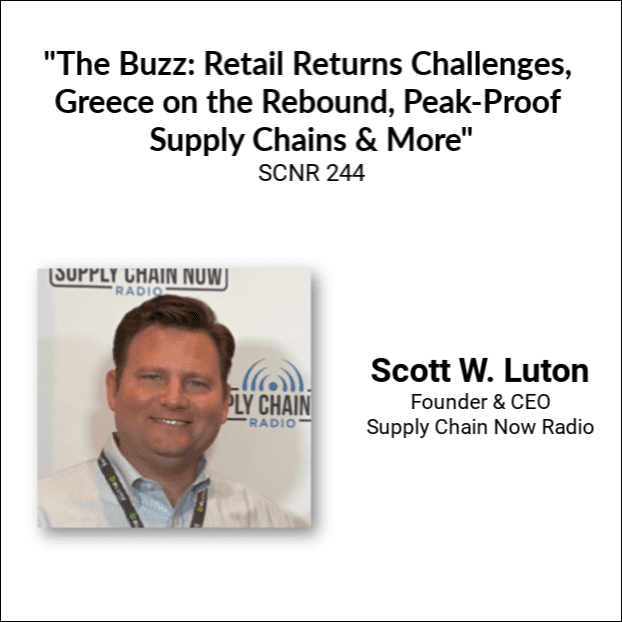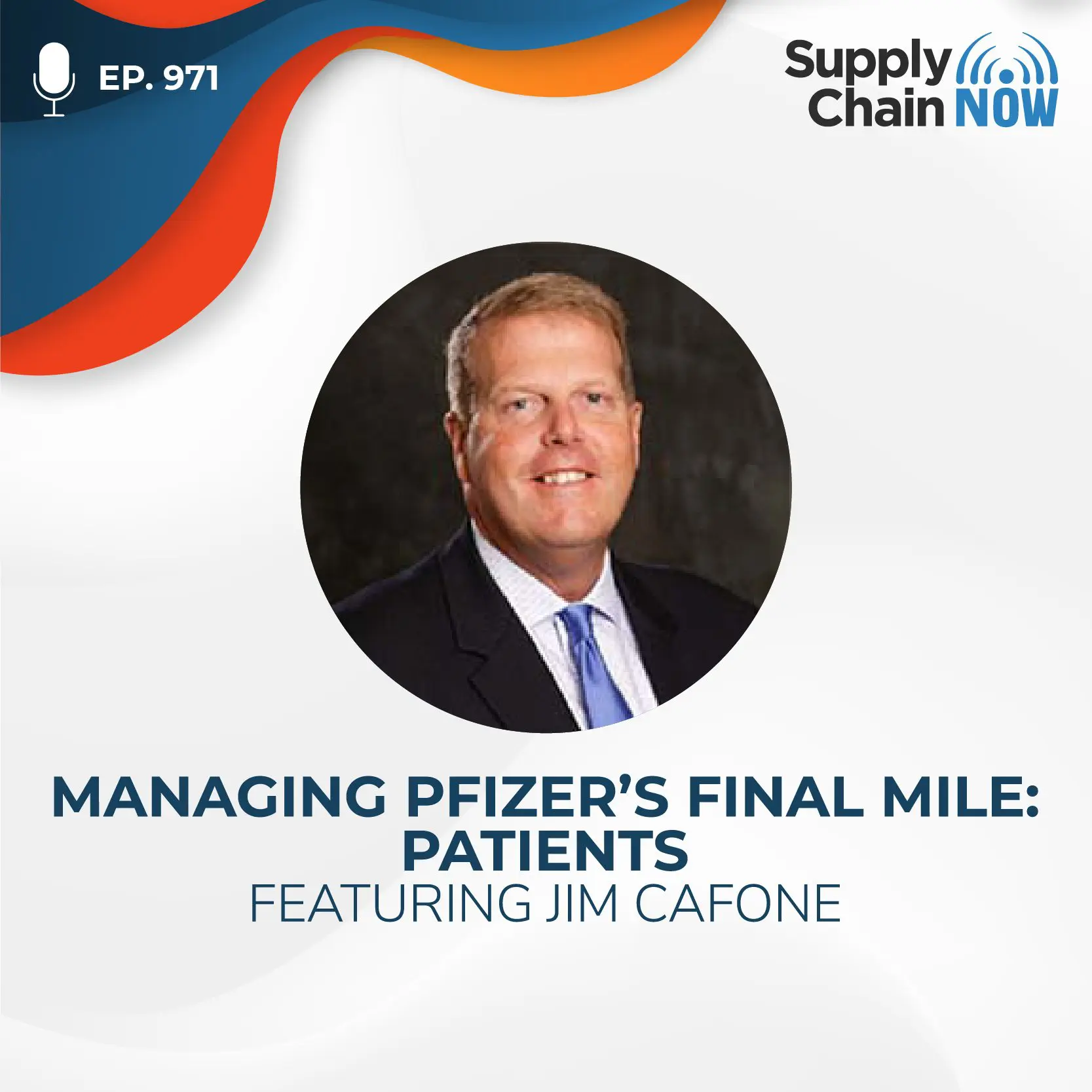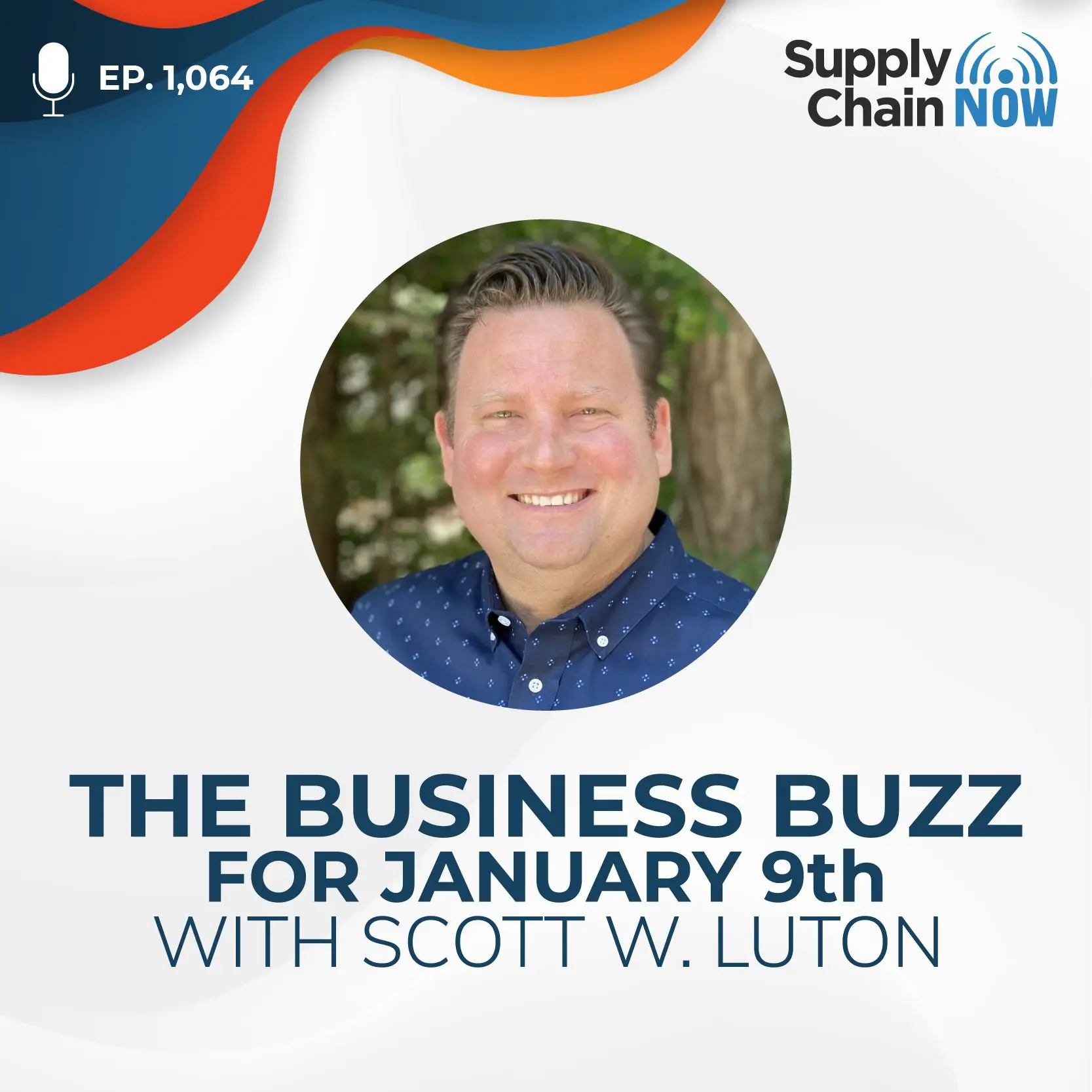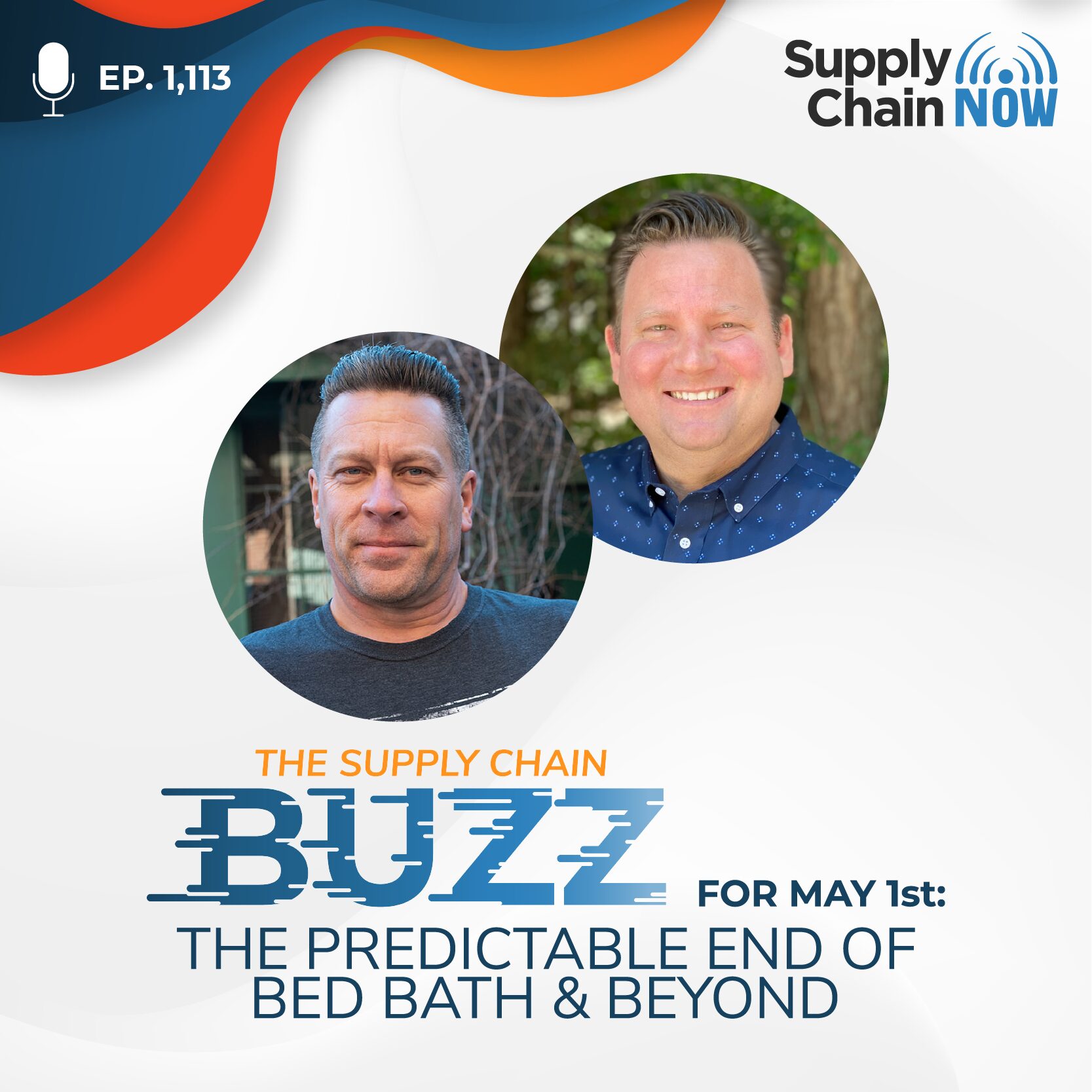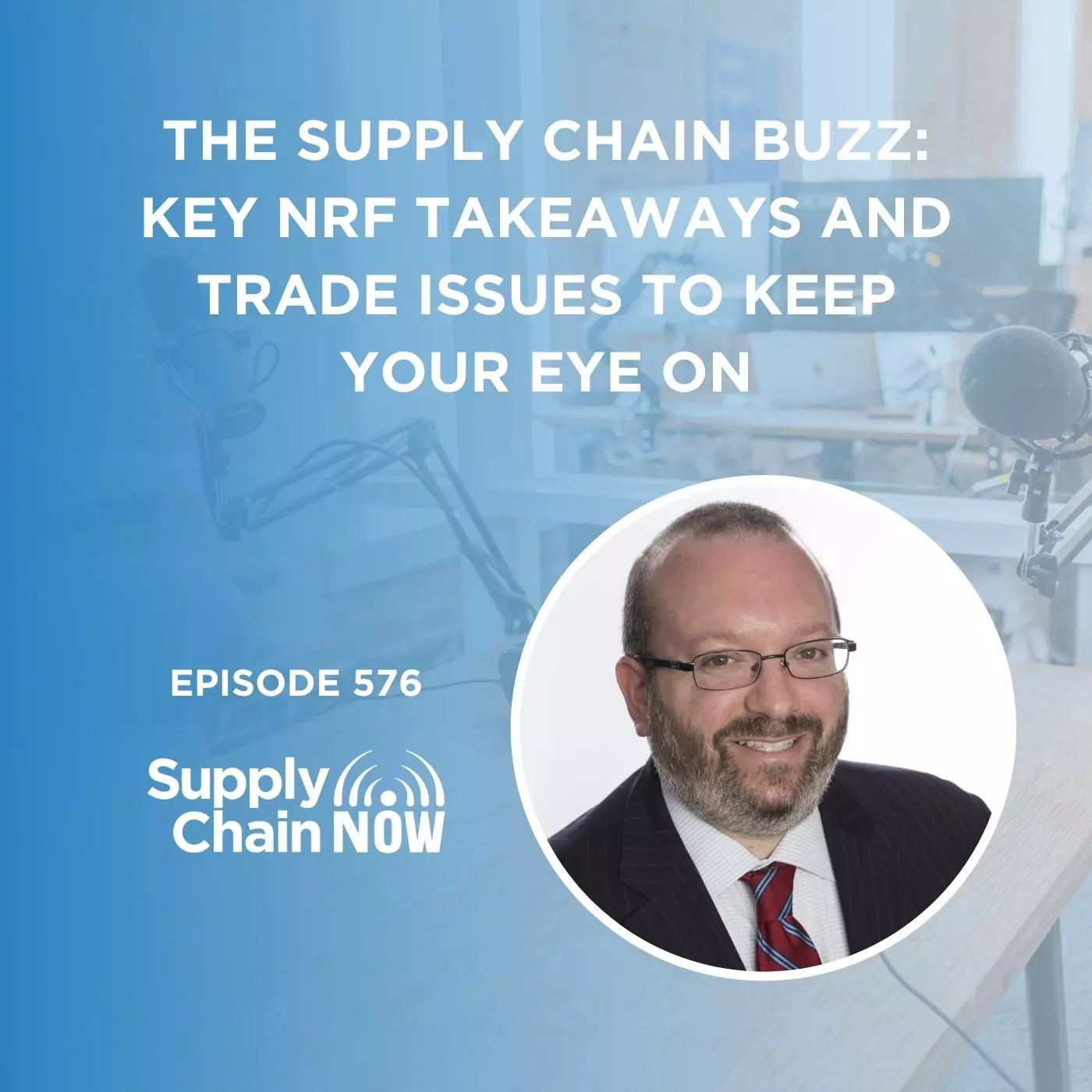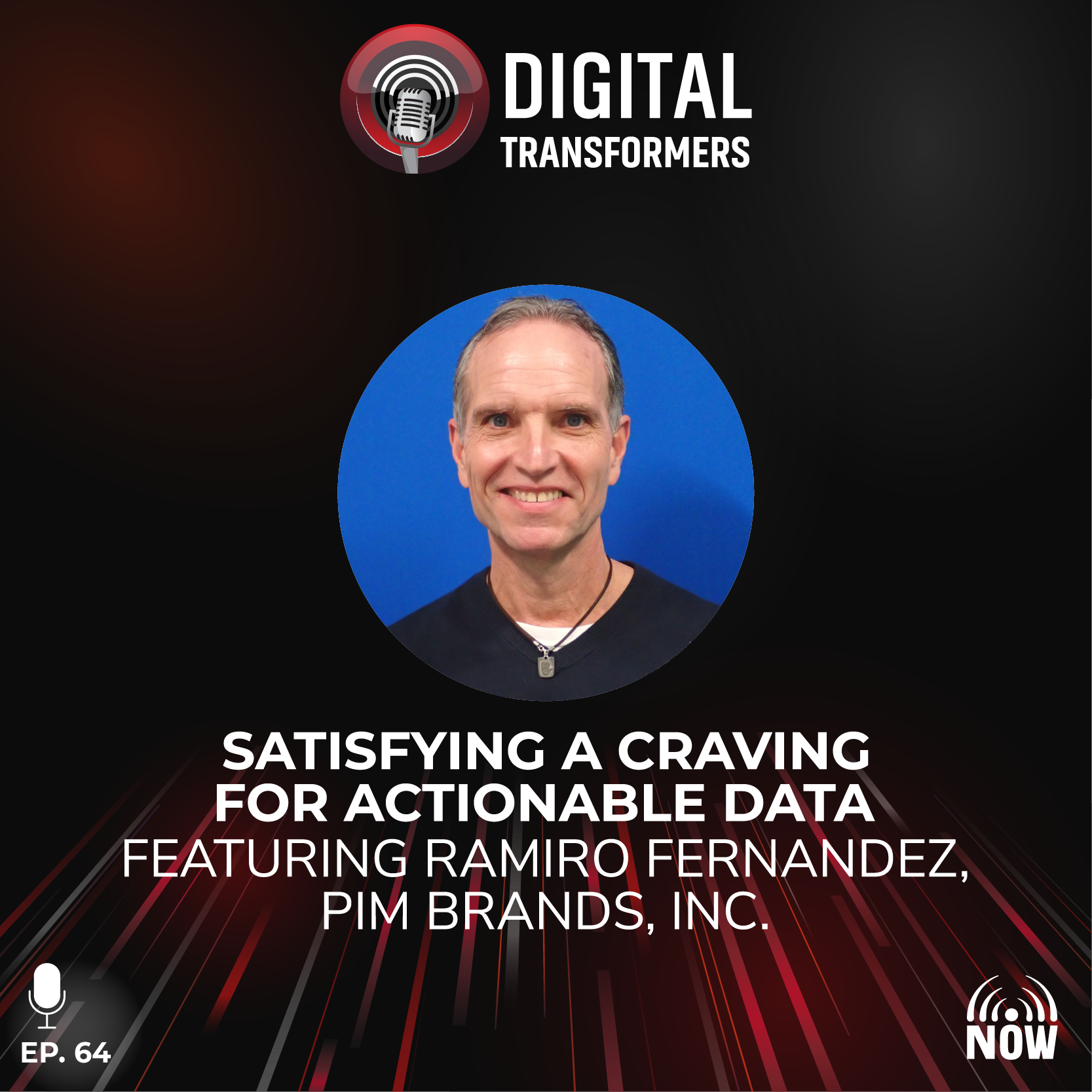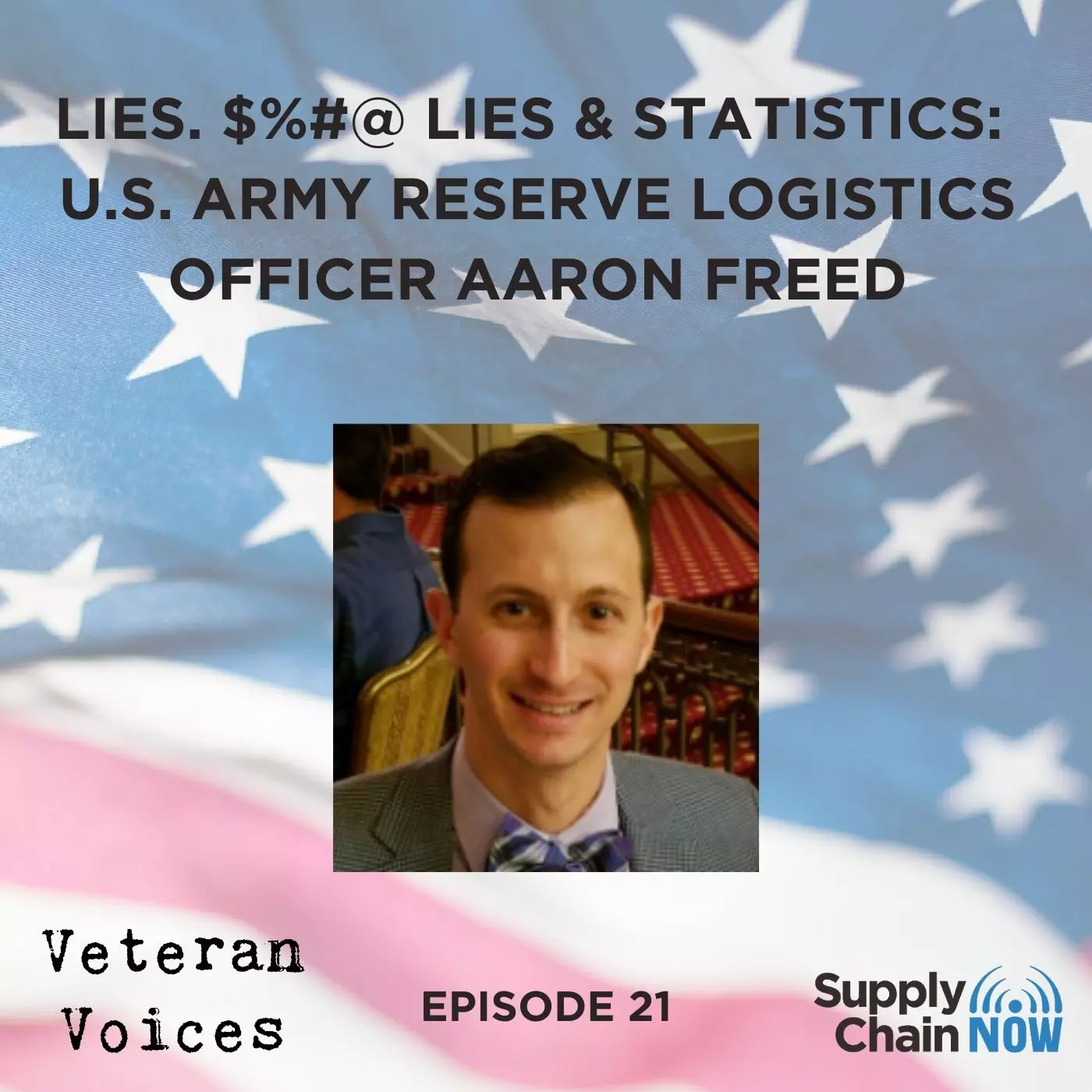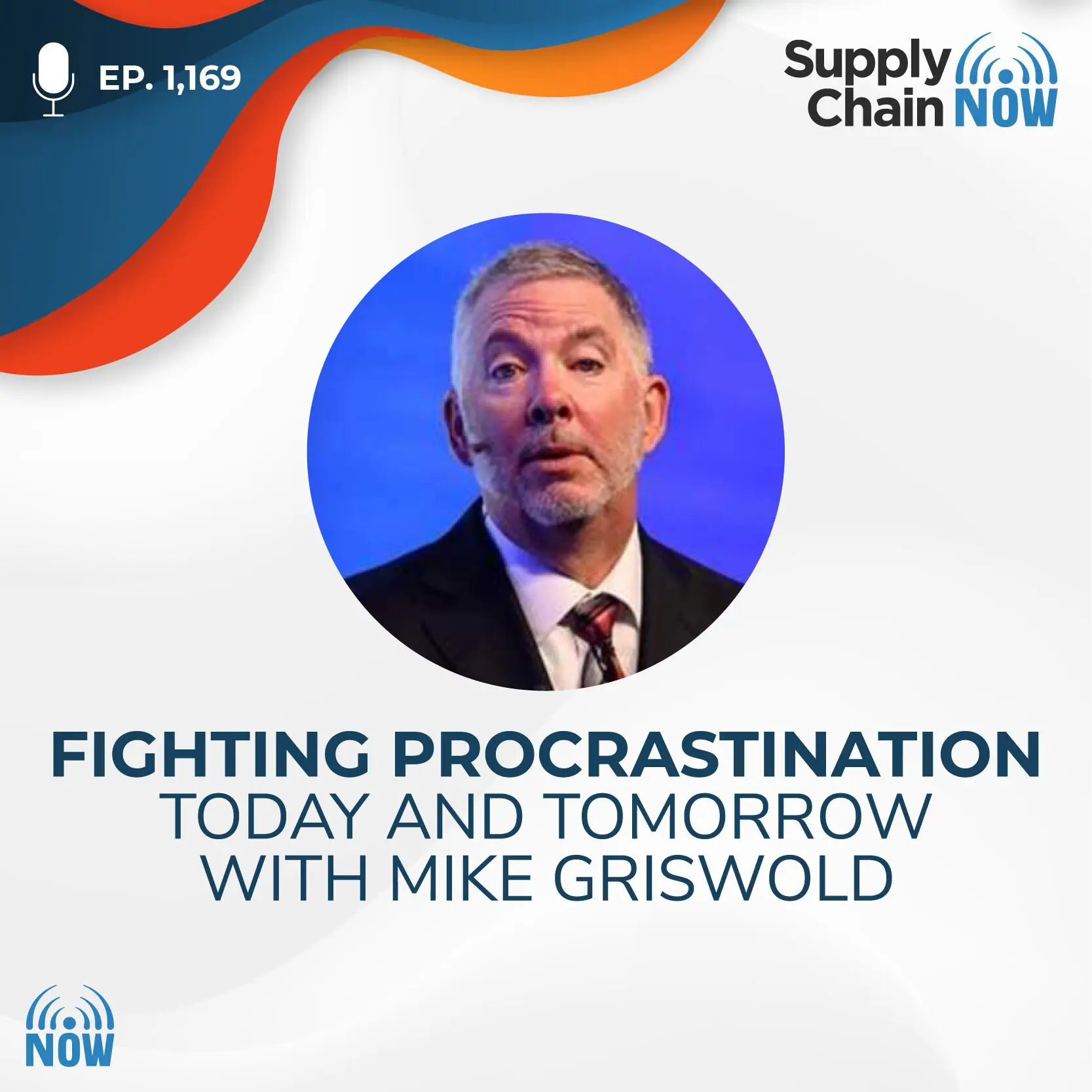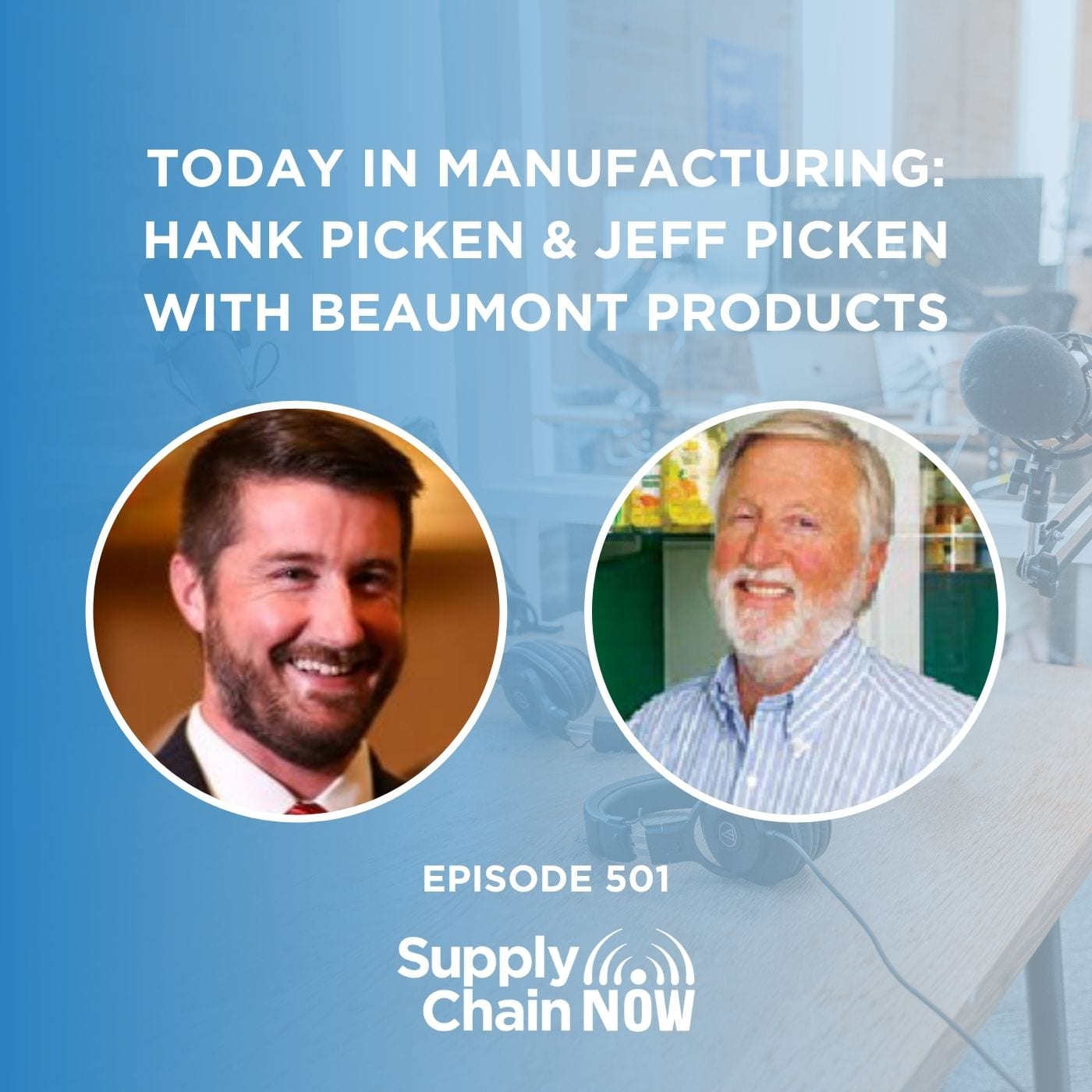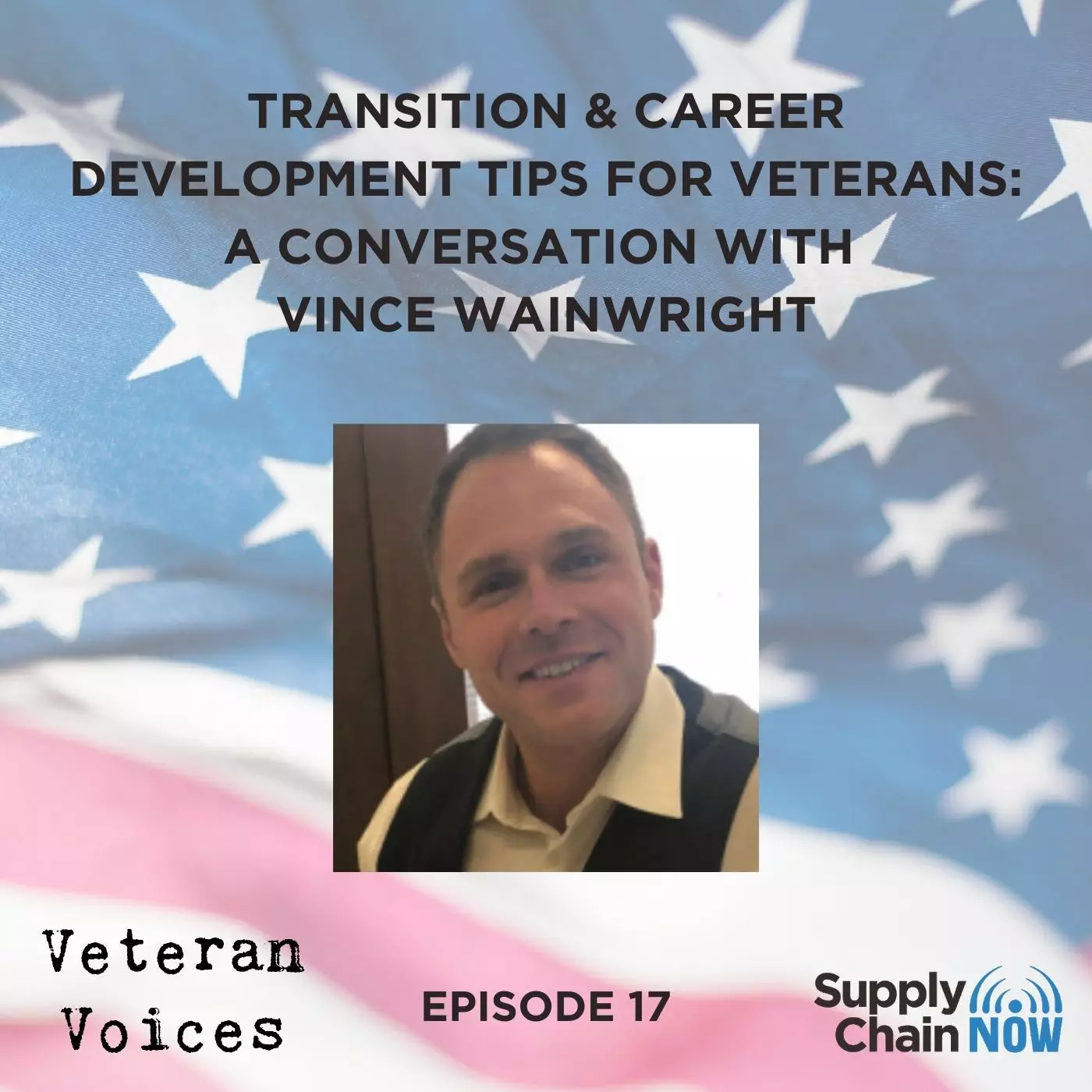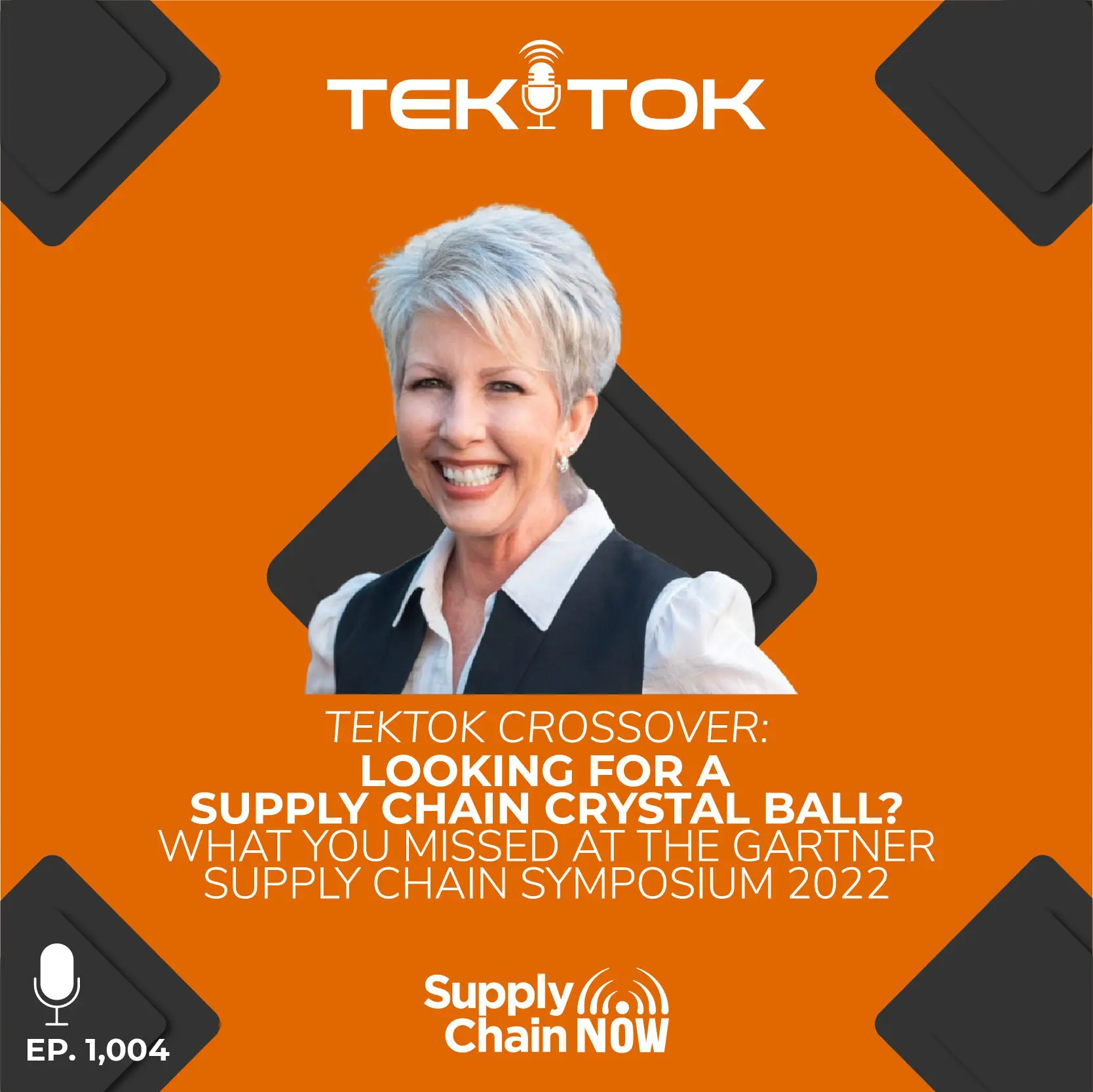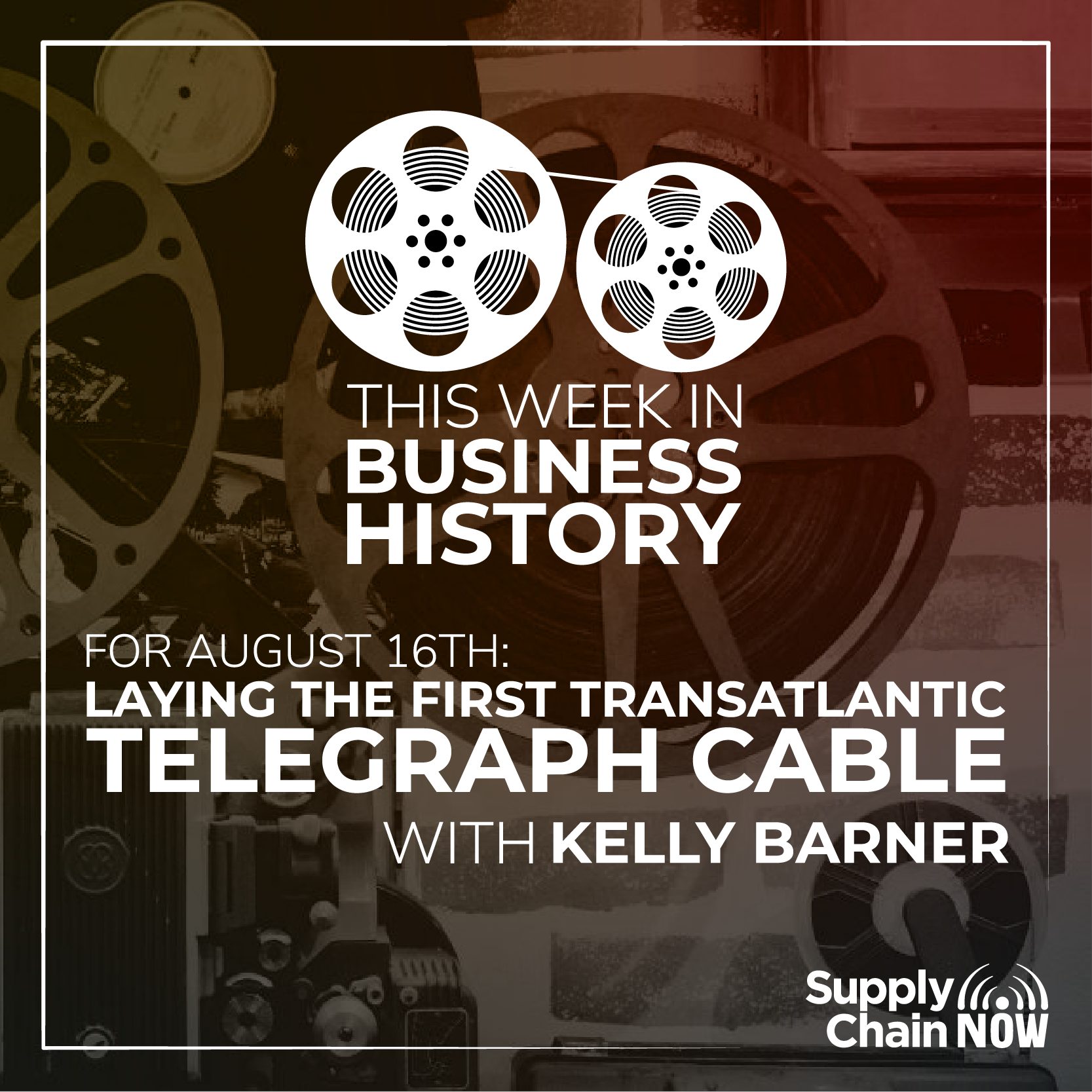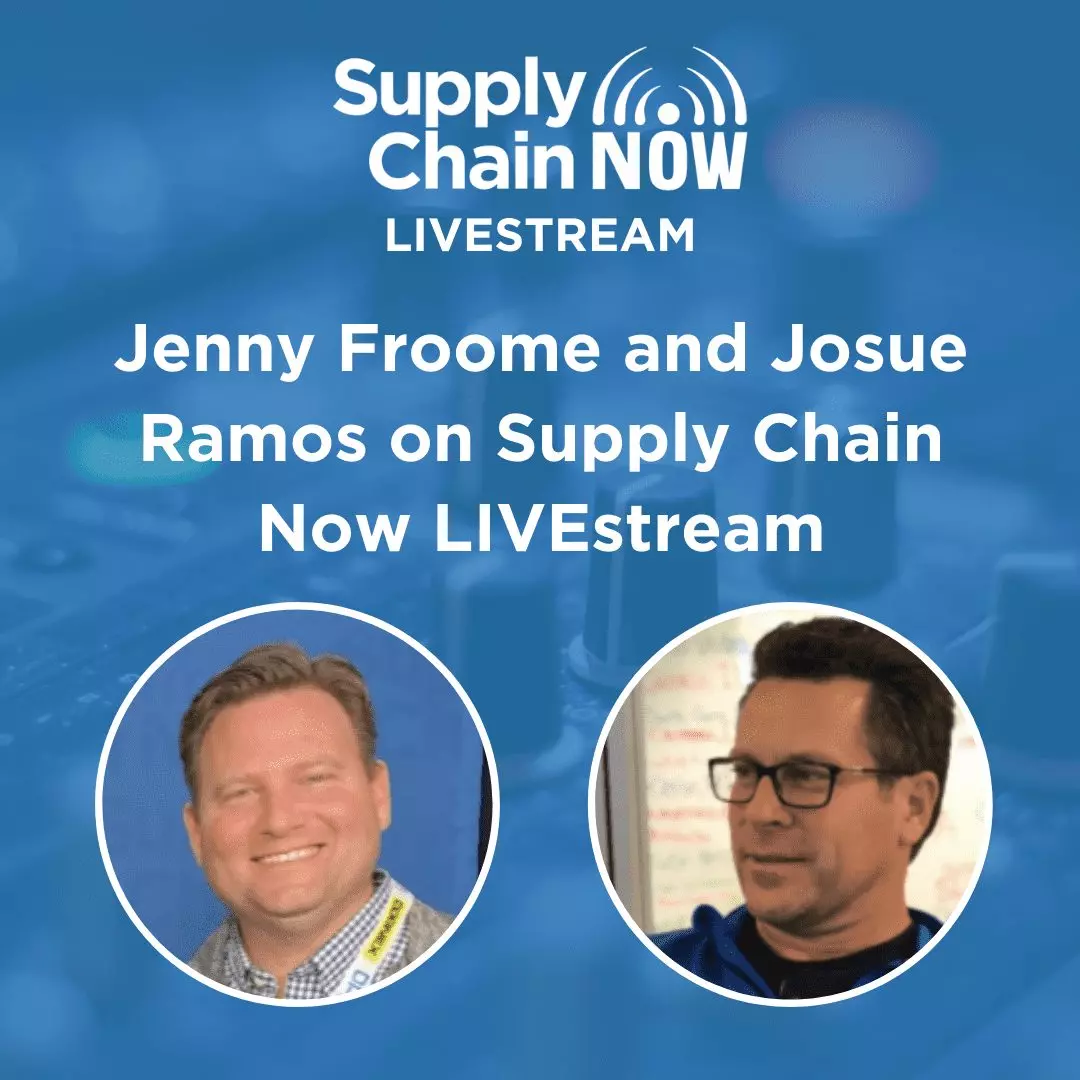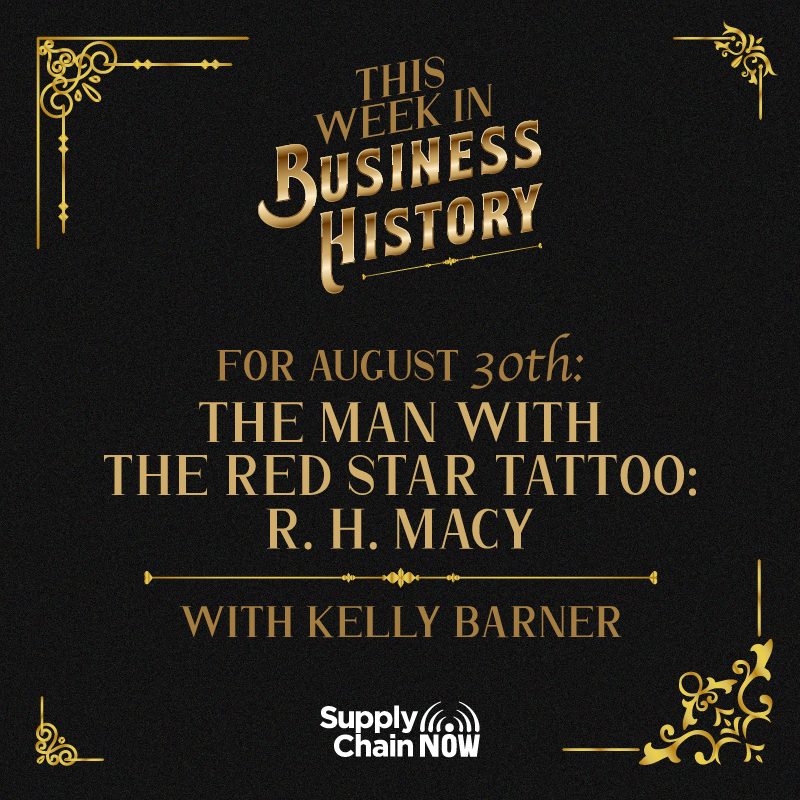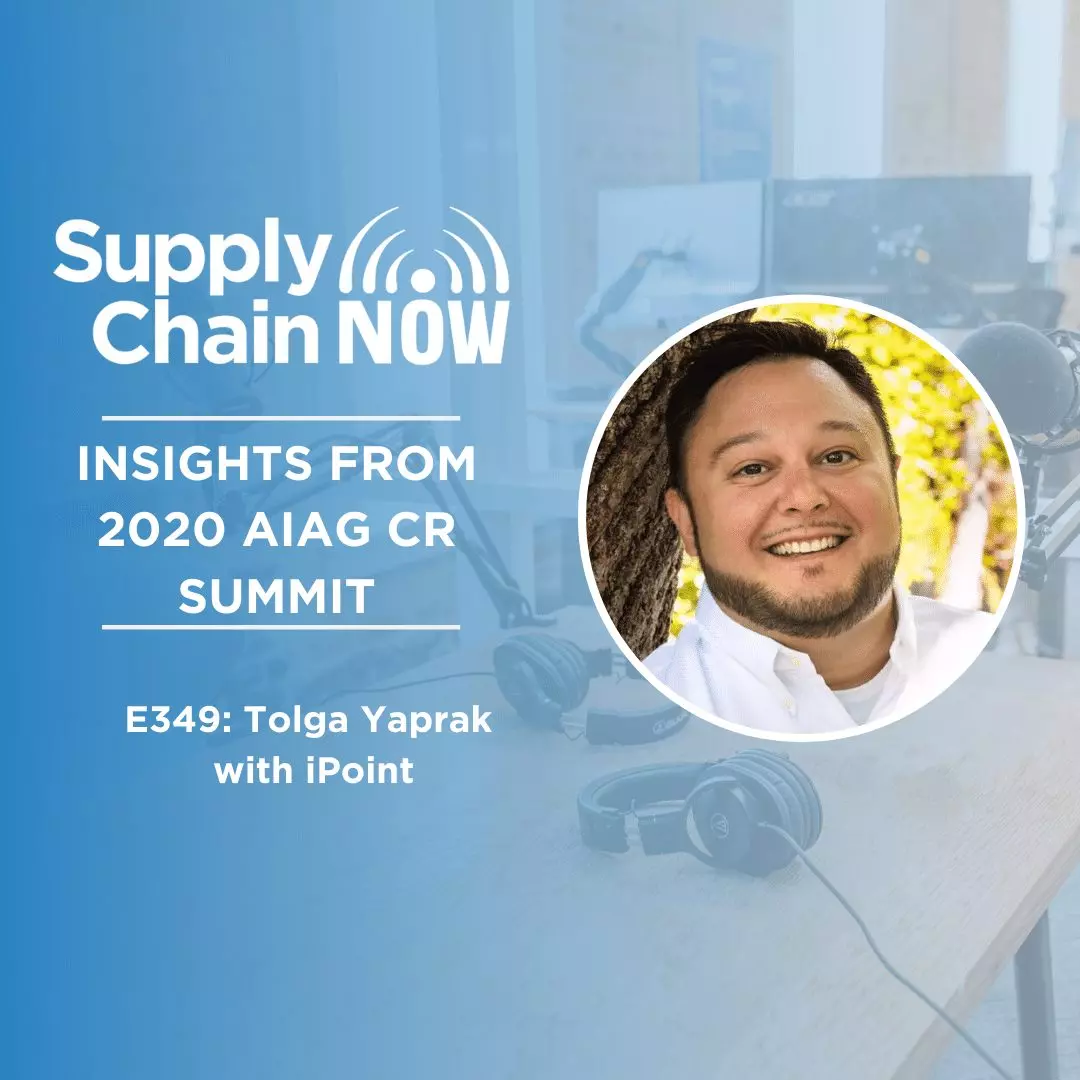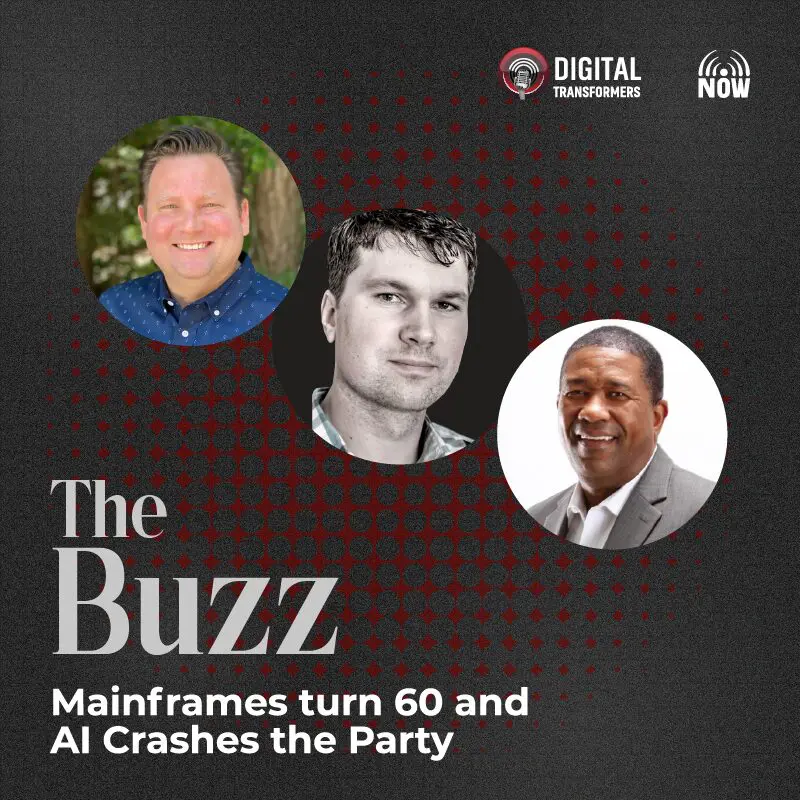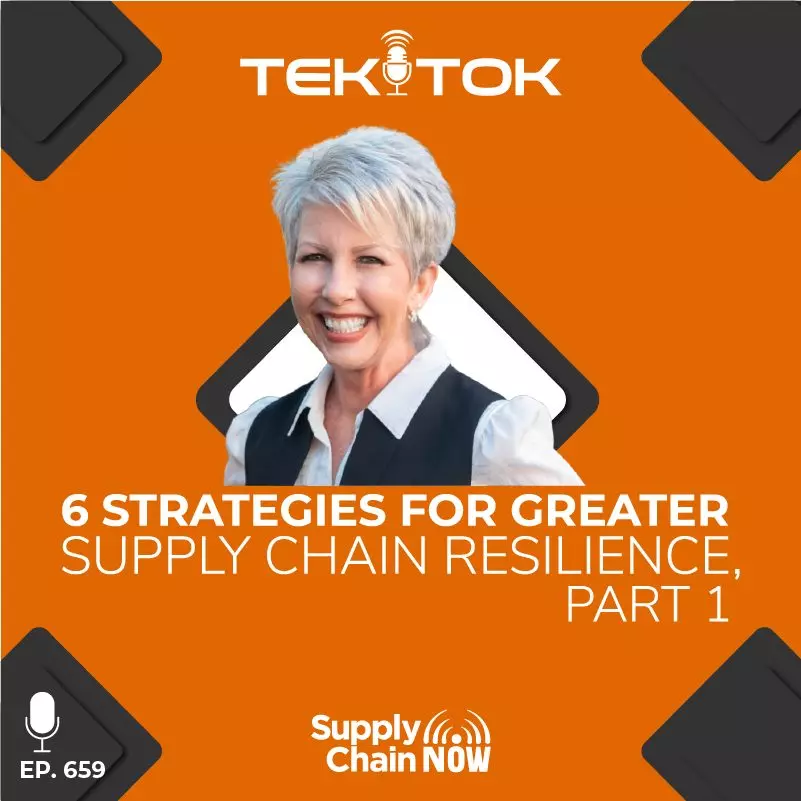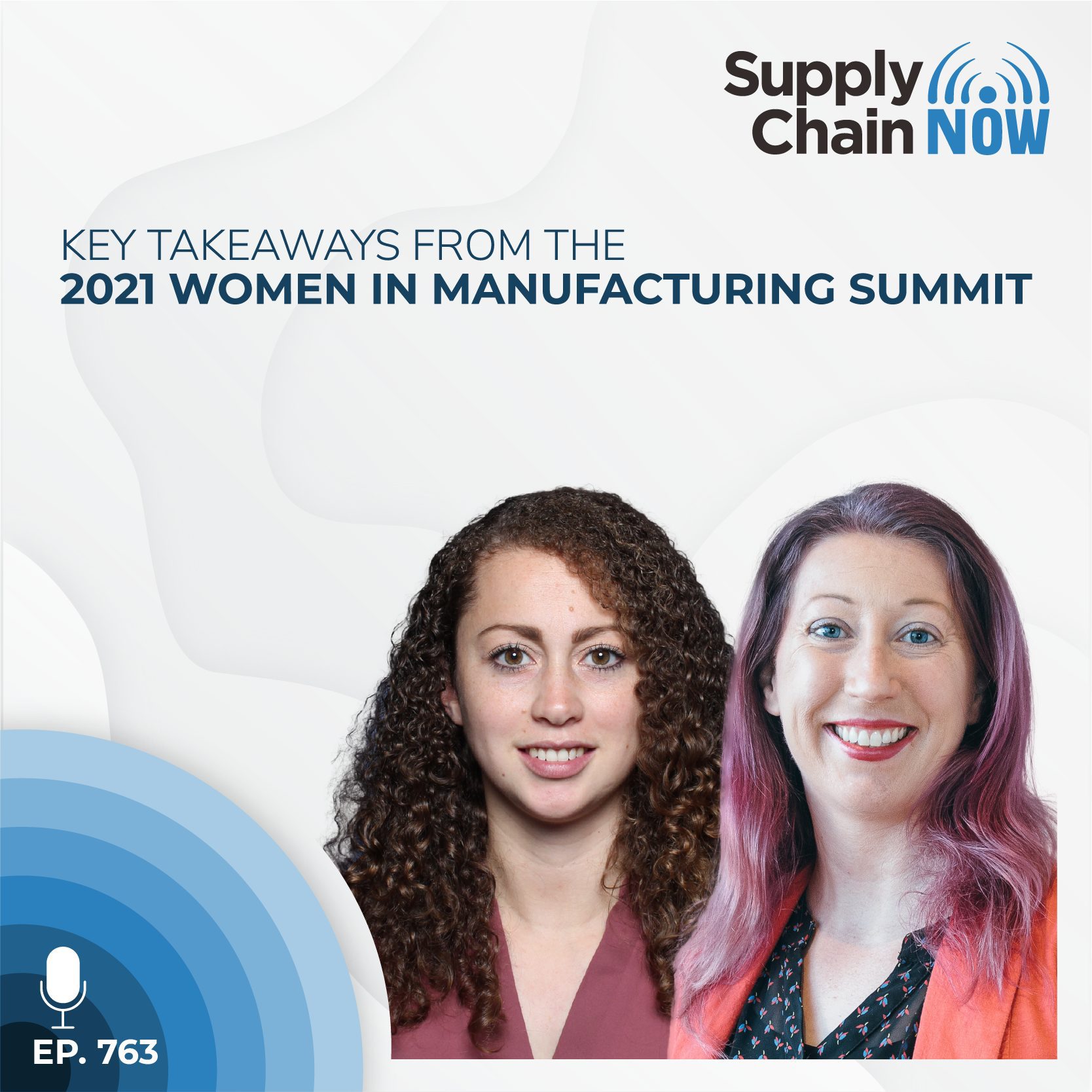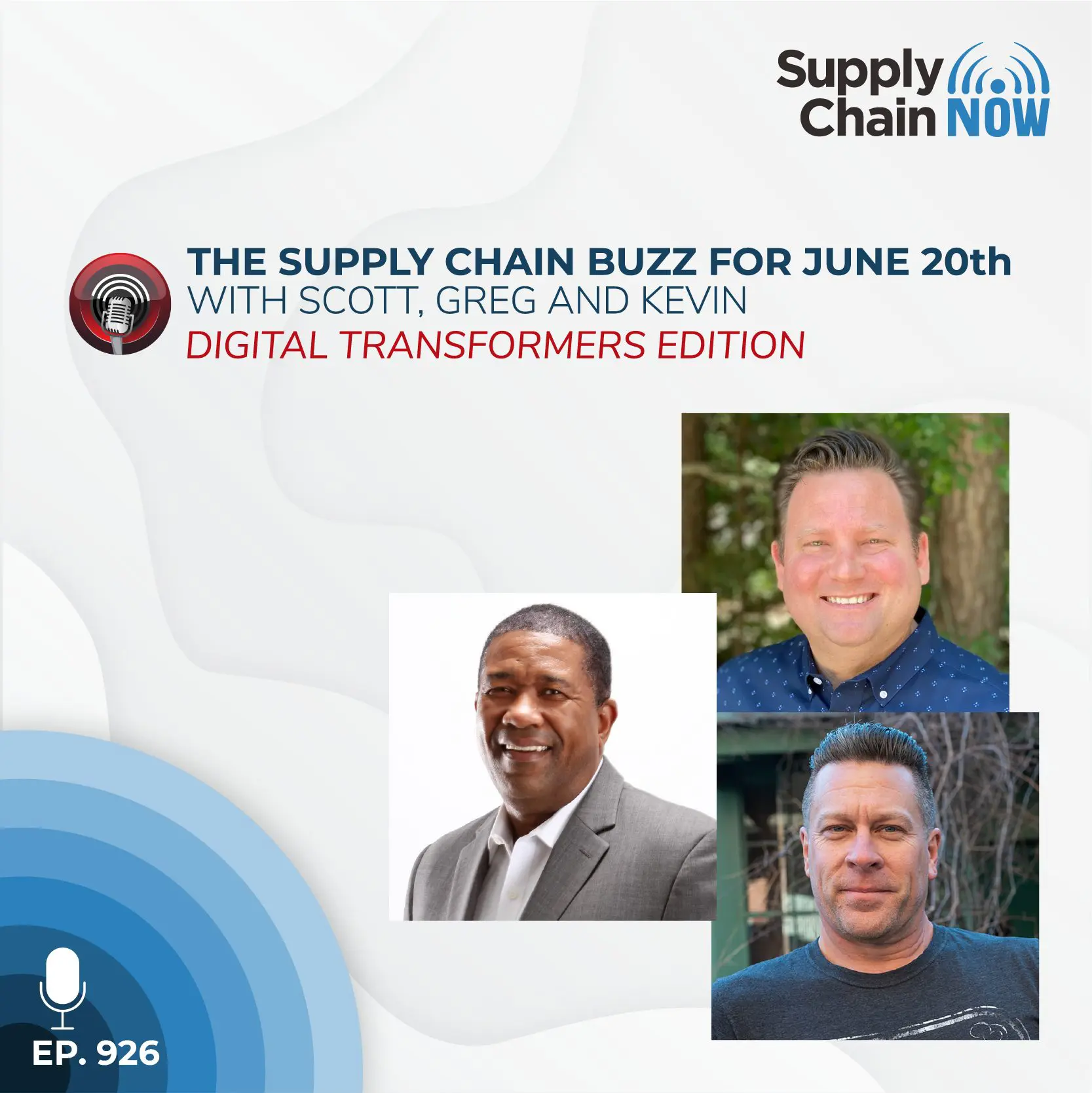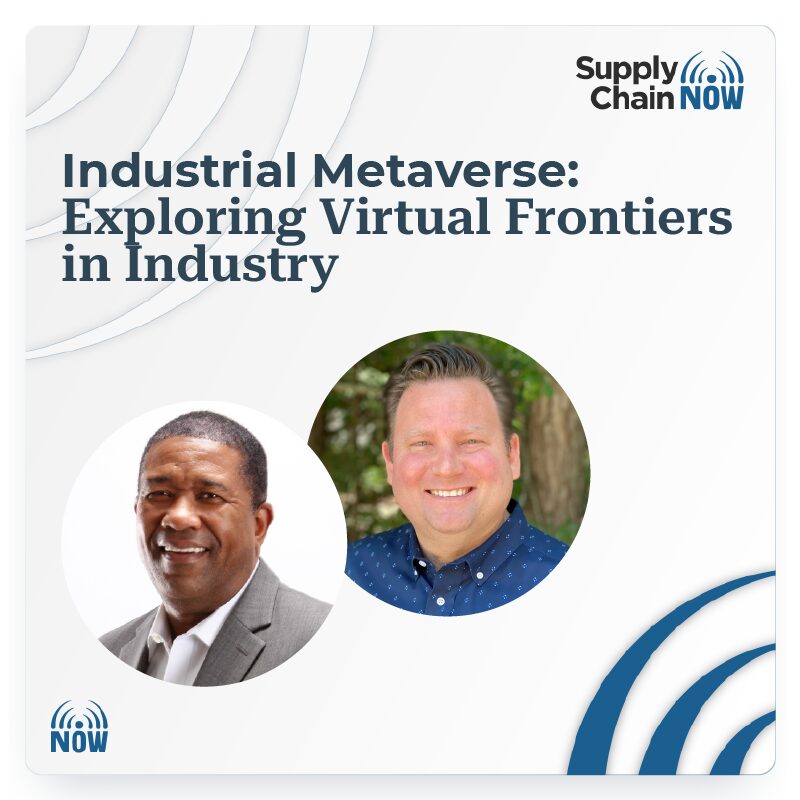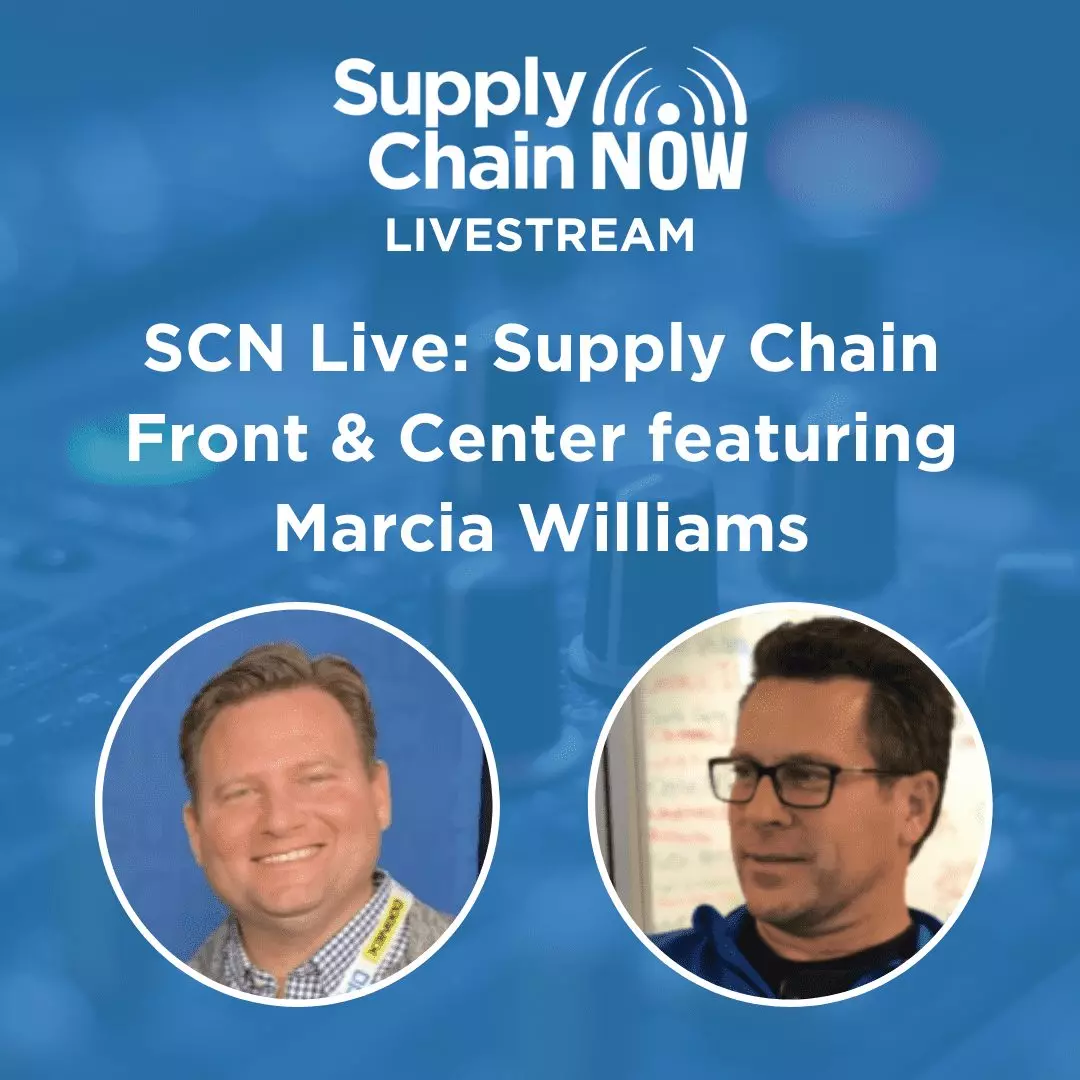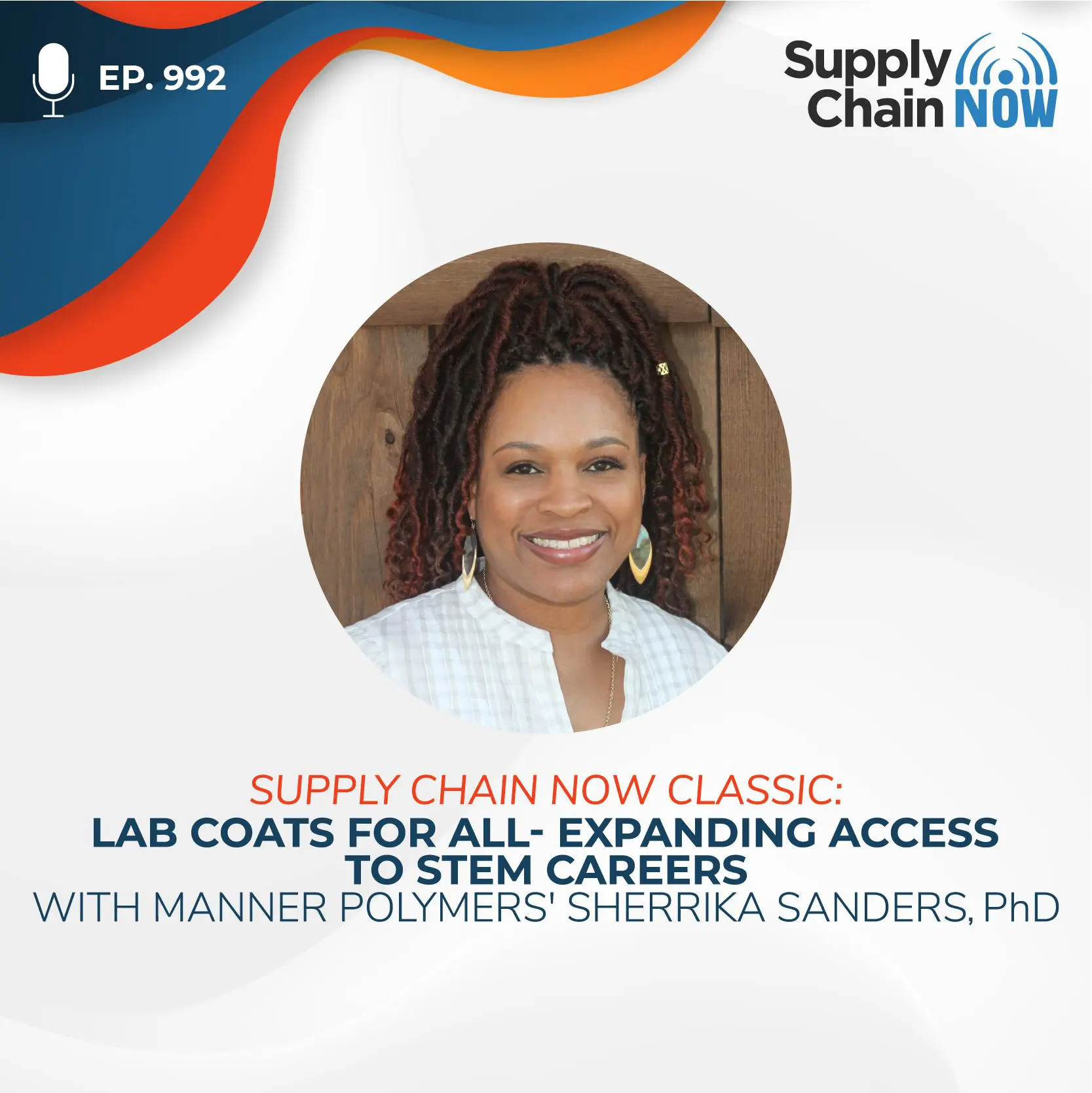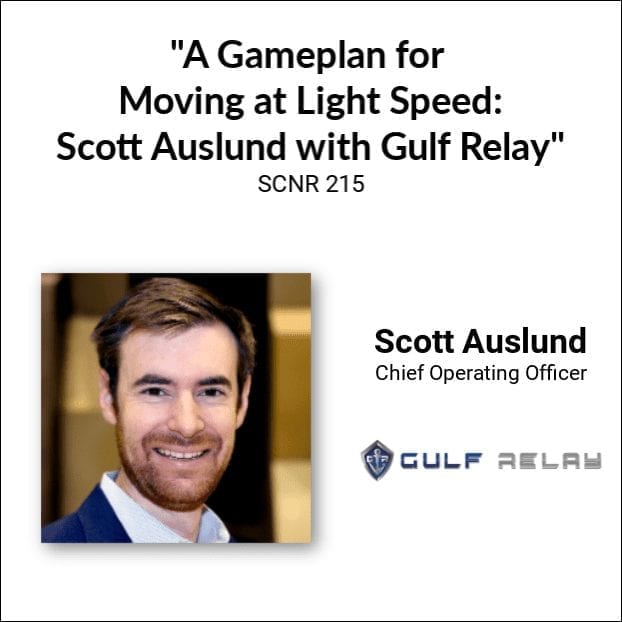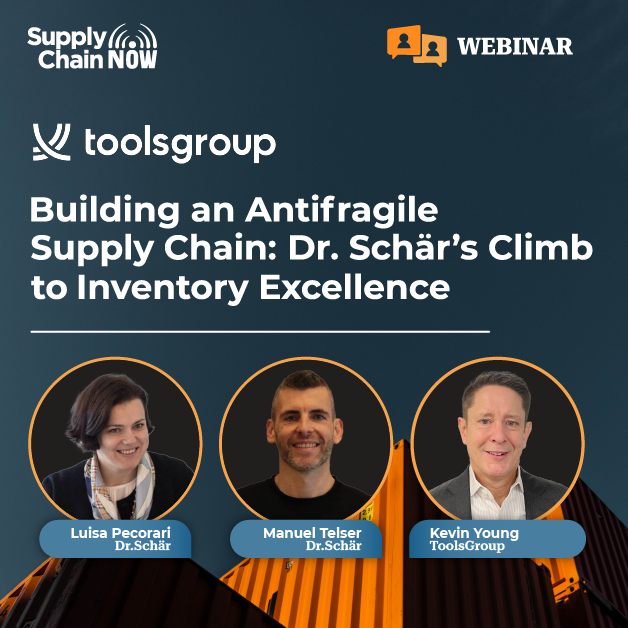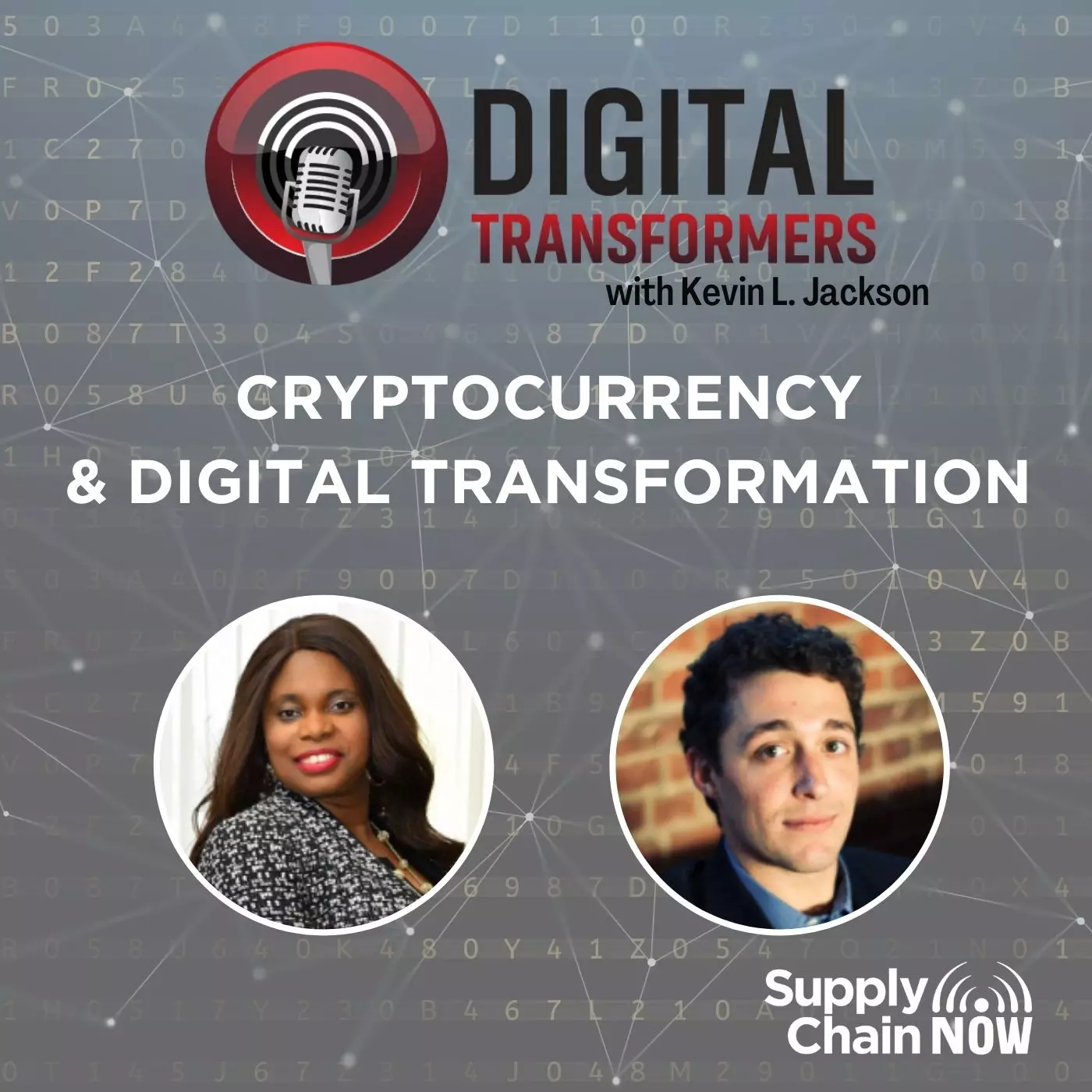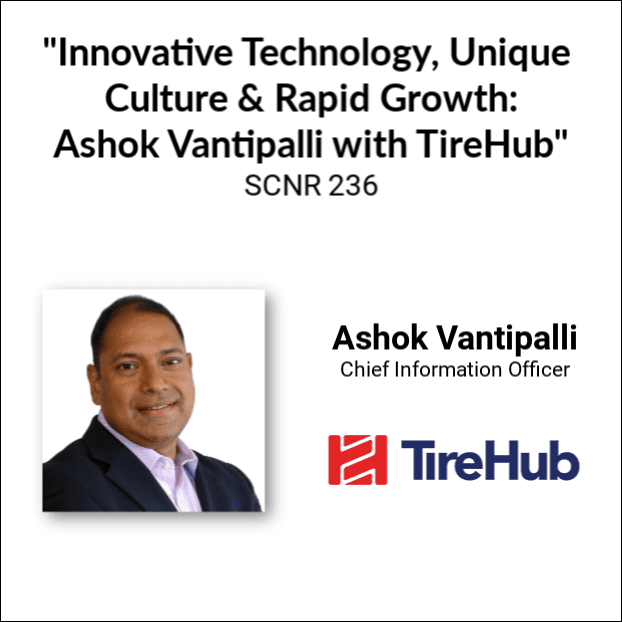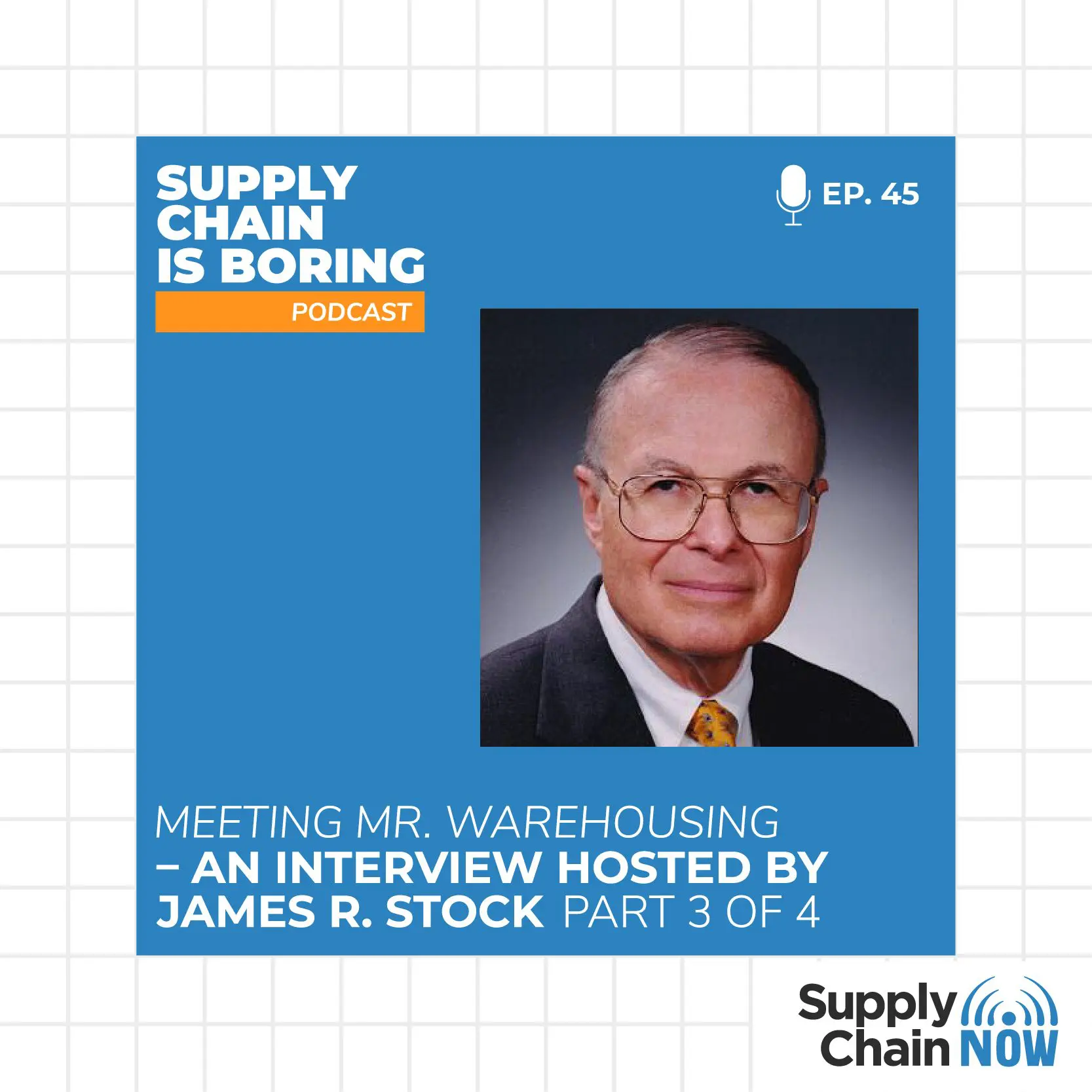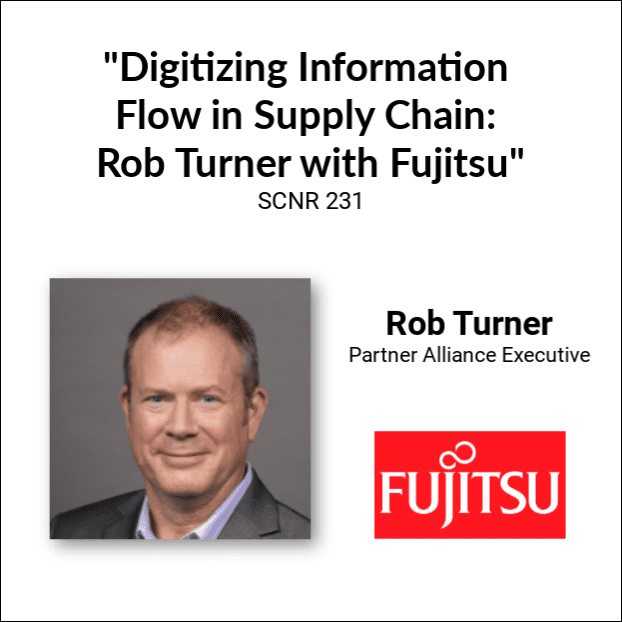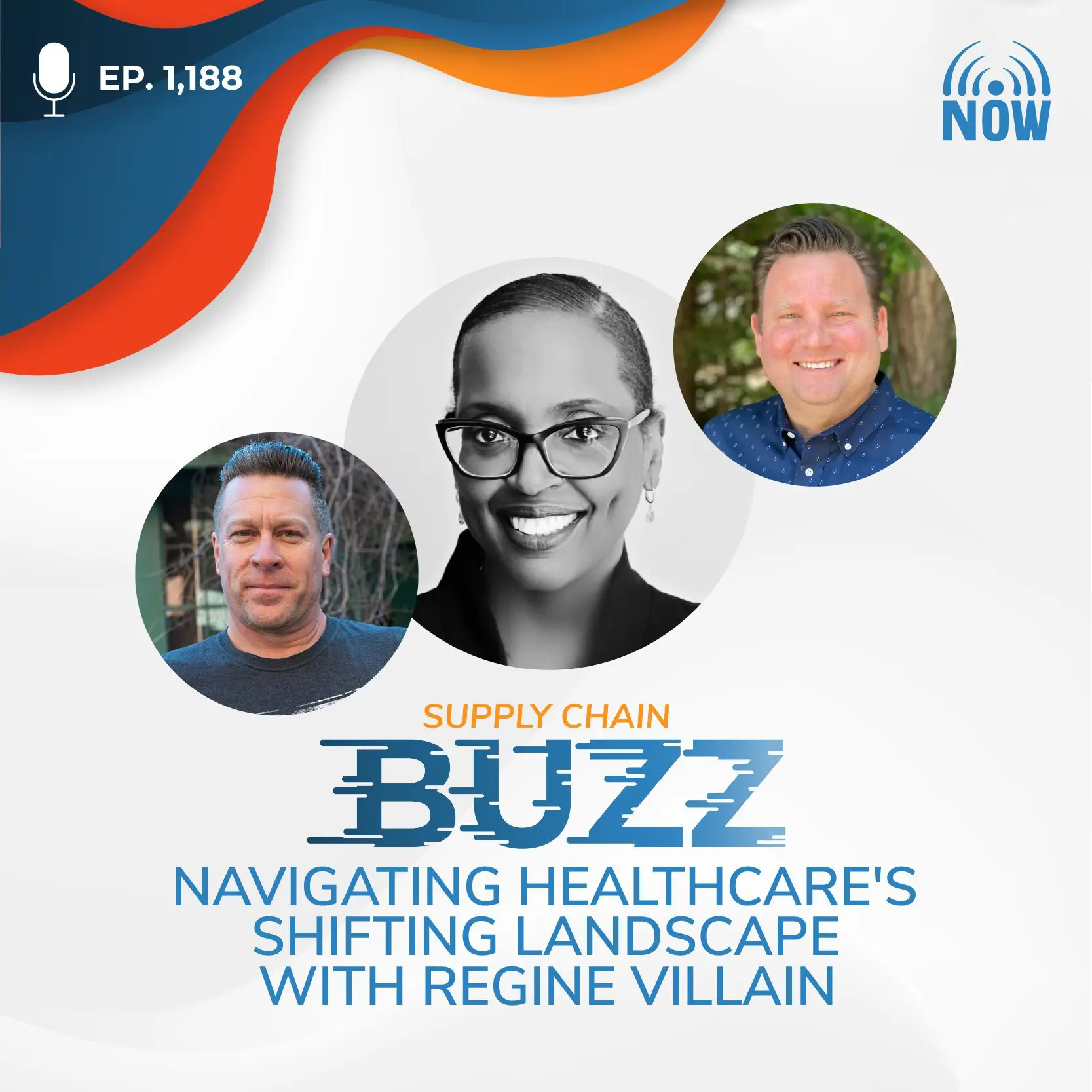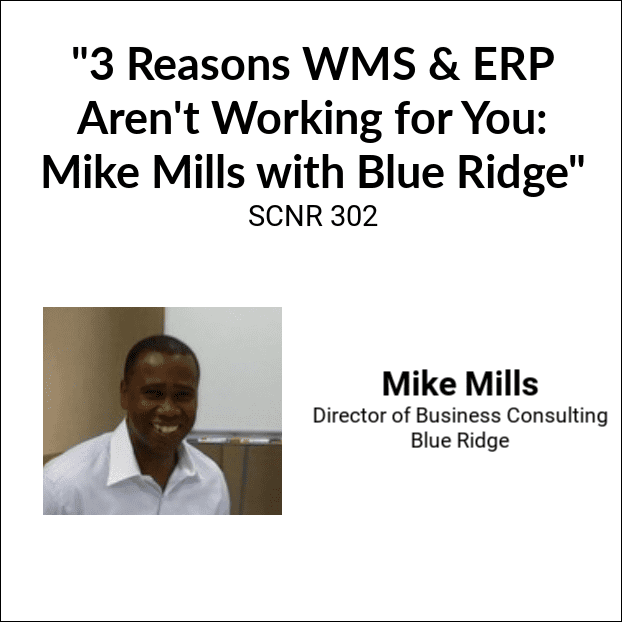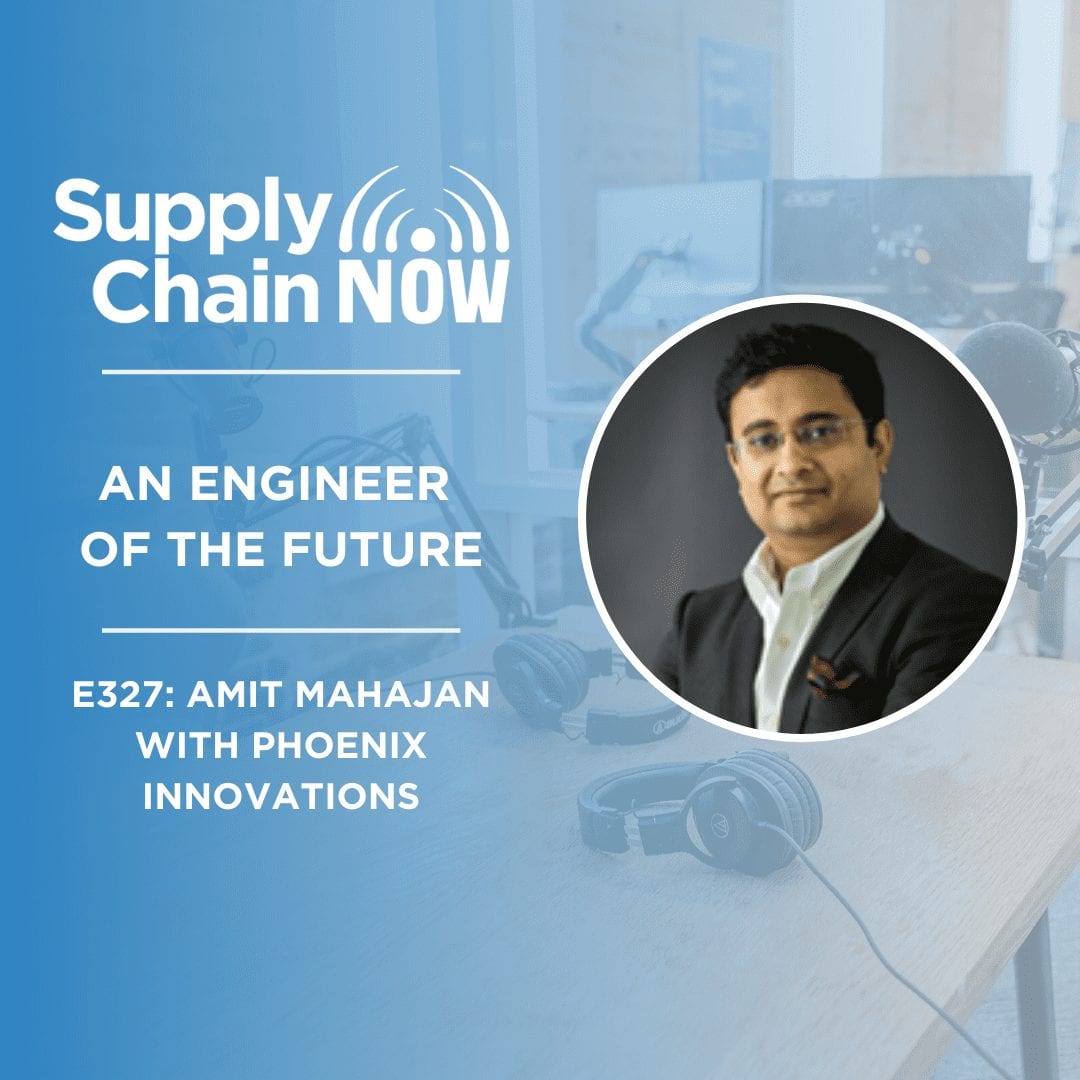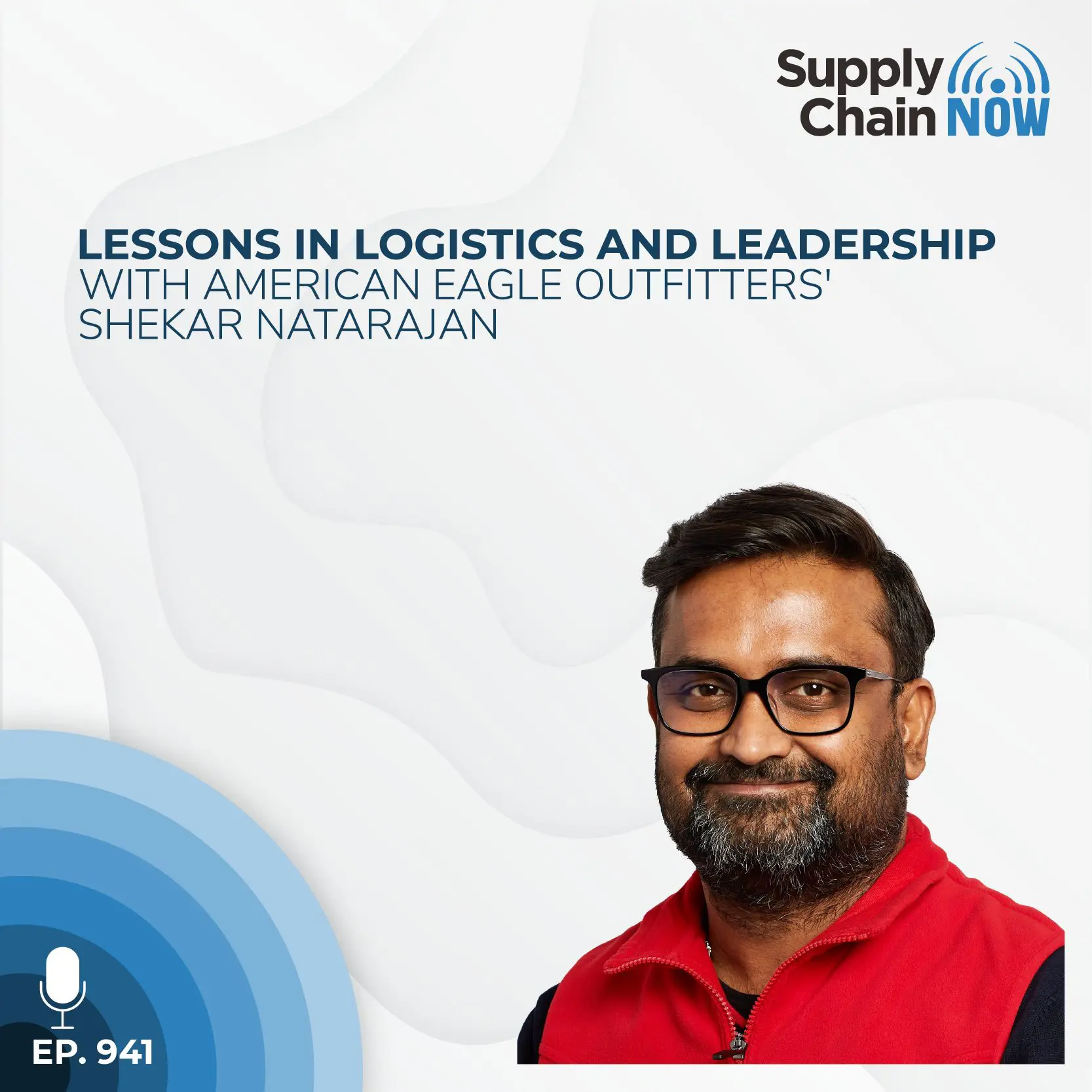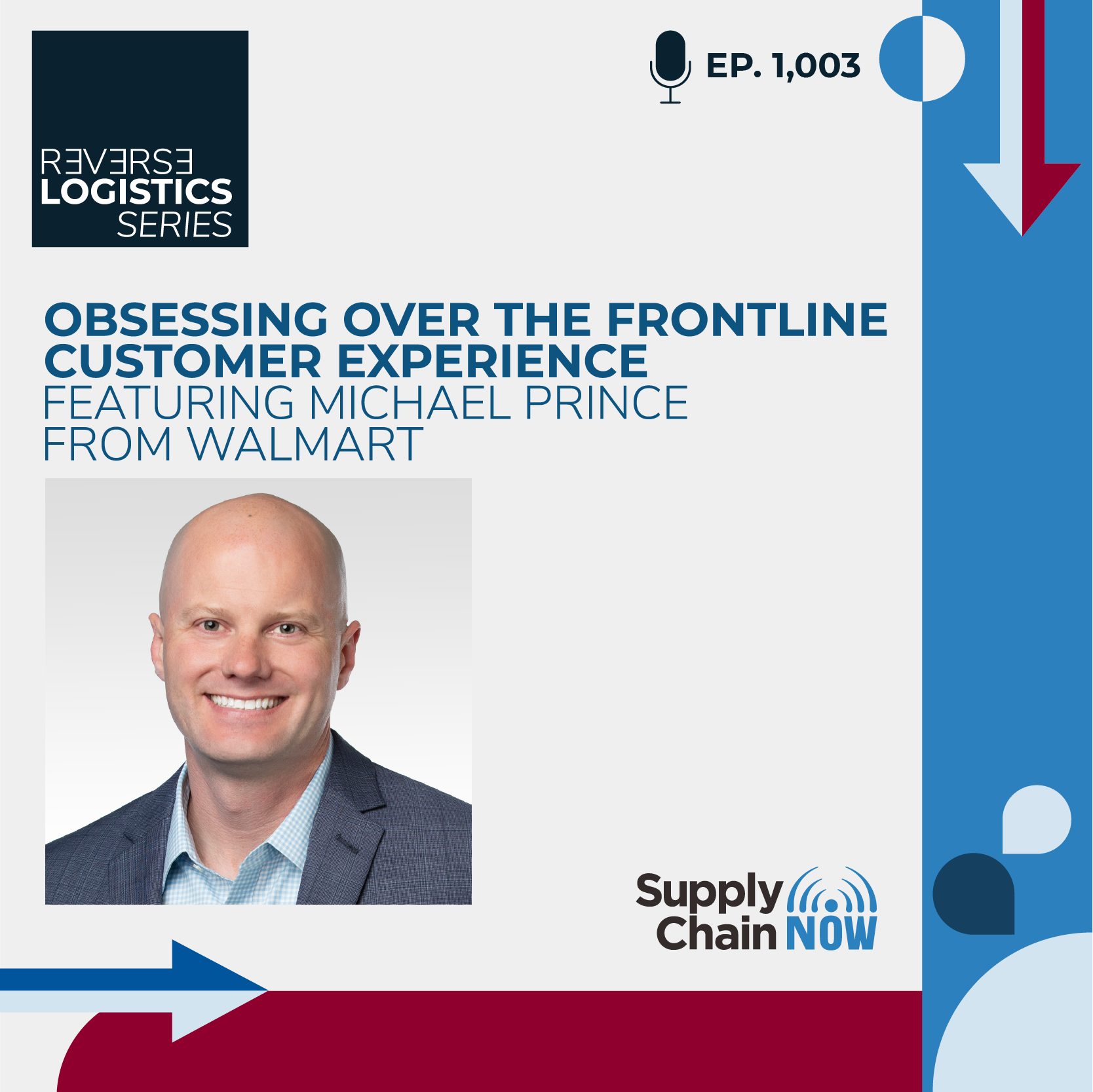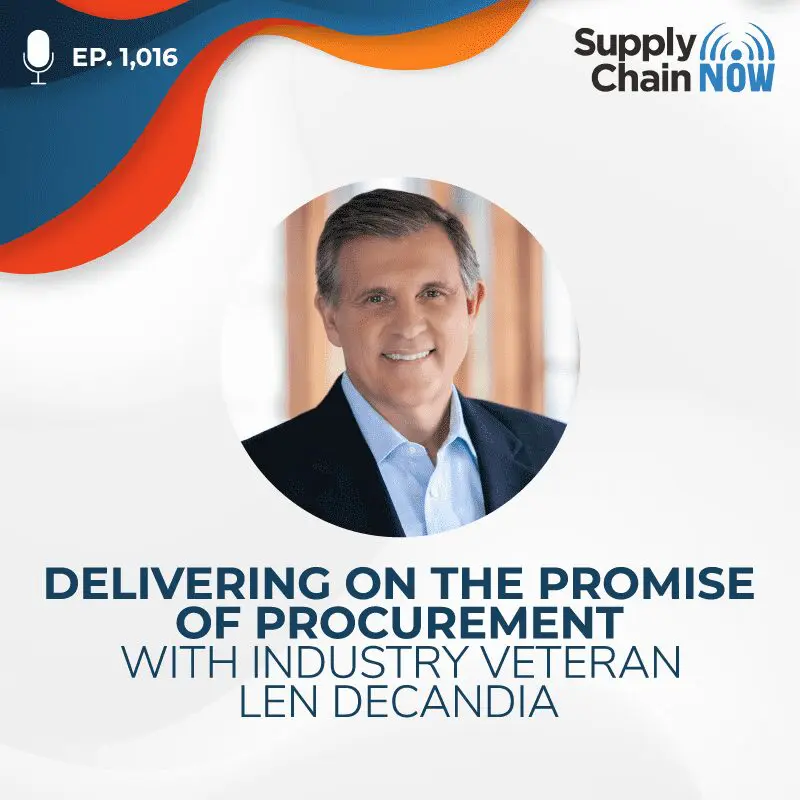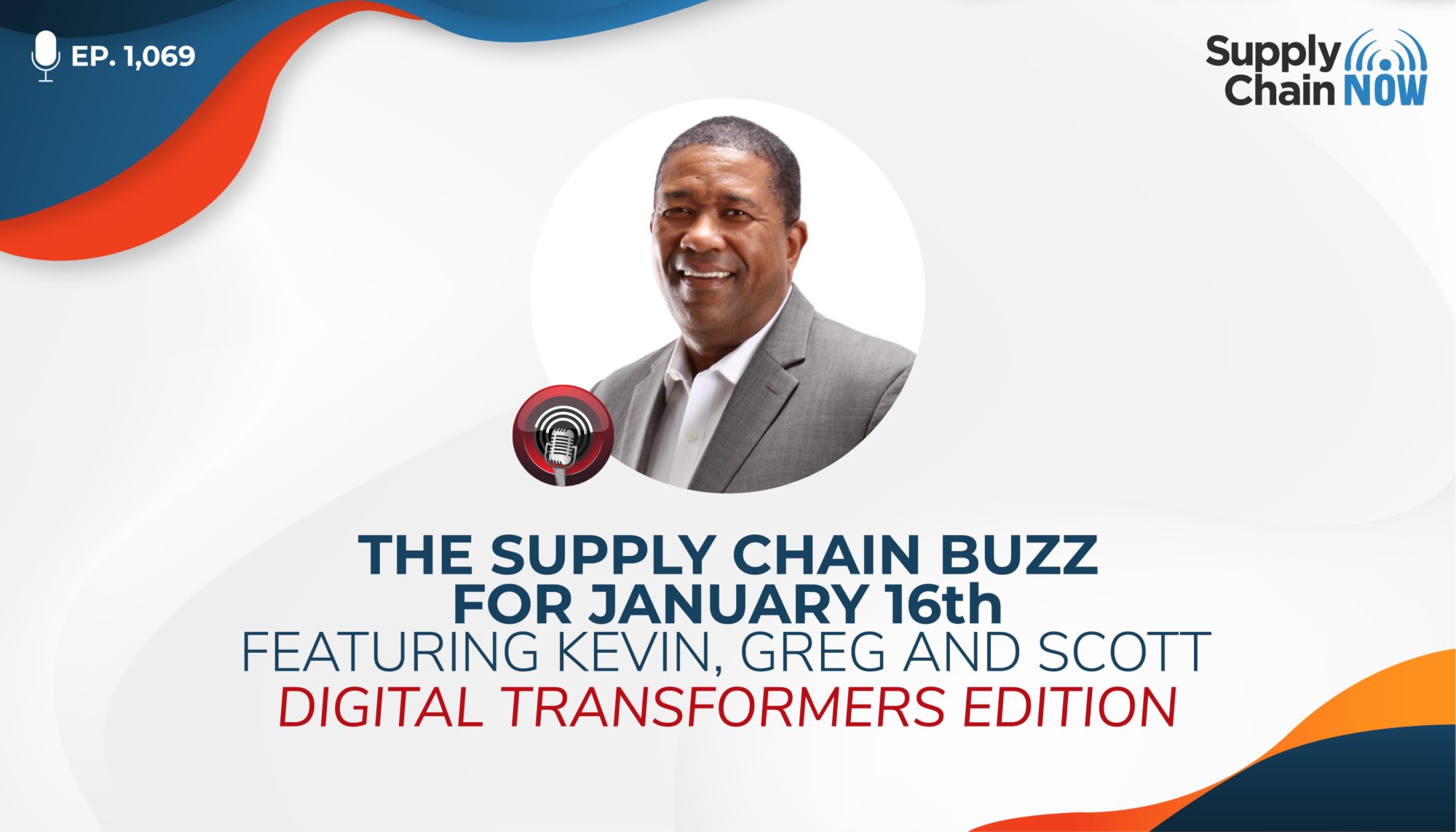
You always move forward, but you never get to the end. The struggle is valuable, and you have to keep working towards the future, working towards the prize. The journey is more important than the destination, and we're always on the journey.
- Kevin L. Jackson, Host of Digital Transformers on Supply Chain Now
Episode Summary
The Supply Chain Buzz is Supply Chain Now’s regular Monday livestream, held at 12n ET each week. This show focuses on some of the leading stories from global supply chain and global business, always with special guests – the most important of which is the live audience!
This week’s edition of The Buzz featured co-hosts Scott Luton and Greg White as well as Digital Transformers Host Kevin L. Jackson. In addition to commenting on the latest news stories, they reflected on the meaning of Martin Luther King Jr. Day and the important work that continues in the spirit of his legacy.
In this livestream, created in collaboration with a live Supply Chain Now audience, Kevin, Greg, and Scott discussed:
• How the automotive industry is embracing digital operating models as a way to improve their visibility into the supply chain and the analytical capabilities that will allow them to respond to disruptions
• What retailers such as Nike learned from epic inventory gluts in 2022, and the changes that may be made to the traditional omnichannel retail model as a result
• The noble undertaking being pursued by the fashion brand Mango in order to improve the sustainability and human rights performance of this notoriously difficult supply chain
• Retail trends that we may see in 2023, including immersive experiences, data (followed by data and data), hyper personalization, and the use of video in eCommerce marketing
Episode Transcript
Intro/Outro (00:00:03):
Welcome to Supply Chain. Now the voice of global supply chain supply chain now focuses on the best in the business for our worldwide audience, the people, the technologies, the best practices, and today’s critical issues, the challenges and opportunities. Stay tuned to hear from those Making Global Business happen right here on supply chain now.
Scott Luton (00:00:31):
Hey, good morning, good afternoon, good evening, Scott Luton, Greg White and Kevin Jackson here with you on Supply Chain. Now welcome to today’s livestream, Greg, how you doing?
Greg White (00:00:41):
I’m doing very well, Scott. How are you doing?
Scott Luton (00:00:43):
I am doing wonderful and great to see you.
Greg White (00:00:48):
<inaudible>.
Scott Luton (00:00:48):
What’s that? <laugh>.
Kevin L. Jackson (00:00:49):
Yeah. <laugh>.
Scott Luton (00:00:52):
Well, Anne, Kevin, we
Greg White (00:00:54):
Are totally unscripted here. For anyone who has any doubt,
Kevin L. Jackson (00:00:57):
<laugh> No, I’m still, uh, I’m still kind of woozy from that swoosh <laugh>,
Scott Luton (00:01:03):
Not you. You’ve been used to beating the speed of sound forever. Kevin, you can’t be woozy. <laugh>. True. Well, great to see you
Kevin L. Jackson (00:01:10):
Both just trying to keep up.
Scott Luton (00:01:11):
<laugh> trying. I hear that. Uh, aren’t we all? Aren’t we all? Well, hey, today’s show, it’s the digital Transformers of the supply chain Buzz here at Supply Chain now, and we share some of the leading stories across global business focused on news and key developments. And folks get ready. Cause we want to hear from you as well. But before we get into that, um, Kevin and Greg mm-hmm. <affirmative> even more important than the buzz and digital transformers and global business, all that stuff. Today is m l k day 2023, right. Martin Luther King, Dr. Martin Luther King Jr. One of my favorite quotes here until Justice rolls down like waters and righteousness, like a mighty stream. That is the Montgomery Civil Rights, uh, monument, I believe, Montgomery, Alabama. Um, with that as a backdrop, Greg and Kevin and Greg gonna start with you. When you think of, um, uh, Dr. King’s immense, uh, change and contributions and leadership and legacy, what’s some of your thoughts that comes to your mind?
Greg White (00:02:11):
Well, I mean, if anyone’s ever watched, watched this before, they, they probably have a pretty good idea. But just to reinforce it, um, obviously Dr. King is a great leader. Um, you know, he, he led, um, with, with love and learning. And I, I think that’s a really important thing. One, you know, one of my favorite quotes was my post today instead of an article I posted that, um, you know, you cannot drive out hate with hate, only love. I’m paraphrasing, of course, only love can do that. Mm-hmm. <affirmative>. And I think that’s an important thing. Un you know, what I’ve, what I’m thinking about today though, Scott, honestly, is that because of, of when he was killed, he was a history lesson for me. I never actually got to hear him in person or, or see him or anything like that. And I think about how how many people have kind of that experience of only, only hearing what people say about Dr.
Greg White (00:03:11):
King. And I think it is worthwhile, definitely worthwhile to go back and hear it in the man’s own words. Um, either in writing, um, or in, uh, you know, in the, the videos or films as they were called in. Um, and understand the passion, the, in internal, it was an internal message. I mean, he didn’t use a script. There was one instance where he was asked to speak at a church on, uh, last minute notice. And, and he had no script. Um, and it, it was about the Selma sanitation workers that he was speaking. Yeah. He was supposed to speak at a larger event. That event got canceled in the last moment. He was asked to speak at a church. And, um, just the, I mean the, uh, um, gosh, just the complete honesty and openness with it, the consistency. I mean, considering everything that he endured, that he stuck to the message of only love can solve this problem. It, it’s true. It is a truly amazing thing. And regardless of what your purpose is, taking that approach, uh, to everything, everything that you do.
Scott Luton (00:04:25):
Hmm. Well said Greg. Kevin.
Kevin L. Jackson (00:04:29):
Well, you know, I was, um, looking at, uh, a new show last night, and they were talking about how the King Center was going to celebrate today. And they, um, one of the things they were, um, sort of, uh, I guess bringing up is the fact that, uh, a lot of people would ask, how would Dr. King, uh, see today, like, you know, you, they, they showed a graph looking at, um, the economic welfare of blacks, uh, versus whites versus, um, Latinos and, and others. And it said, from 1960, all the way to now, the line that represented blacks was still on the bottom. Hmm. And it said, well, you know, how would Dr. King feel about that after all these years? We still haven’t made any, any progress. And I said, well, you always move forward, but you never get to the end. The struggle is valuable, um, but it will never end.
Kevin L. Jackson (00:05:50):
It doesn’t end. You have to keep working. You have to keep, uh, working towards, uh, the future, working towards the pri the, the prize. So don’t be upset if you don’t think there has been advancement. Um, there has been advancement. And, um, you need to accept the fact that you will always be struggling. Mm-hmm. And, um, be, you know, and accept the, the good things, uh, as well. Hmm. So it, it, it was kind of, um, it, it sort of think, you know, you, if you are in the struggle, you’re still working. You’re, you’re still valuing change. And it’s important to value the effort. It’s the journey is more important than the destination. And we’re always on the journey.
Scott Luton (00:06:52):
We are, uh, whether we acknowledge it or not, uh, on the tough days, on the good days, all points in between. And I appreciate you and Greg both sharing some of what, um, Dr. Martin Luther King Jr’s legacy means to you both. Uh, Tom Raftery, good to see you here. He’s got another quote, uh, one of his favorites is quote, let us realize the arc of the moral universe is long, but it bends toward justice. I like that one too. Tom, great to have you here. Um, okay. And just, uh, on a much lighter note, and Greg, Kevin, thanks again. And folks, feel free to drop. This is a special day, uh, whether it’s your favorite m l k quote or related quote, or maybe it’s something, you know, part of your service initiative, something you’re doing today, uh, a special tradition or maybe a way you’re honoring, uh, Dr.
Scott Luton (00:07:39):
King’s legacy throughout the year. Right? Not just one day. Feel free to drop that in the comment, and we’ll try to recognize that throughout. Um, on a much lighter note, I wanna share this. Uh, so with that said, over the weekend, our, uh, weekly LinkedIn newsletter, easy for me to say, <laugh>, uh, was dedicated, uh, to all kinds of, uh, quotes and takes on Dr. King and a lot more. So y’all check that out. I think we’re gonna drop the link to that, um, in the chat. Okay. So Greg and Kevin, uh, we ought to recognize also Catherine and Amanda, Chantel, all the folks behind the scenes help to make it happen today. Happy, happy Buzz Day to you as well, Catherine <laugh>. Um, alright. Before we, we drive into, uh, I think four stores we’re gonna tackle today, Greg and Kevin, I want to ask one of your favorite highlights from the weekend. Now, uh, and Greg, I’ll start with you. I know the Chiefs didn’t play <laugh> because they’re getting ready. They got like the number one seed, but what’s one of your favorite highlights over the weekend? Greg?
Greg White (00:08:41):
Uh, you mean sports highlights, or just generally what happened?
Scott Luton (00:08:44):
General highlights, whatever your, one of your favorite things that took place over the weekend.
Greg White (00:08:48):
Uh, so some, uh, some friends of mine are looking for a home in the area, in the Hilton Head area, and I got to tag along with them and see, not just see them experience that. And I think we’ve all been through the strain of, of home search and, you know, trying to find just the right place and almost never knowing whether it is the right place, but also to see how they, they approached it to see some really cool places. I mean, honestly, um, some places that I had never seen around the area. And that was really enlightening. And just to see what was really cool was to see how they went through the thought process as a couple and, and, um, you know, communicated on what they liked or disliked or eliminated or included in their continuing search. Uh, honestly, it was kind of great to be a, just an observer, <laugh>, right? No dog in
Kevin L. Jackson (00:09:45):
That <laugh>. Right. You never know if it’s the right pick until 10 years afterwards you look back, oh, yeah, we should have did this, or we did that. Right. You know, you never know at the time,
Greg White (00:09:57):
Hey, any, if you can pick it home and, and not be, uh, upset about it till 10 years later, I think you’ve done a really good job picking
Scott Luton (00:10:05):
<laugh>, right? <laugh>. That’s right. Uh, I love that one. Then Greg, uh, got new, new neighbors on the island there. Uh, Greg and Greg’s got a new headshot. Love that. Uh, Greg, um, the Viking Lost, was Lost was his favorite <laugh> thing that I love that Greg Scooter, <laugh> <laugh>
Greg White (00:10:25):
Must fan or Bears
Scott Luton (00:10:27):
Name. Um, and Kevin, uh, one of your favorite things from the weekend?
Kevin L. Jackson (00:10:32):
Well, it’s kind of, it was, it was, it was kind of weird with respect to a favorite thing, because, you know, on the, uh, on the weekend, everybody sort of laid back and, uh, nobody cooks. You’re always doing fast food. And, um, uh, tell my wife Lisa, and I was, it was, you know, Saturday evening, and we were, um, thinking about looking at, uh, you know, doing some binge watching on the tv, like every, that’s what Americans do on Saturday night now, <laugh>, uh, <laugh>. So, so, uh, so she, she said, uh, I, I, I kind of said, Hey, so what do you want to eat tonight? And she said, well, I don’t know. Uh, and I said, Hey, um, uh, you wanna go get a sub, or you want to get McDonald’s, or you wanna get some Chinese? And, you know, and she looked at me and said, I don’t want fast food. I want to go to a restaurant <laugh>. And said, wow, that’s a great thing to do. Let’s go. And it was, it was so much fun going out on a date with my wife, <laugh>. We, we went to PF Changs talked, you know, had some, had a couple of cocktails. Uh, yeah, the food was pretty good, you know, know. And it was like we were out, you know, just, just enjoying a, a restaurant, which was, uh, it’s been a while. So, uh, that was good. That was a good thing. They’re fans. That was my favorite for
Scott Luton (00:12:07):
The weekend. Love that Kevin. And clearly the, uh, the production team here is big fans, uh, very sweet, Kevin as they steak <laugh>. Um, and, and Greg, you, you look for a min, like a, for a moment that pf Changs, you’ve, you’ve been there for big
Greg White (00:12:21):
Fan. Yeah. Um, they have, uh, I think they call it moose pork. It’s like, oh yeah, grapes. Oh my gosh, that stuff is so delicious.
Scott Luton (00:12:31):
<laugh>.
Kevin L. Jackson (00:12:31):
I like the lettuce wraps, you know? Yeah. For the, the appetizer. The, and the, um, yeah, I had some pep pepper steak. Uh, that was
Scott Luton (00:12:40):
Really good. Oh, that sounds great. You know, I’ll just, uh, we spent some time home with my folks over the weekend, and, um, maybe not over the weekend, but one of my recent, recent conversations with mom, we talked about MWA in Augusta, Georgia, which was a outstanding Chinese restaurant as we were growing up. And, and they had some of the best all if it was good, but these chicken wings, holy cow. So mom, if you’re listening today, uh, we are reminiscing on the infamous, uh, uas restaurant in Augusta, GA. Okay. So, Greg and Kevin, now that you’ve gotten us all starving <laugh>, which y’all talk about delicious food and sweet dates and, and, uh, real estate transactions, let’s get into some of the stories of the day. And I wanna start with here, with this, uh, this take here, uh, from automotive world, from our friend at, uh, Patrick Van Hole, and we’re gonna be talking about digital transformations impact on moving the auto industry forward, which is obviously last few years had a really challenging time. So, Kevin, let’s start with you. Give us, uh, give us some of the, maybe the gist of, uh, this read here.
Kevin L. Jackson (00:13:44):
Well, you know, we’ve gone through, uh, quite ordeal in, in supply chain and automotive has been really, um, in the pickle, uh, because the increased needs of semiconductor chips. And there was, um, I mean, a car is nothing but a computer on wheels now. And with the, uh, the, the war and supply chain issues, there was a big issue with manufacturing, uh, lines, getting the parts, the electronic and computer parts that they needed. Um, also with, you know, inflation and, uh, economic, uh, instability, the transportation issues. And there were big changes that whipped through all of the supply ch supply tiers in the automotive, uh, industry. So, uh, increasing lead times for both the components and raw materials. So, um, the automotive industry really, um, took it to heart and focused on transforming, uh, their supply chain planning in order to stay competitive. So the entire auto automo industry right now is, is really looking to improve their capabilities by transitioning to digital operating models so that it can actually see and analyze data so that it can respond. And this in a, this is in a, a global view, uh, because just focusing on local or regional is just, it’s just not a, not enough. Mm-hmm. And looking across industries, right? How does the semiconductor industry affect my ability to, uh, produce a vehicle? And this is really kind of revolutionary, uh, 40 automotive industry. Mm-hmm.
Scott Luton (00:15:53):
All right. So, Greg, I know this is one of your favorite industries. Uh, your thoughts here?
Greg White (00:15:57):
Well, I mean, I think a few of us have experienced it firsthand. Eight months wait for a vehicle. Unfortunate timing in our family. Not, fortunately, I didn’t pay for all these, but, uh, we needed, we needed three cars during the time when it was most, uh, most expensive and most difficult to, to get a vehicle. And we had three completely different experiences. So that, that goes to the complexity of the problem. And to Kevin, your point earlier, um, one car was coming, literally coming from Germany and waiting on a wiring harness that is built in, in Ukraine, <laugh>, so
Kevin L. Jackson (00:16:41):
<laugh>, right?
Greg White (00:16:42):
Um, so the, the lead time just continued to extend because of that, as the factories were abandoned and, um, you know, and production became more and more difficult in the city. So, um, and of course, I’m sure they shifted at some point, right? But it’s a very, very complex situation. I, I think the other thing we have to acknowledge is that a lot of companies that are multi-billions, some of them the largest companies in the world have not embraced, have not embraced digital supply chains because, uh, there is so much industrial espionage, particularly in the automotive industry, that they’re afraid to announce anything too early for fear of it, of the vehicle being knocked off and, you know, and, um, or, you know, some feature that, that they think keeps them ahead of the crowd being copied before they, they can get the car to market.
Greg White (00:17:38):
So there are some market pressures, um, that need, they need to figure out how to handle to allow them to be more transparent within their supplier, uh, within their supplier tiers too. So there’s just a lot, uh, it, it’s very complex. Look, uh, all these articles that we talk about every day, they talk about disruptions and they talk about, um, black swan events and all these various difficulties, all of which are going on all the time for all of time that we’ve had supply chains, right? So, um, what ha what what has really changed is that now people are aware of who is failing in their supply chain and where they’re failing. And there is no plausible deniability for manufacturers like there used to be, or, you know, other players in the supply chain. And some industries have remained pretty far behind, uh, because they, they had one huge margins, and two, this plausible deniability of mm-hmm. <affirmative> not being exposed or, um, have in the awareness of the consumer. So now that they are, since, you know what I’m gonna say, Scott, the great toilet paper shortage of 2020
Kevin L. Jackson (00:19:02):
<laugh>,
Greg White (00:19:04):
Now people know what a supply chain is and who the participants are, and who is really at fault in a lot of these, uh, situations. It’s very, it’s changed the dynamic for companies for a reason different than I think any of us expected. And that’s just simply the awareness of the consumer.
Kevin L. Jackson (00:19:23):
Well, supply chain always worked before, and when it didn’t work, it was like, oh, what’s that thing that’s not working now? <laugh>. Yeah.
Greg White (00:19:30):
Or it was, Hey, it wasn’t us, it was them.
Kevin L. Jackson (00:19:34):
Right?
Scott Luton (00:19:34):
<laugh>, right.
Greg White (00:19:35):
Three SCOs, episode one, me.
Scott Luton (00:19:39):
But so beyond to, so Greg, both, both of y’all made a lot of great points, Greg, to your point, it’s tough to, to dissect especially something as, as complex and as, uh, as ever changing as an automotive industry in span of, you know, seven minutes. The other interesting thing, beyond what Kevin and Greg shared here, and we’re seeing, uh, ventures and more vertical in integration, which in part is meant to address some of the supply chain challenges that industry’s going through. Ultium, for example, is electric vehicle battery. Uh, a company that’s a joint venture between General Motors and LG Energy Solutions. Uh, hopefully getting GM ames that, uh, Ames, that venture to help them get around the constrictions they’ve seen when it comes to getting batteries. Uh, and get this, I, I missed this some, uh, whenever they announced it, GM has said it will produce only electric cars starting in 2024.
Scott Luton (00:20:31):
So we’ll see if that takes place. And then of course, on other side of the, uh, I’ll call it the American coin of American Automotive, Ford is investing in something they call Blue Oval City in Stanton, Tennessee. This is a 5.6 billion megasite. Uh, they Ford executives are calling it the biggest investment in a generation. Um, so who, we’ll see how that plays out. But, uh, Greg and Kevin, the automotive industry, holy cow, a lot of folks will talk disruption, but man, they have been, uh, feeding that from the fire hose for years now, right, Greg?
Greg White (00:21:05):
Yeah. I just hope Ford can get blue ovals to their blue oval city. Cause that was
Kevin L. Jackson (00:21:11):
<laugh>,
Greg White (00:21:12):
That was that particular thing is what held up the delivery of tens of thousands of F 50 s.
Scott Luton (00:21:18):
Right?
Kevin L. Jackson (00:21:19):
Unbelievable. I didn’t know about
Greg White (00:21:21):
That. I cannot remember who, I’m sure a thousand people have said this, but the person that pointed it out to us just thought this was brilliant. How many parts does it take to make an F150, <laugh>, all of them.
Kevin L. Jackson (00:21:35):
<laugh>
Scott Luton (00:21:37):
Love
Kevin L. Jackson (00:21:37):
That. Every part in the world, right?
Greg White (00:21:40):
<laugh> all of the parts that it takes. Yeah.
Scott Luton (00:21:42):
Well, and there’s some interesting discussion, uh, beyond kind of going back to the ev. Uh, so Greg says, the state of Wyoming is set to pass resolution to ban all electric vehicles by 2035. That’s interesting, Tom, the
Kevin L. Jackson (00:21:56):
Ban
Scott Luton (00:21:56):
That’s gonna be reversed. Okay. Uh, so we, we’ve got all kinds of, um, parties and positions on this whole ev movement. Uh, what a fascinating time that we live in, for sure. Um, okay, Greg and Kevin. I’m gonna leave that there though, cause we gotta unpack, uh, something that’s also very universal, and that’s sneakers, right? <laugh>. So, uh, talking Nike. So Nike has learned a thing or two, uh, when it comes to some of the omnichannel dos and don’t, so Kevin, start us out here.
Kevin L. Jackson (00:22:29):
So, so first I wanted to, uh, recognize, want everybody to recognize the shift, right? We’ve gone from automotive to retail. And the reason is because in retail, this, uh, this month, January, New York City is the N R F big show, uh, which is the largest, uh, uh, retail, uh, blowout, uh, of the year. And, um, they’re really talking about the theme is, is breakthrough. And, uh, I’m just doing a shameless plug for an interview I’m gonna do later. This, uh, <laugh> this month, uh, with Sandra Campos, um, and, uh, uh, IBM m partner Mark Meister. Cause they’re talking about how the retail industry is really adopting technology. Uh, so I want these next, this next ship, this next article in Nike is Retail and Omnichannel Inventory Management. And some of the challenges they ran into, in fact, at the end of 2022, Nike had a, a, uh, huge, they called it Epic Inventory Glut.
Kevin L. Jackson (00:23:51):
Um, and they had to stay this global fire sale of sneakers, and they blamed it on ordering by retailers and faster than usual deliveries, which this is in, in, in 2022, right? Um, and it would, they were talking about how it highlighted the challenges faced by retailers trying to run this omnichannel, uh, model, being able to do, you know, brick and mortar and e-commerce and, you know, ordering online, pick it up in the store. Um, so Nike, their inventory was, um, was up 44% across the entire company. And that was driven by a, a 65% hike in North America, which is their largest market. And many closed retailers are experiencing this sort of a, a, a whip saw watching inventory pile up as, uh, inflation hits and consumers actually, uh, reduce their spending. So, so Nike is kind of reevaluating its entire partnership model. Um, uh, they have, you know, partnerships with Footlocker and JD Sports and, and others, uh, to try to better manage the inventory challenges while extending its reach to customers, uh, via the, you know, retail and wholesale model.
Kevin L. Jackson (00:25:38):
So what they’ve learned is that your systems have to be flexible to evolve as new channels open and sources dry up, you know, understanding your supply chain. And then there’s gonna be brand new selling platforms, new marketplaces, and, and new e-commerce front ends that need to be integrated, um, into your entire process. Mm-hmm. <affirmative>. Um, second, they realize that you have to be connected right in real time to all of the viable sources of inventory so that you can know of one shuts down, you can know what your alternative is. Uh, and this can only be done with web-based IT services. Um, and finally, your supply network needs to have deep knowledge of both the product and the sources of supply so that you can reach out to the most suitable option based upon the customer’s location, timing, and legal or legislative, uh, requirements because the laws are changing, uh, quickly. So retailers nearly really need to understand the value of data and realtime information as they are, you know, putting out these new omnichannel models, connecting that front end with the customer to the backend of supply chain and sources.
Scott Luton (00:27:31):
All right, Greg seems like omni channel that’s been around forever and we’re making some of the same mistakes. Seems like time and time again. Your thoughts, Greg?
Greg White (00:27:38):
Yeah, I think that that is, that’s a re that’s an excellent <laugh> condensation of this discussion is first of all, the retailer, not the problem. I, I mean, brands who are ho who have gone into retail are the problem because retailers, the, the problems that Nike is, is facing here. Retailers solved 30 years ago, literally, I worked with retailers who had this problem solved 30 years ago. Um, part of the problem is the dramatic shift in business model that Nike has had to undertake, because Nike was, especially in the shoe and the apparel industry, they were the big dog, right? Mm-hmm. <affirmative>. So they mandated, they did what was called allocating to, to their, their retail partners. You didn’t even get a choice. They told you what you were gonna get if you were Sporting Goods, or, you know, or, or whomever, right? They said, you get more of this and these, and they pre-picked size ranges, which shoes, right?
Greg White (00:28:41):
In what colors and what size ranges you got. They were called a dealer pack or, or a vendor pack. It depends on, you know, the terminology. Yeah. Um, and they just told you what you were gonna get. So this, what Kevin is describing is a dramatic shift, and they made it too fast. They really thought they understood retail and that they understood omnichannel. And frankly, for decades, companies like, like Nike, that the big brands have been trying to figure out how to disintermediate the retailers and go direct to the consumer. What they don’t understand is that the risk and the volatility is dramatically different when you’re sending ones and twos to people instead of tens or thousands to people. And, um, it is an absolute shock to their system. Now, I’m not saying that the retailers are infallible here, but largely the problem that’s described in, in this, in this, uh, article, they’re talking about some of of their own stores too, that are doing them dirty.
Greg White (00:29:44):
Not just Footlocker and not just exporting goods and some of these others, but their own retailers because they aren’t even connected enough to their own retail outlets to know, and they leave too much to the discretion of the store managers. And because they’re used to managing to ship in big, big shipments rather than understanding the consumer, Kevin, as you were talking about, right? Yeah. It’s so critical to understand when and, and, and where and how, and what those consumers are gonna buy. They have no frame of reference. So, um, re again, retail’s not infallible there, but it’s a particular lift for, for these brands as they try to go into omnichannel and facilitate omnichannel themselves. And remember, Nike didn’t mess around. They went right. They went from shipping to retail to customized shoes. I have one daughter who bought a pair of completely customized Nike shoes. Now that is an incredible leap to, to do that. It’s a great marketing scheme, but it’s, it’s very difficult transition for where Nike was coming from as a, as an inventory management, um, and demand management provider. That’s
Scott Luton (00:31:02):
Right. That, that’s, that’s that leap making that leap is kinda like trying to dunk from the free throat line. Like only a handful of folks could ever do the history of the game. Um, all right. Well, Greg and Kevin really appreciate, uh, both of y’all’s, uh, commentary there and what’s going on at Nike. Um, I’ll just tell you, I did a quick pulse of, um, our, uh, consumer c e o here, at least that makes all of our purchasing decisions <laugh>. And now’s the time to get some Nikes folks that, uh, epic Inventory glu, which is how the article phrased it. Is it real? And that 65% number year over year at the end of the court last quarter here in North America. Yeah, man, it is, uh, they’re settlement hotcakes, right, Greg?
Greg White (00:31:42):
Well, into Kevin’s point, it is the, it is the whiplash effect inaction in, in spades. I mean, you know, the retailers started responding to the growing lead times from Nike just about the time Nike got their, got their manufacturing facilities to deliver on time and <laugh>, that’s, you know, that’s a huge impact to the supply chain. So
Kevin L. Jackson (00:32:07):
It went from huge shortage during the pandemic, and then, uh, everybody wanted to buy, right? And then now we don’t have any money because we’re going into a, you know, recession. Right? Um, you know, you really need to know the, the, the customer where, where they are, how they feel.
Scott Luton (00:32:26):
Agreed. That’s right.
Greg White (00:32:28):
Reach that. And you need to know what it’s right now, seriously, you need to know it right now. Part of the problem with retail and manufacturing is that we don’t do forecasting. We do post casting. We look at history and expect that history to be a representation of the future. And when has that ever been the case? Never. We had to do it in the old days because we had no data that was any better than historical data to tell us what the future looked like. But now there is a way to understand and predict consumers, or even the individual consumer, and when and where and what they’re ready to buy. We have to start looking forward.
Scott Luton (00:33:07):
That’s right. All right. We need to, we need to create a course. Greg White on real, getting to know your customers real time. Seriously. We, we, well,
Greg White (00:33:15):
I mean, Kevin too, Kevin should teach that. He just mentioned that. And, you know, and I think that is an excellent point. We really, it’s easy. It’s, I think it’s easier, Kevin, maybe even for you to have that perspective than it is those of us who’ve been told all these supply chain fallacies, like the, like the, the falsehood that ERUs paribus all other things being equal, which of course is never the case, never
Scott Luton (00:33:40):
A case, right? <laugh>
Greg White (00:33:42):
Monologue earlier. Um, but also these falsehoods that history is any indication of the future, absolute falsehood. That’s not why we use history. We simply use history because no better data was available back in the 1860s or 1903 when, by the way, a lot of these forecasting techniques were created. So now that there is better data, we need to make that transition, Kevin. Okay. Get out front.
Scott Luton (00:34:07):
<laugh>. Yes, sir. <laugh>. Well, uh, we’ll have to, uh, so Kevin, that’s a, sounds like a challenge to me. So, uh, Greg and Kevin saves the world coming to, uh, a theater near you. Um, hey, really quick, uh, folks, don’t take our word for it, y’all go check out the article. We dropped the link to each of these news stories in our chat. Let us know what your take is. We’d love, we’d welcome that. Um, and Hello, gene pleasure. Good old gp. Great to see you here. Our Gino, we should say Greg and Kevin Gino.
Greg White (00:34:37):
Yeah, that’s right. We get to call him Gino now, right?
Scott Luton (00:34:40):
That is right. Rock and roll drummer and supply chain practitioner. Great to see Gino, uh, Islam says, and great to say, see you here via LinkedIn says, more agile supply chains are the more successful omnichannel inventory control, they will be Islam. Great, great point there and great to have you here with us today. Need that feedback. That’s right. Keep, mm-hmm. <affirmative>, keep that feedback coming. And, and Tony Hahn says, Hey, great points, Greg. Keep it coming. Tony, great to see you here via LinkedIn. Yeah,
Greg White (00:35:07):
Thanks Tony.
Scott Luton (00:35:08):
He’ll keep making more. Keep, uh, keep consuming it. And Greg White makes more. Um, there’s a, there’s a old eighties commercial somewhere there. I crispy Kre or Dunking Donuts or something. Hopefully
Greg White (00:35:19):
Crispy
Scott Luton (00:35:20):
<laugh>, making everybody hungry. Again. I wanna share Greg and Kevin, uh, a really quick announcement. And we talk about this a lot. We’ve been supporting this for going back, I think seven, eight months is when it initially launched. This is our leveraging logistics for Ukraine ongoing initiative. Uh, or the next monthly planning session is February 7th at 11:00 AM Eastern Time. Greg and Kevin, lemme tell you, I was just, I sat in on, uh, the last planning session for this. Hmm. And, uh, it, you know, it, it, there is work being done. However, they’ve been bringing in guest speakers, um, that really tell some very powerful perspective. And I’m gonna get this gentleman’s name wrong. Uh, Brut Brad, I think is his name. It’s his nickname. And this is an American that’s in far East Ukraine. And he is helping Marshall Resources, you know, uh, moving people, helping people, helping lots of the pets.
Scott Luton (00:36:14):
Cause there’s a ton of dogs and cats and that, that, you know, their owners, um, unfortunately are not no longer there. And he was telling some of what he sees firsthand in this planning session, and it was, it was, you know, stopping your tracks type of perspective. So folks, um, if you’re not in position to help out the initiative, hey, no worries, just show up, be present, soak in the information and perspective. That’s, that, that, um, is, is is shared and distributed here. And the next planning session, again, February 7th, 11:00 AM Eastern Time. And we have dropped that link in the comments, Greg, uh oh, really quick, updated number. Yeah,
Greg White (00:36:51):
That’s, I was gonna ask.
Scott Luton (00:36:56):
675,000 pounds of humanitarian, uh, aid has been shipped as a result of just this effort. So, wow. And over, over 2000 letters have been delivered, uh, handwritten by, um, kids and folks here in states to school children, primarily in Ukraine, you know, uplifting messages that, uh, you know, uh, just, this may sound simple, but very, very powerful. So kudos to Vector Global Logistics, love their leadership. All the folks have supported. Uh, Greg, your quick comment on this ongoing initiative,
Greg White (00:37:30):
That’s 338 tons people. That’s a lot. That is a lot of good <laugh>. Um, so thank you to everyone who’s contributed to that. Um, look, I mean, this is, this is gonna go on for a while. I still don’t understand why <laugh>, but it, I mean, I think this is gonna continue to go on, but, um, so, you know, just keep it in the forefront of your mind. It continues to impact global, global commerce and supply chain and real human lives every single day. So,
Kevin L. Jackson (00:38:06):
Yeah, I know, um, over the weekend, um, uh, I don’t know if you look at Farid Saria on, on cnn, but, uh, on his show on Sunday, he actually interviewed, uh, Elena Zelensky, the, the wife of the president, um, uh, Valla, Zelensky of, uh, Ukraine. Mm-hmm. <affirmative>. And she was talking about, he asked the question, you know, well, uh, what are the women doing now that, you know, all the men are at, at the, at the front? And she was talking about how women were taking care of the, uh, home front. You know, I don’t wanna sound sexist, but you know, the women were taking care of the children and women were making sure that the, uh, children were, were teaching the, the, um, uh, women were, uh, uh, trying to make life normal, uh mm-hmm. <affirmative> for the families as normal a a as they could.
Kevin L. Jackson (00:39:09):
And it was really, uh, incredible some of the efforts that were being driven by women because the, the men were at the front. And she talked also about the fact that over, uh, 4 million or 5 million people were displaced. Um, and as many as 4 million are actually left the country. Um, and, uh, and it’s the, it was the mothers and the grandmothers that are keeping the logistics lines open, uh, a across the, the family. Uh, and, uh, that’s a, that’s a very important job that is underappreciated. You know, when you just keep talking about the, the front lines, I mean, this thing is going to, you know, be over. Uh, it’s not gonna go on forever. And one of the things you mentioned was that trying to tell the kids that it, it is valuable for you to still go to school. Mm-hmm. <affirmative>, you still need to go to college.
Kevin L. Jackson (00:40:20):
You still need to prepare for the future, because what’s happening now is, is temporary and you will have a, a, a different life. Um, so it’s the women that are protecting the future of, uh, Ukraine. Mm-hmm. I mean, the, the, I mean, the, you know, most of the men, there are a lot of women at the front lines. Also, I saw this story about this woman sniper. She’s like the number one sniper, uh, in the Ukrainian, uh, military. And I mean, they’re doing what needs to be done now, uh, the military in the front lines, but the, the, the mothers and the grandmothers in, in, in the rear Mm, are are really protecting the future of the society. And that’s an important job. That’s a critical job. Oh,
Greg White (00:41:11):
Yeah, absolutely.
Scott Luton (00:41:12):
You know, Kelly Barner and I have spent a few months, uh, uh, Kelly, of course, of, uh, dial P for procurement and our procurement and buyers meeting point fame, uh, rocker roll star. Uh, Kelly and I interviewed a procurement practitioner, uh, that was from Ukraine and, and had to evacuate and man her testimony of what she had to endure. But to your point, Kevin, Greg, you touched on this, they continue to lead, right? They find a way. Uh, Amanda and Catherine, if y’all can find the, um, link of the episode, that would be, uh, a great replay here in 2023. Um, okay. Well, let’s keep, let’s keep moving, uh, on a much, much lighter note. Uh, we’ve got this story here, and Greg, this was part of, of your ever popular, uh, supply chain commentary every Monday, Wednesday, and Friday on LinkedIn. Y’all check that out. You touched on, uh, fashion brand mango as reported by supply chain dive. Hey, it’s betting big on supply chain transparency and using it to help push its sustainability efforts forward. Greg, tell us more.
Greg White (00:42:14):
Yeah, a lot, a lot of companies have been trying to do this for a lot of years, and I just thought this was a great, a great example because of a couple things. One, a relatively new company, mango’s only 10 years old, and two, they’re in the fashion industry, which is, uh, by far, by far the biggest contributor to social injustice and environmental impact in, in the retail trade. Um, just unconscionable some of the things that happened to ha have our clothes made and and shipped to us even just getting the cotton for them. You know, anything from slave labor in Xinjiang province to intentionally underpaid people in various countries around the world, Bangladesh and other places. There are report hundreds, thousands of reports there. Mango is trying to do the right thing by creating supply chain transparency, which for them in their case means identifying their every one of their top three tiers of sup of suppliers.
Greg White (00:43:16):
Now, I don’t know how deep their supply chain goes, how many tiers it is, could be more. But, uh, that is an incredible undertaking and it’s, uh, very noble undertaking. Uh, you know, I’ve been studying this supply chains and their depth and breadth and impact in the combinatorial analytics that are required to manage those supply chains. Um, because all things are never equal. Um, and, and to Kevin’s ear earlier point, you need to understand all of those players and all of those complexities to be able to do anything. And what I’ve realized is that because of, of consumer awareness and government mandates like the, the US Securities and Exchange Commissions, scope one, two, and three emission standards, EU standards, and UK standards, that, um, understanding your, just your emissions I impact is now mandatory transparency is mandatory, and yet transparency is utterly impossible. So, uh, you know, what I talk about in that commentary is how companies can approach that.
Greg White (00:44:26):
Um, how some companies have done it to date that offer up the Mango article is a really good, uh, example, at least for a starting point. And, and talk about how critical this transparency is, but also the doing something with that transparency, not just pointing your finger and going, ah, gotcha, you’re polluted <laugh>, right? But being able to do something with it, because what is the point? I mean, unless you’re just an activist, what is the point of just pointing someone out as being, um, you know, unsustainable or, or you have having excessive carbon emissions? The point is being able to enable your supply chain, your commerce partners, to be able to, to perform in a more ethical or more sustainable method. And that’s what I talk a little bit about is how we’ll get to that next stage, how we’ll start to apply technologies throughout the supply chain, probably enabled from the top, from the brand or from the retailer, um, down to their, to their supply chain participants to allow them to recognize that, that they are polluters. Um, and then to help them alleviate that situation. Now, we’ll always have them there do wells, right? The people who are constantly dodging that, um, you know, that can’t, can’t do business legitimately, and, you know, and will constantly dodge that, but there are ways to attack that as well. It’s not worth going into that here. But, um, but anyway, that’s, that was what that really inspired me to think was how do companies make that happen because it is utterly impossible today.
Kevin L. Jackson (00:46:05):
Hmm. Yeah. Well, I think sustainability, sustainability is, is really the challenge about our age. And this is a, a, a, a great point to bring up that today is the first day of the World Economic Forum in Davos, uh, uh, for Davos 2023. It, uh, starts today, the 16th and goes through the 20th. And the, the theme is cooperation in a fragmented world. Mm-hmm. And one of the big areas they’re focused on is sustainability. Um, in, in fact, I mean, right, you, you think about sustainability, we just went through the, uh, the Christmas holiday and like, it was like, uh, you know, every week the trash, uh, truck comes down our street, you know, and they pick up the trash. And like for two weeks in a row, there’s just piles in front of my house of packaging material, <laugh>. Um, and it’s like, you know, why do I have to have big boxes, multiple boxes for a, uh, physically small item?
Kevin L. Jackson (00:47:16):
Uh, cause we’re all shifting, you know, I, I was thinking about, you know, we’re all shifting to e-commerce. What does that mean? Everything is getting shipped, shipped in boxes, and then plastic, and then wrapped it wrapped, and then it, you know, so, uh, the, the, the other thing is that these consumer goods, um, create so many, so much plastic waste, um, that companies like Park and Gamble and Coca-Cola are, are becoming targets for activism. Mm-hmm. Uh, be because the green groups are blaming them for fouling the oceans with plastics, uh, because of, uh, uh, a lack of, um, attention to sustainability. And, uh, they’re really pushing governments to regulate this, um, uh, this, this packaging, this packaging aspects. So, I mean, sustainability is, uh, if, if we, if we’re not sustainable, we’re going to lose our earth. And this is the only earth, this is the only home, uh, we have. Mm-hmm.
Scott Luton (00:48:35):
Uh, well said there, Kevin. And you know, Greg, we’ve talked about that time and time and time again, a ti wave of packaging. You and I <laugh>, I think I exchanged images from our families. Um, but one last thought, Hey, uh, little quick shoutout. Uh, of course, we’re all big fans of James Malley and cool things you’re doing at Packard. Uh, so y’all check that out. Um, also, we can’t, you know, cause of some of the recycling changes that have taken place in that, in that landscape the last couple years, of course, glass is not being recycled. It, theres, there’s gotta be some smart folks out there that can take glass, melt it all down, create some kind of, um, non-agile, uh, byproduct then, then we can use for packaging. I don’t know it, I hate buying anything glass these days cause you can’t recycle it. You know, they won’t even pick it up. Yeah, that’s a shame. Uh, it’s gotta change. But anyway, I digress.
Greg White (00:49:23):
Well, I mean, it used to be recyclable, didn’t it? But the economics didn’t work. So I think we have to acknowledge that people can’t do sustainability out of the goodness of their heart. They have to do it out of the wellbeing of their, of their economic situation. Look,
Kevin L. Jackson (00:49:39):
There has to be an economic model. Yeah.
Greg White (00:49:42):
The largest polluters in the world, by far relative to their population are, are underdeveloped countries except for China, though they’ve convinced everyone, they’re an un uh, undeveloped country. Um, <laugh>, you know, it’s India, it’s Indonesia, it’s company, it’s it’s countries like that. We have to enable and lift these people up to a higher standard of li of living to allow them to even care about sustainability. Because right now, so many people in Africa and, and Asia, all they care about is survival. And that’s really all they can care about is survival. You know, there’s the, there’s the, the hierarchy of needs, right? Mm-hmm. <affirmative>, you can start to have things like self-awareness and self-actualization once your basic needs are met. It’s a fact. And we, that needs to be a significant part of the sustainability initiative. I, I don’t know what we’re gonna do about China because they are bad actors as a nation. Mm-hmm. <affirmative>, I mean, not, not the people, the government. Um, but they are bad actors and there is no, there’s no reason for them to change because they control commerce. Mm-hmm. <affirmative>, let’s face it, the last time they were threatened two times they were threatened at Cop 27 and Cop 26. They had, they had a, uh, blackout, strangely, they were low on power. And then at Cop 27, they just basically said, either call us a developing nation, or we’re cutting everything off <laugh>,
Kevin L. Jackson (00:51:12):
<laugh>. So,
Greg White (00:51:13):
Um, y you know, I don’t know what we do about China, but if we can clean up all the rest of it, did you know this, that a company, uh, a company’s, uh, 92% of a company’s emissions are from their supply chain?
Scott Luton (00:51:28):
Wow.
Greg White (00:51:29):
So initiatives like what you’re talking about, like packaging better or packaging more efficiently, or cutting the length of roots, or, you know, not shipping air when we can avoid it, things like that. All of those things cut the number of trucks and ships and aircraft in, you know, around the planet. Yeah. And, and there are all kinds of things that we can do that are, by the way, economically neutral or maybe even economically beneficial to, to these companies to allow them to reduce their, their, um, emissions. But it is going to come down to economics, and it’s not going to come from the goodness, particularly of a company’s heart because a company is not a human. Mm-hmm.
Scott Luton (00:52:14):
Right?
Greg White (00:52:15):
It’s still of humans. Right. But a company has it, it has other obligations, you know, in addition to obviously being a good citizen of the planet. Um, so Right. We have to make it economically feasible and there is a way to do it. It’s not a zero sum game. I don’t care what any politician says.
Scott Luton (00:52:35):
<laugh> <laugh>. Well, and, and Tom makes a good point here. Hey, Davos and sustainability. Great. Just don’t mention all the private jets <laugh>.
Greg White (00:52:44):
Right, exactly.
Kevin L. Jackson (00:52:46):
Everybody
Greg White (00:52:46):
Flying in on private jets and talk
Kevin L. Jackson (00:52:50):
To, talk, to talk about the sustainability.
Scott Luton (00:52:52):
Yeah. Right. Uh, Catherine shares, uh, I can’t remember the company, but I recently got a package where the insulation was water soluble. You could just run underwater and it dissolves. I’m not sure the costs are impacted. That that’s a what a great idea. I hadn’t heard of that
Greg White (00:53:06):
One. Starch. So they were, so they do that with plastic bags in many countries. It’s, it’s, it’s not exactly plastic, but it’s a plastic light made outta cornstarch.
Kevin L. Jackson (00:53:17):
So, oh, cornstarch. I was about to ask, so what chemicals go into the Chesapeake Bay when I do that in my sink?
Scott Luton (00:53:24):
<laugh>? Well,
Greg White (00:53:26):
You’re gonna have a lot of fat fish,
Scott Luton (00:53:28):
Right? Uh, that’s great. Alright.
Greg White (00:53:31):
But, but look at it this way. If you fry ’em,
Scott Luton (00:53:34):
Oh man. It’s like
Greg White (00:53:35):
Feeding the mayo to the tuna
Scott Luton (00:53:37):
<laugh>.
Greg White (00:53:39):
If you fry ’em, they’re already breaded. Oh,
Kevin L. Jackson (00:53:42):
Bread.
Scott Luton (00:53:43):
Love that. Okay. So obviously the, um, deserves a fuller conversation, but I appreciate Kevin, Greg, both of y’all weighing in. We’re gonna wrap up on kind of a fun story here today. Uh, retail trends. So, uh, the folks over at r rs have identified a variety of 2023 retail trends, and, uh, Kevin, give us a few of your favorites from the ar glare.
Kevin L. Jackson (00:54:07):
Yeah, so this is really talking about a retail industry again, and it’s really bouncing back. 2022 is really marked by innovation across, uh, retail, where the, uh, retailers are going into immersive experiences, you know, with the, uh, uh, VR and IR in, in leveraging artificial intelligence and machine learning in order to automate the processes and increase their efficiencies. So, um, what, uh, for, so in 2023, what are the technologies that you as consumer are going to, uh, see as these omnichannel retailers are really reaching out to understand you better? So the first thing is data. Data, data. Mm-hmm. <affirmative> data is being increasingly leveraged to make real time decisions. That’s what, uh, Nike learned, right? Uh, the second thing is hyper-personalization. Mm-hmm. <affirmative>, that’s a big area of focus. Okay. They need data about you so they can create a product or service that fits your life, your needs, uh, your expectations. Um, and, and finally, um, 15 20% of skews are going on camera. Right. They’re getting a video, uh, because you need to be able to see it if you’re gonna buy it off of the e-commerce websites and pictures is just not enough. Mm-hmm. <affirmative>, so, you know, all of the skew items are becoming movie stars, <laugh>, so, so
Scott Luton (00:55:47):
Like Evan l Jackson, <laugh>.
Kevin L. Jackson (00:55:51):
So video is huge, um, uh, across, across retail so that you can feel comfortable buying it off the, uh, the e-commerce website. All that makes sense. Doesn’t makes
Scott Luton (00:56:06):
Sense to me. And, and Greg, I loved your, uh, Vogue, uh, you were doing a second ago. Uh, your thoughts on these retail trips,
Kevin L. Jackson (00:56:14):
<laugh>?
Greg White (00:56:15):
Yeah, I, I mean, as Kevin, as you’re talking about this, and as, as I read this article, I thought about the ways that I would like to share data with, with various companies I have for, and to go back to shoes, I can’t wear Nike shoes because at least in the past, they have not had, uh, shoes with high enough arches. So I wear asics instead. And, um, uh, you know, and I am a, I am what’s called a supinator. So some people, when they feet hit their, their ankles roll in like this, I, I put my heel down first. It’s hard to explain. It doesn’t matter. I push off, push off with the balls of your feet when you walk and you hit and you hit heat outside of your heel first you are a supinator. Um, pronators is the other option. Uh, anyway, I would like to be able to pick any kind of shoe and send them my in step and have them form an ins a, a custom in step for their shoes, custom
Kevin L. Jackson (00:57:14):
In step. Okay.
Greg White (00:57:15):
Right. Um, because shoes, personalization, I really like that I cannot wear. So I, I was thinking about those, those kind of hyper personalizations. I think the, that would be the ones that consumers value and will give access to are, um, are obviously hugely valuable. My concern, Kevin, and I’m curious what your thoughts here, uh, on this are, is mm-hmm. <affirmative>, will there be a distinction between the data you wanna share and the data, right? The data that you, that they capture. Because much like a website, have you given, have you given permission to use your data merely by walking in the store? Just like you have, just like you have by going on a website, will there be a, you know, something like that for a store? Some sort of acknowledgement?
Kevin L. Jackson (00:58:11):
The other question is in the fear is that, I mean, they put a lot of investment into hyper personalizing the product or service that they gives you to you so they can get the money outta your wallet. But how much have they invested in protecting that data that they’re collecting <laugh>? Cause as soon as you get in the data, the next next thing you know, it’s, you know, it’s on the, the dark web <laugh>. So, um, it’s, uh, it’s a, it’s a very tough, uh, tough issue right there. Slippery, there’s not enough investment in the protection of the data. That’s one thing. Second, there’s not enough, uh, laws on the books mm-hmm. <affirmative> to protect the data. The United States, for instance, does not have a national data protection law. You know, people talk about like GDPR
Greg White (00:59:01):
And eu, right?
Kevin L. Jackson (00:59:02):
Yeah. Like GDPR and the eu, we don’t have anything like that in, in the United States. We have some industry specific laws that are very specific on the type of data, but in general, in the United States, um, uh, a company can use your data for whatever they want to use it for, and they can. And if they lose it, there’s really no big penalties.
Scott Luton (00:59:22):
We gotta address that here in 2023. Uh, hey, really quick, uh, for, so from this r i s piece, uh, it talked about Stitch Fix, uh, and a customer survey data. Now they, they’re reporting at 90% of their customers prize quality apparel over quantity. And there’s a movement afoot. Y’all may have seen this in article too. I don’t know if it’s a thing or if they were just referencing it, but it’s called the intentional wardrobe, where consumers more and more are looking for high quality, flexible, multi-use clothing that is get this trend proof. So I can say I been ahead of this trend for years as my, uh, as a Mandy would, would, I would tell you
Kevin L. Jackson (01:00:02):
I wear the same thing for 20
Scott Luton (01:00:04):
Years. That’s right. Right. Mean
Kevin L. Jackson (01:00:06):
Prayers about fat <laugh>. How is
Greg White (01:00:08):
That? I wonder if they’ve ever sold clothes to guys before, because that doesn’t seem like such a revelation. Does it?
Scott Luton (01:00:16):
Not
Greg White (01:00:17):
Thet have to buy new clothes? I wouldn’t. Right.
Scott Luton (01:00:20):
I’m with you.
Greg White (01:00:21):
If they wear out, that’s when I, that’s when I get a new fashion
Scott Luton (01:00:25):
<laugh>. So, um, alright, well let’s wrap with a couple quick comments here. So, hey Leah. Luton enjoyed the buzz day. She says, for Martin Luther, uh, Dr. Martin Luther King, what he stood for. But here, get this. Leah says, Hey Greg, try ortha feet great shoes. And you can wear for 60 days. If you aren’t satisfied, then you can return it. She loves hers. How about
Greg White (01:00:46):
That? I’ll try that. Give back. And, and you know, there are places that will make you custom insoles, or I think they call ’em orthotics. Mm-hmm. <affirmative>. And then you just pull the old ones outta your shoes and put it, put that in your shoe. Okay. The difference being the varying widths and et cetera, right? Mm-hmm.
Scott Luton (01:01:05):
<affirmative>. Well, maybe, yeah, maybe that can be fixed with Tony’s comment. Perhaps when we print shoes for personal use, you’ll get your wish. Greg <laugh>. Yeah. So, uh, who knows? Uh, Tony also a big fan of data protection. Uh, uh, point, Kevin, you just made excellent point there. And Catherine says, Hey, yes. Or a capsule wardrobe where all the pieces go together and are more classic trends. That’s a great idea.
Greg White (01:01:29):
They’re animals.
Kevin L. Jackson (01:01:31):
<laugh>, <laugh>. Yeah. As long as they have their right. I, I dunno, giraffe with the giraffe. Yes.
Scott Luton (01:01:36):
Ash
Greg White (01:01:37):
Giraffe together. Yeah.
Scott Luton (01:01:39):
Love that. Um, all right, well, Greg and Kevin, what a great hour’s going by so fast. Uh, folks, all the loves on time. This a smile
Kevin L. Jackson (01:01:47):
Already.
Scott Luton (01:01:48):
Geez. Can you believe that? Um, here, I want, this is how I wanna wrap. I know we’re a minute or two over, but this is a course, uh, a special day and a day. You know, when I, what we were sharing over the weekend is that, you know, one day is not enough. I, for one, really appreciate the focus that at least Martin Luther King Day, uh, Martin Luther, uh, Dr. Martin Luther King, Jr. Day brings. But as we all know, we, we gotta, we gotta honor what he stood for all year round. So, with that said, I wanna wrap with this. I wanna get Kevin and Greg both to issue a challenge to all of our listeners out there when it comes to leadership and leading like Dr. King. Um, if both of y’all could issue a challenge to audience, and Greg, I wanna start with you when it, when, as we wrap up here, what is one challenge when it comes to leading like Dr. King that folks should keep front and center?
Greg White (01:02:38):
Uh, well, I, I think back to one of his sermons at Dexter Avenue Church, um, where he said, don’t let, uh, bitterness and anger, um, from your real or perceived sufferings or injustices, do not let those, um, drive you. Maintain your forward motion to Kevin’s point before, maintain moving forward. Internalize that, fight it internally, rise above it, and, and build yourself up in spite of it. It, it can be done. It has been done by many, many people. And I, and I, I really, honestly, that was probably, uh, as big for me, not <laugh>, not black obviously, but born poor, dirt poor. Um, and you know, the way the socioeconomic levels in any country work is everybody who wants their level and they don’t want anybody new coming up from the bottom. So, uh, re by the way, in my experience, regardless of race, color, or creed, or what a nice guy you are, um, <laugh>, but, but I think that has been, that sort of man mantra has served many, many people, including Dr. King himself very well. Of course, he was angry, and of course he was bitter, and of course he didn’t, he felt that he was being, you know, suffering injustice every single day, I’m sure. But he didn’t let that deteriorate his actions and deteriorate his understanding of how you move forward and how you move up. And I just thought, I just think that that is so, so important that it’s so important to fight yourself as much as fight the injustice.
Scott Luton (01:04:25):
So, we’ll said Greg. Uh, Kevin.
Kevin L. Jackson (01:04:28):
So one of the, uh, my favorite m l k quote is that our lives begin to end the day we become silent about the things that matter. So I challenge you never to be silent about things that matter. A a, a leader, a transf transformational leader has to be driven by a set of inner values. Okay? That drives a courage to stand up in front of adversity and to do the right thing, especially when no one is watching. Our, our convictions and our emotional commitment that we, we feel to something bigger than ourselves has to be paramount. Mm-hmm. That’s, that those create the moves that inspire others. Mm-hmm. <affirmative>. So don’t be silent about things that really matter.
Scott Luton (01:05:34):
Well said. I love, I love that we wrapped on this. Uh, so Greg and Kevin, thank you both so much and thank you for spending some of your time here on this very special day, uh, engaging this conversation. And of course, all of our listeners around the world, uh, folks on, with all that said, um, it’s all about deeds, not words. Uh, to paraphrase, uh, Dr. King, uh, you know, if you can’t sprint, run, if you can’t run walk, if you can’t walk, crawl, but keep moving forward and doing for others. So with that said, ma, our entire team here on b Greg and Kevin, Amanda, Katherine, everyone behind the scenes, Scott Luton, challenge you to do good, to give forward and to be the change, go out and do something here today. With that, sit with you next time, right back here on Supply Chain now. Thanks everybody.
Scott Luton (01:06:15):
Thanks
Intro/Outro (01:06:16):
For being a part of our supply chain now, community. Check out all of our programming@supplychainnow.com and make sure you subscribe to Supply Chain now, anywhere you listen to podcasts. And follow us on Facebook, LinkedIn, Twitter, and Instagram. See you next time on Supply Chain Now.
